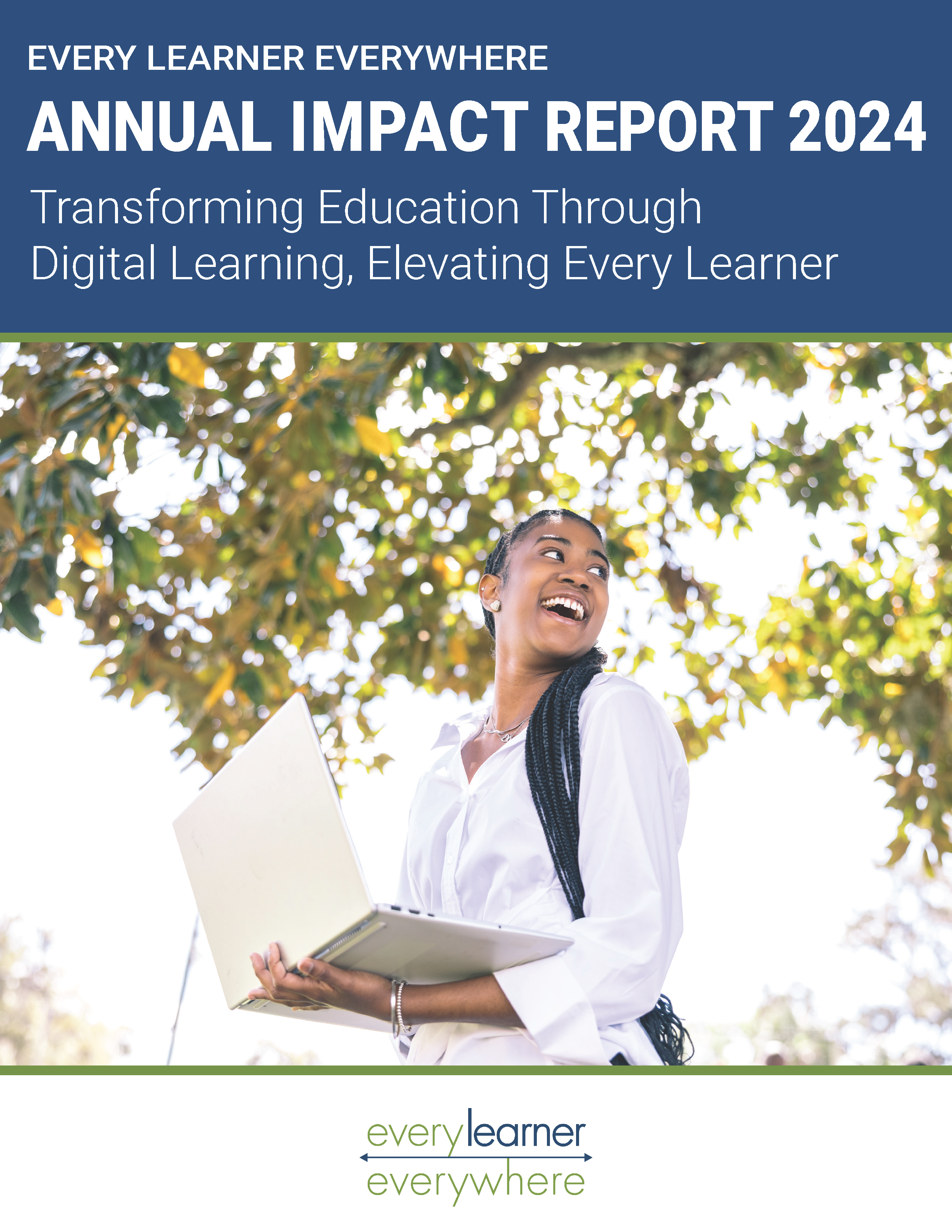
In this annual impact report, read about the network’s impact in areas of the services we provide institutions, our thought leadership in the field, and engagements with students. In addition, we recap our 2024 network convening, spotlight institutional services, feature our student interns, and give readers a preview of what’s next for the network in 2025.
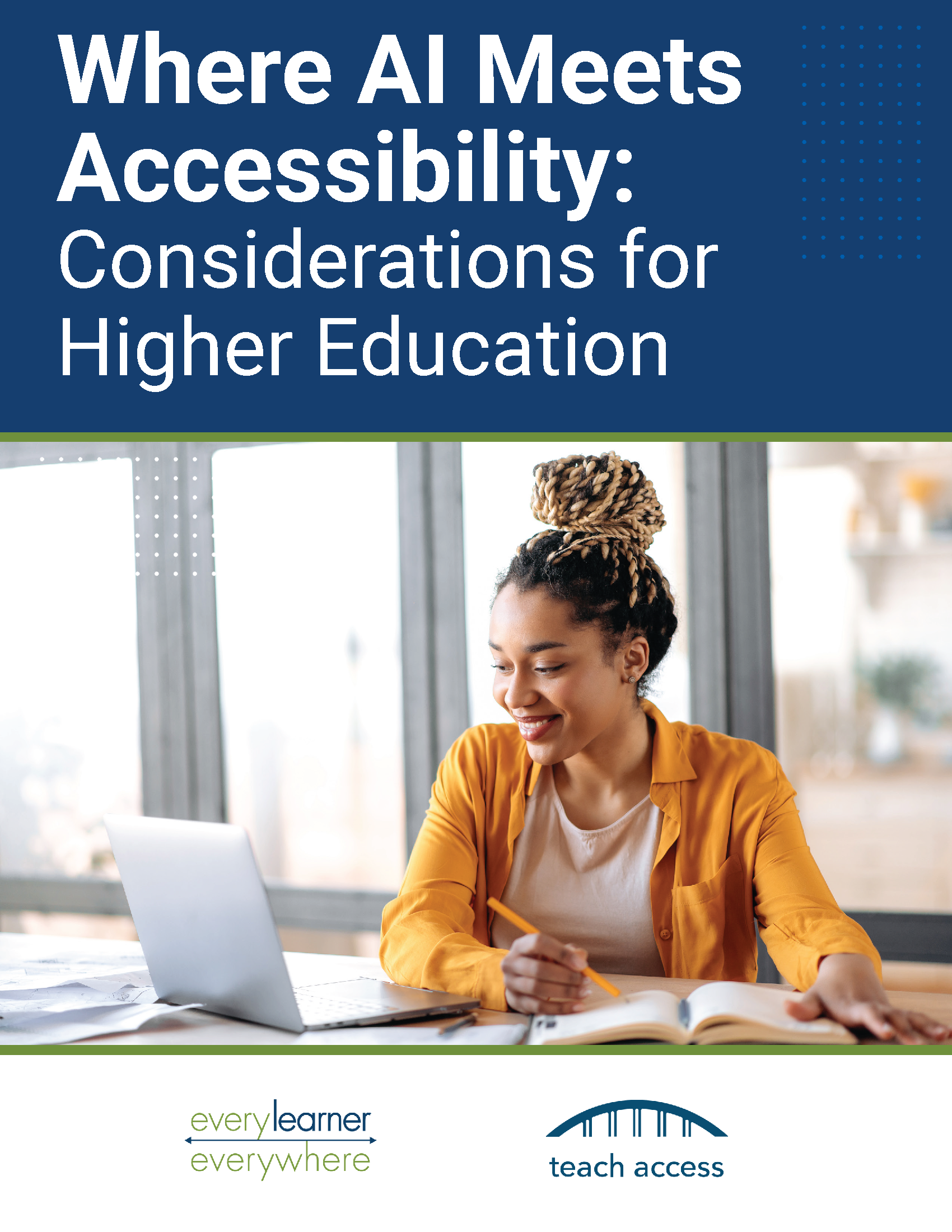
As AI becomes increasingly embedded into educational settings and practices, it offers both opportunities and challenges. This comprehensive resource will help navigate both aspects — demonstrating how AI can help overcome technology barriers, including various recommendations for integrating accessible AI across different areas of higher education.

This profile examines the culture at Hispanic Serving Institutions as well as opportunities and challenges around digital learning at HSIs. Our research uncovered that students at HSIs valued experiences that celebrate Hispanic and Latino culturas (cultures), nurture bonds among and service to the Hispanic comunidad (community), and demonstrated the institution’s intención (intention) to serve Latino students.

This profile examines the student experience at Historically Black Colleges and Universities. Historians, educational researchers, and journalists have noted differences between the Black student experiences at HBCUs and other types of higher education institutions.

This profile examines the culture at TCUs. Tribal leaders, historians, educational researchers, and journalists have noted the unique role of these institutions that center on preservation and revitalization of tribal bonds as well as preservation and revitalization of the knowledge and culture of the first nations.
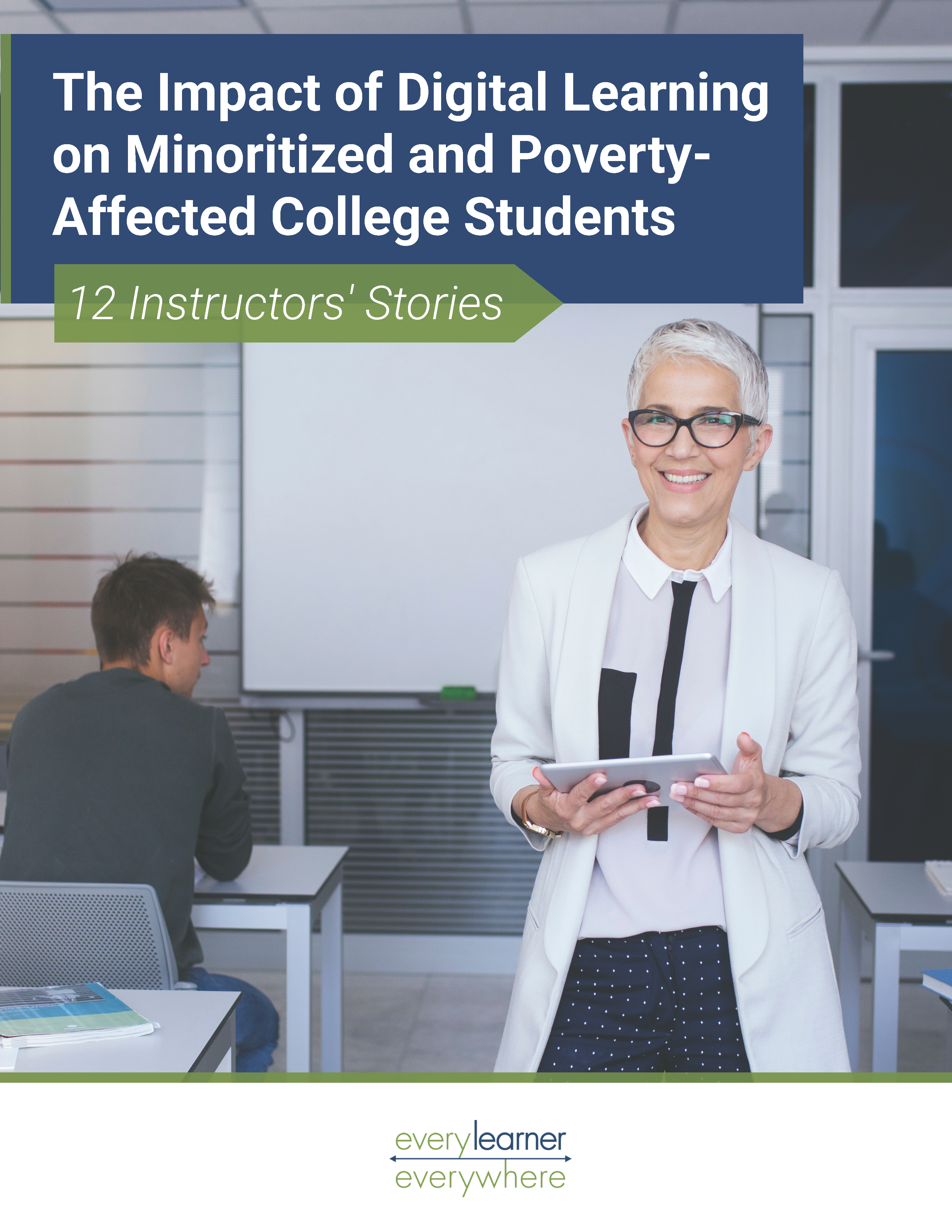
In this new resource, 12 instructors from a variety of two-year and four-year institutions share their experiences adopting digital learning tools to promote equity and improve learning outcomes for historically marginalized and under-resourced students. Their narratives highlight successes as well as bumps in the road as they implemented digital learning tools into their teaching.

In this report, we present survey results focused on use of culturally relevant instructional practices and culturally relevant course materials. Exploring the implications for practice and future research on culturally relevant content in postsecondary education and gateway courses.
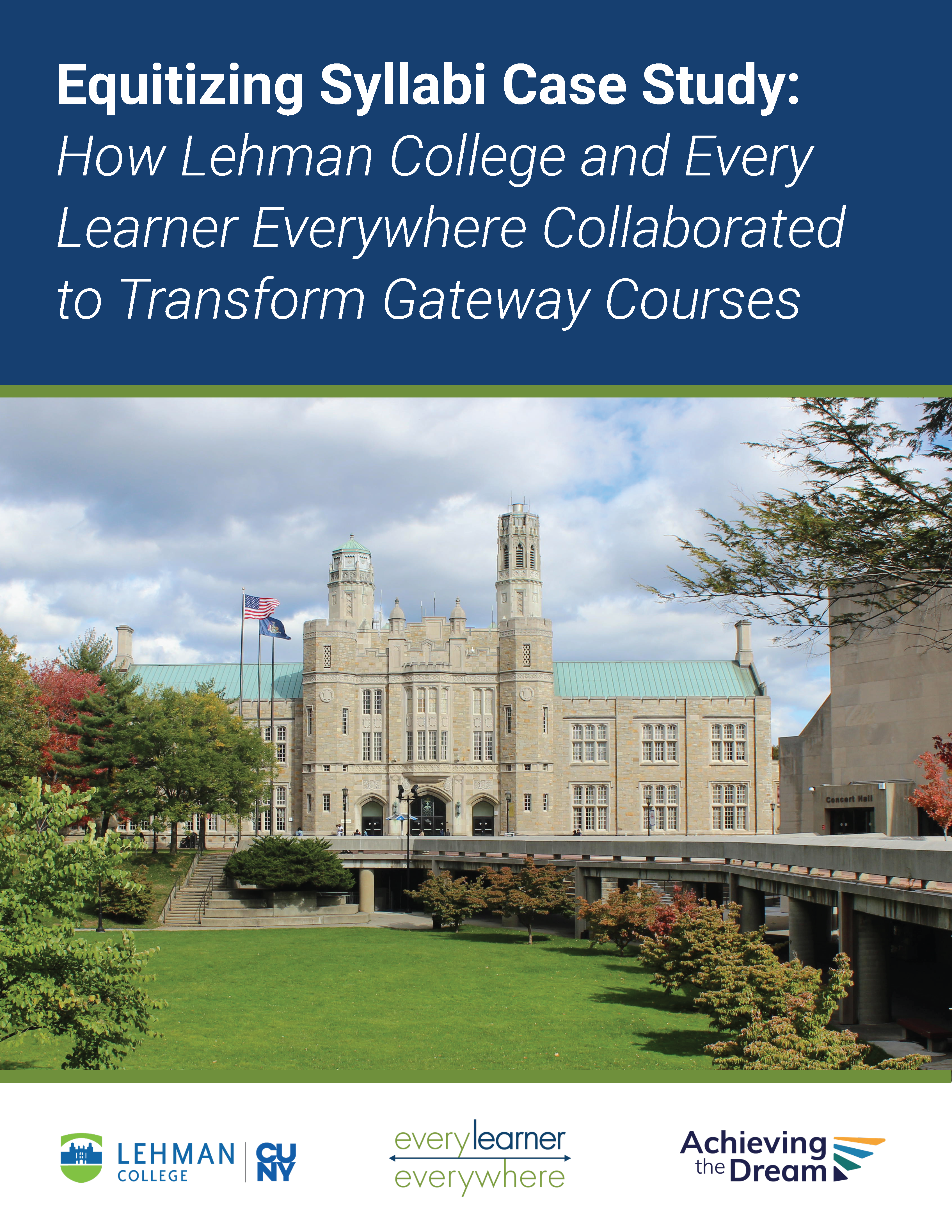
Faculty at New York City’s Lehman College participating in an intensive professional development project radically rewrote their syllabi and, indirectly, transformed their course design and teaching practices to put students at the center of learning.
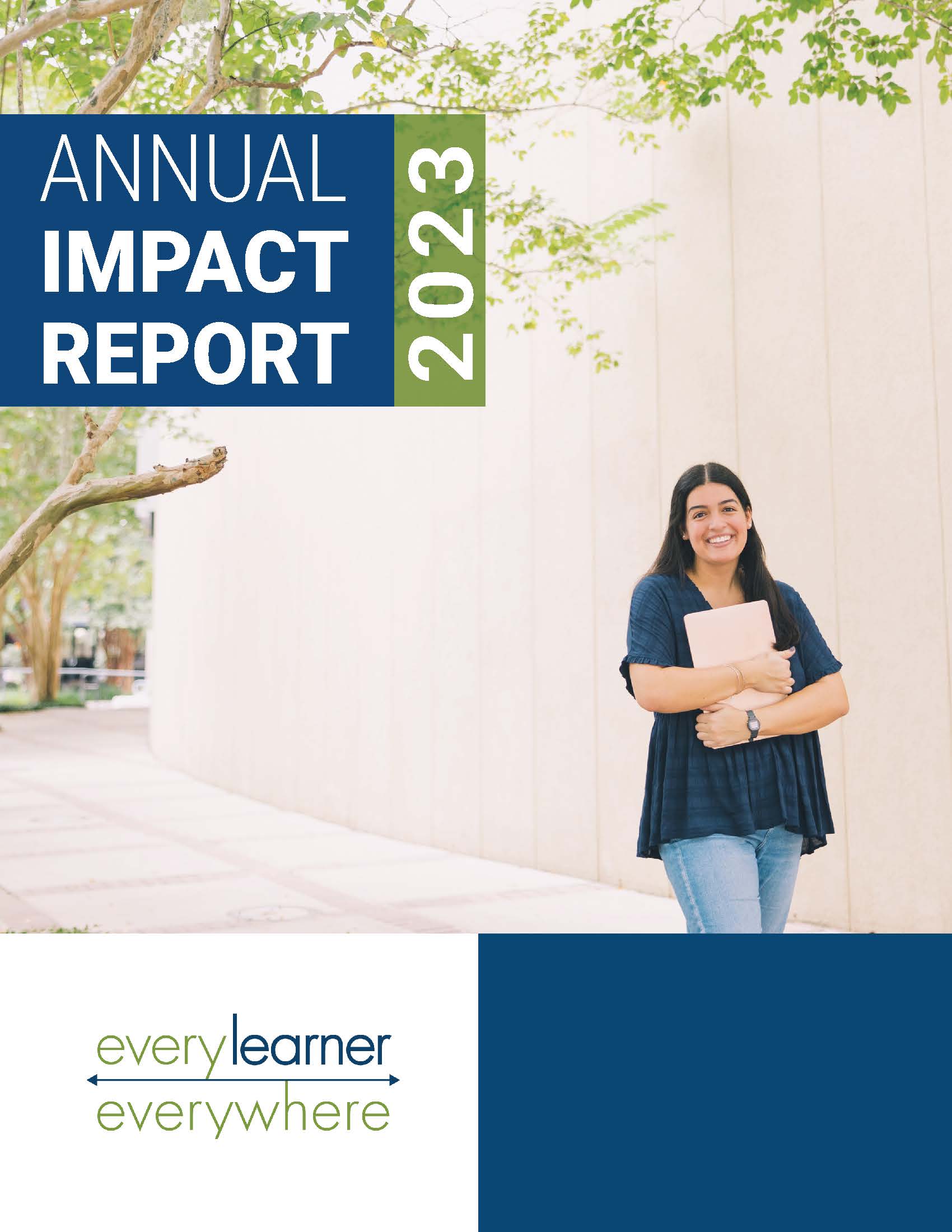
In this report, you can read about the network’s impact in the areas of services, thought leadership, and student engagement. In addition, we recap our 2023 network convening, introduce our new Equity First Organization partners, feature some of our student interns, and give readers a preview of what’s ahead for the network in 2024.
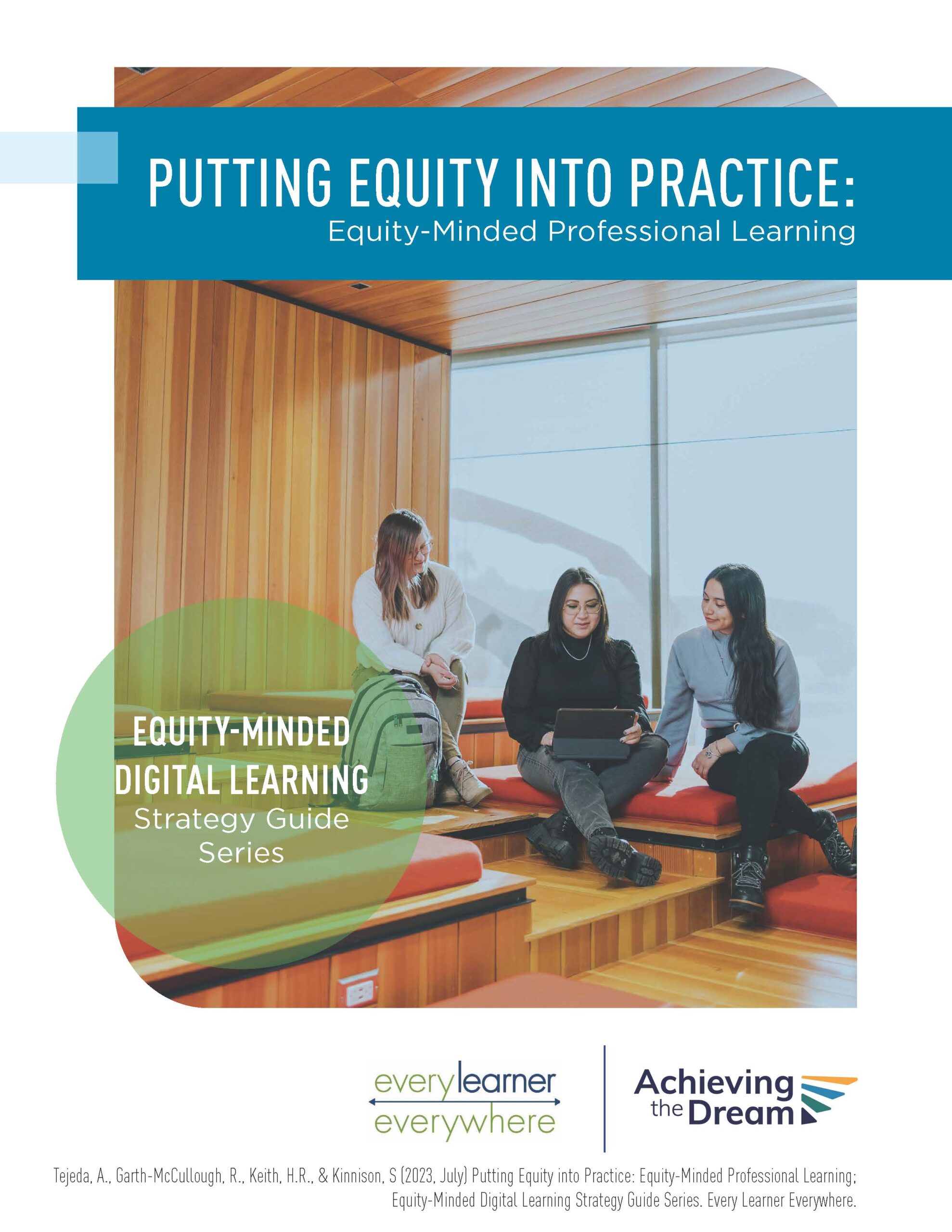
Through professional learning, faculty can develop their capacity to be change agents both inside and outside of the classroom. This guide clarifies what it means to create opportunities for professional learning that are explicitly equity-minded.
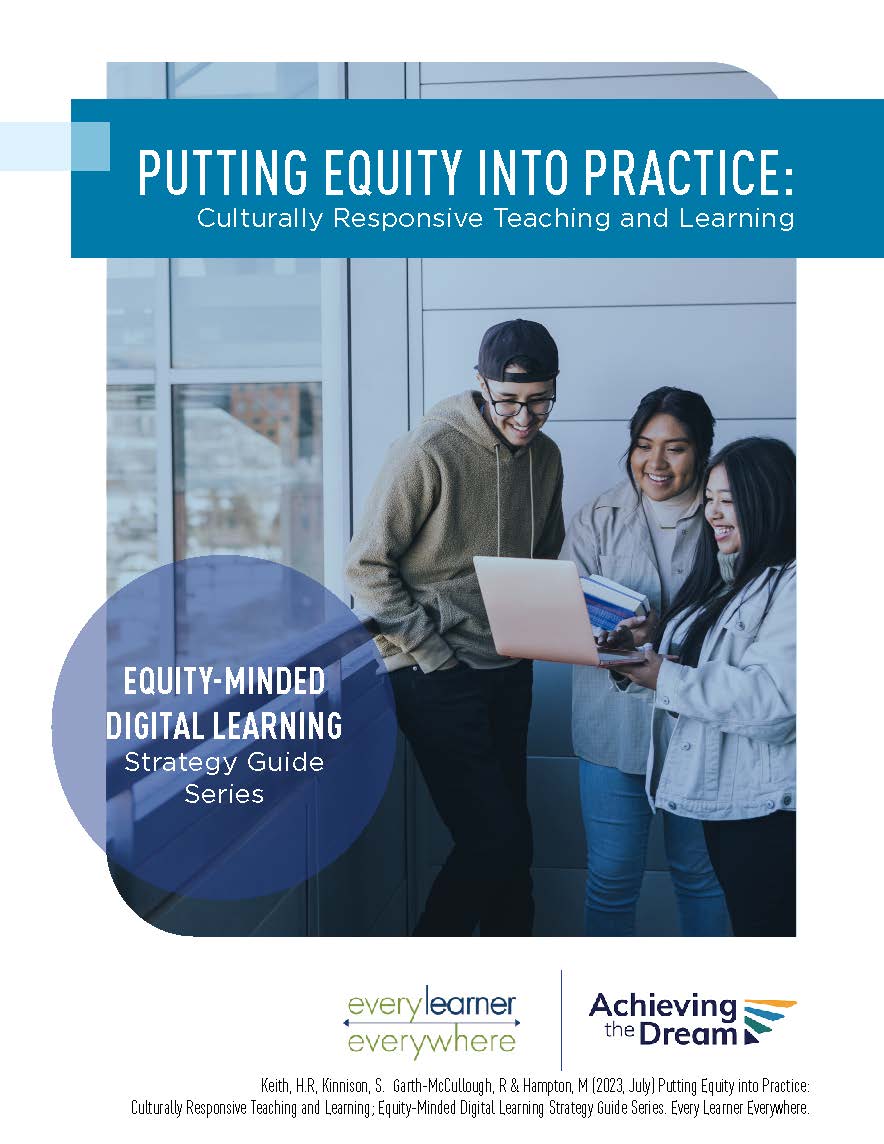
Culturally responsive pedagogy is a framework that is inclusive of culturally responsive and relevant teaching, and culturally affirming and sustaining instructional methodologies that validate and engage students’ cultural identities. These practical instructional strategies and practices guide the implementation of culturally responsive teaching and learning into educational spaces.
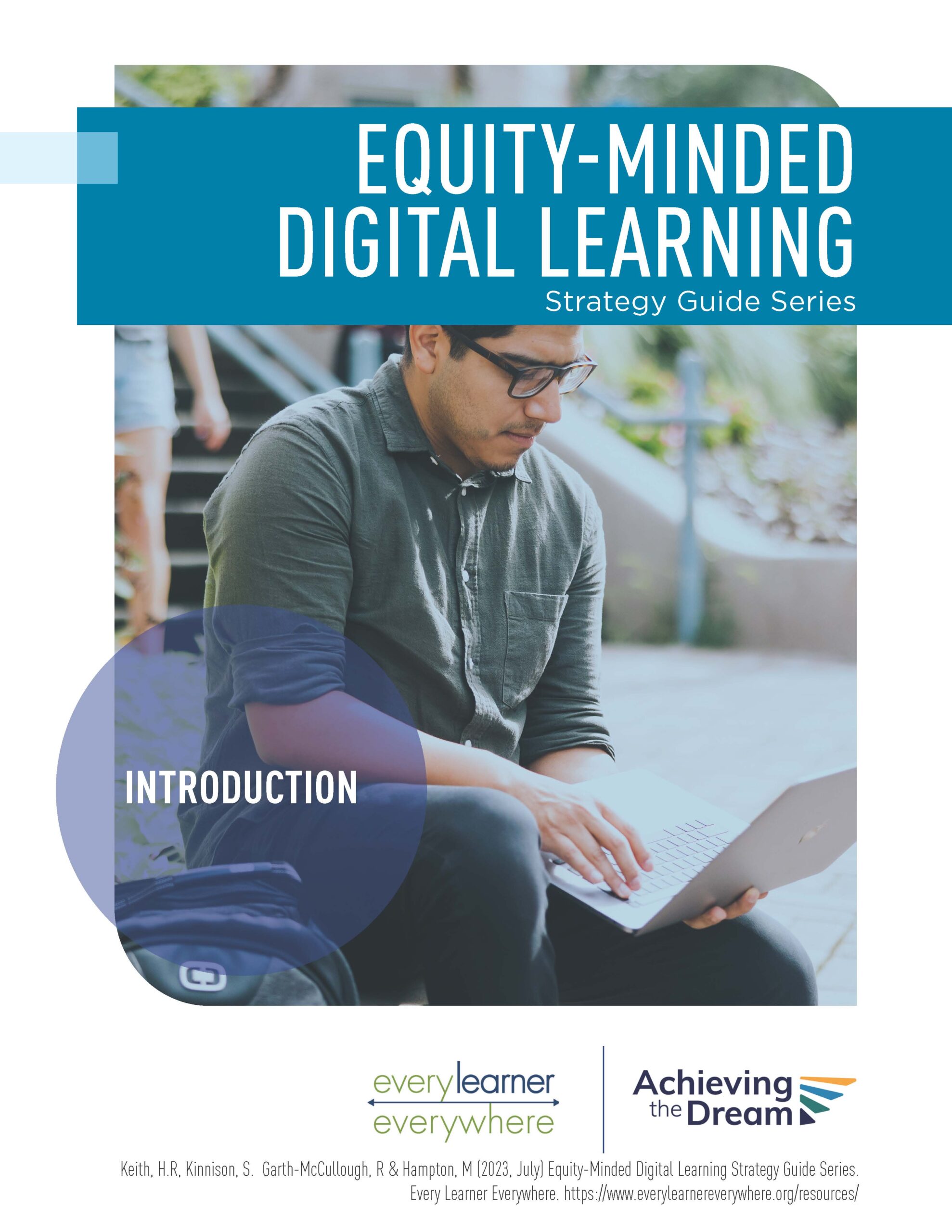
The Equity-Minded Digital Learning Strategy Guides help faculty intentionally and authentically affirm, uplift, and liberate students. As higher education continues to address eliminating inequitable outcomes in teaching and learning, these guides will help institutions embed equity, culturally responsive teaching, social justice education, and open pedagogy through evidence-based teaching practices.
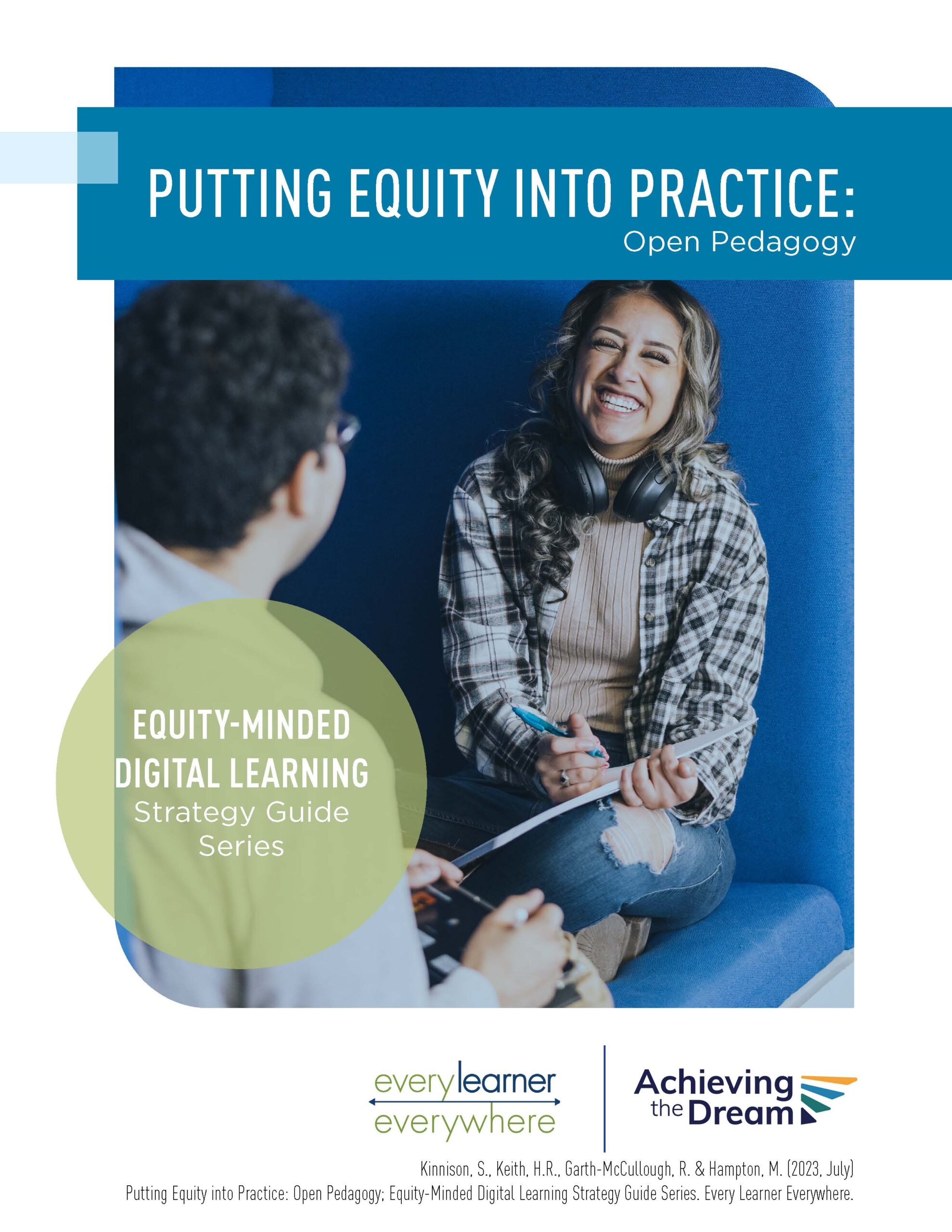
Being able to choose course design, content, assignments, assessments, and instructional approaches based on the context of the learners and the current events of the times allows students to relate all areas of the course to their lives and equitizes their experiences and outcomes. This guide is designed to support faculty with operationalizing open pedagogy through a culturally responsive lens.
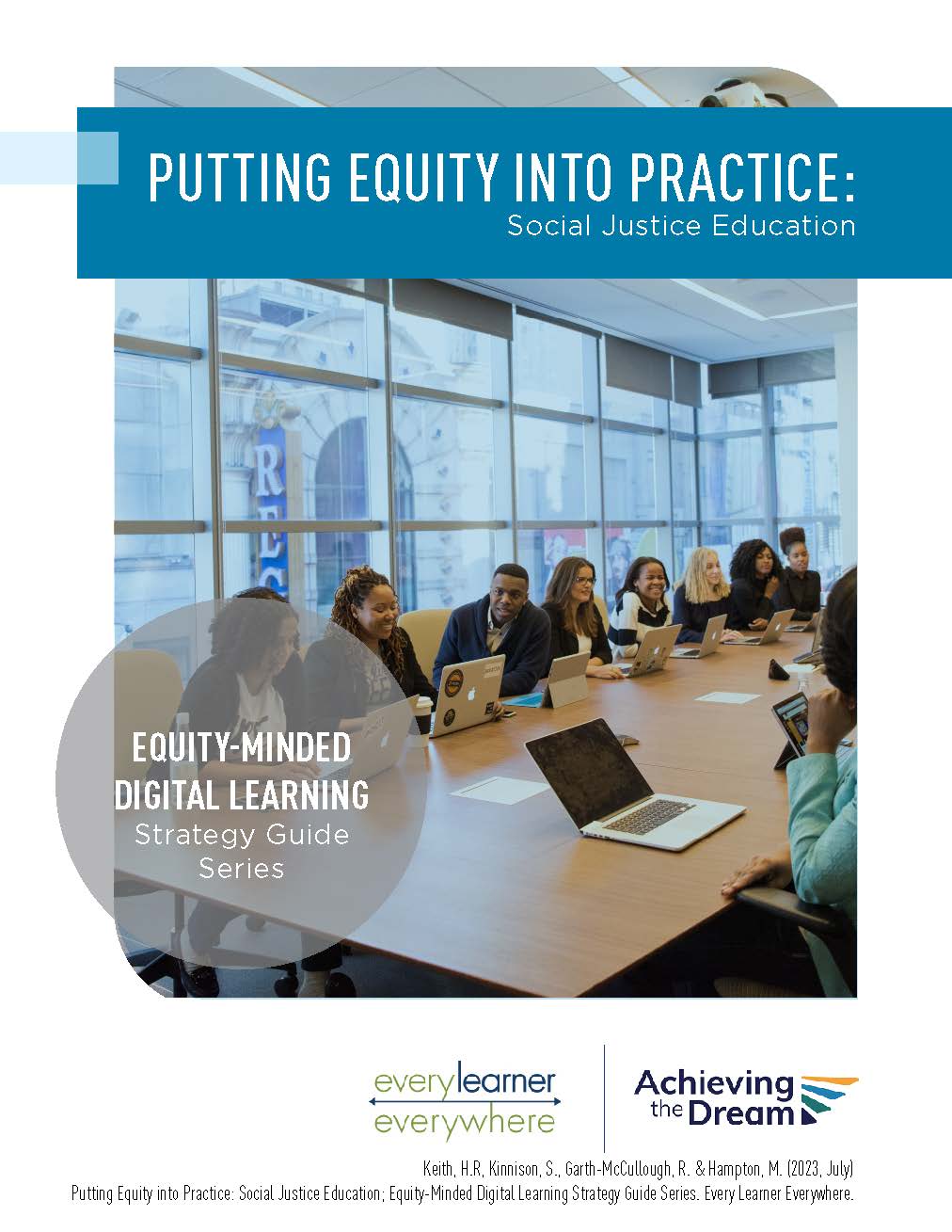
Advancing social justice in education requires establishing educational spaces that foster students’ critical consciousness and ability to analyze systems, policies, and practices that lead to inequitable and unjust experiences and outcomes. A social justice approach to education involves two strategies that will be featured in this guide: anti-racist teaching and abolitionist teaching.
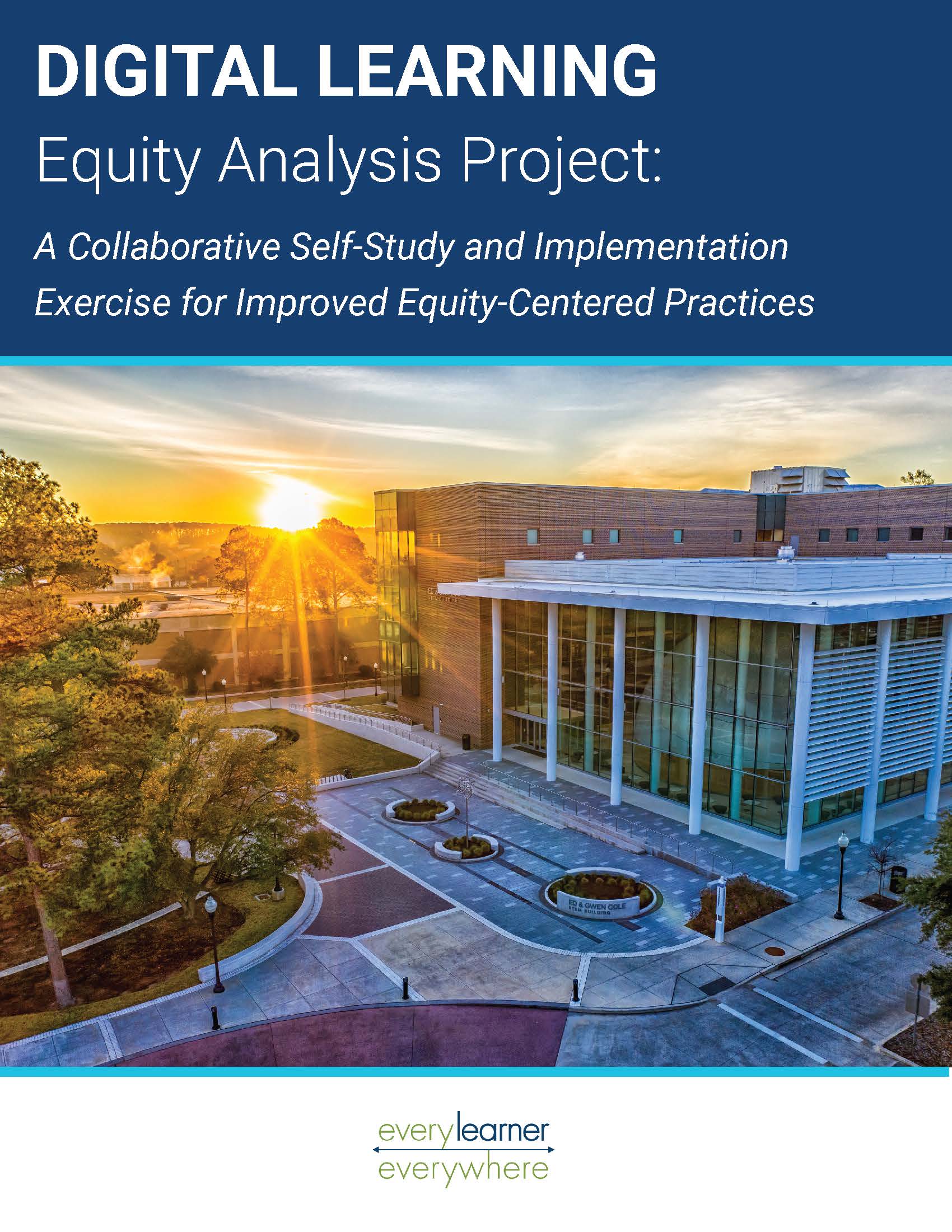
This paper describes the outcomes of a Digital Learning Equity Analysis project undertaken by two award-winning educators, Sarah Straub and Rachel Jumper, who sought to implement suggestions from the microcredential training hosted by Every Learner Everywhere. This training focused on promoting equity in digital learning and provided a structured protocol for conducting reviews of online courses.
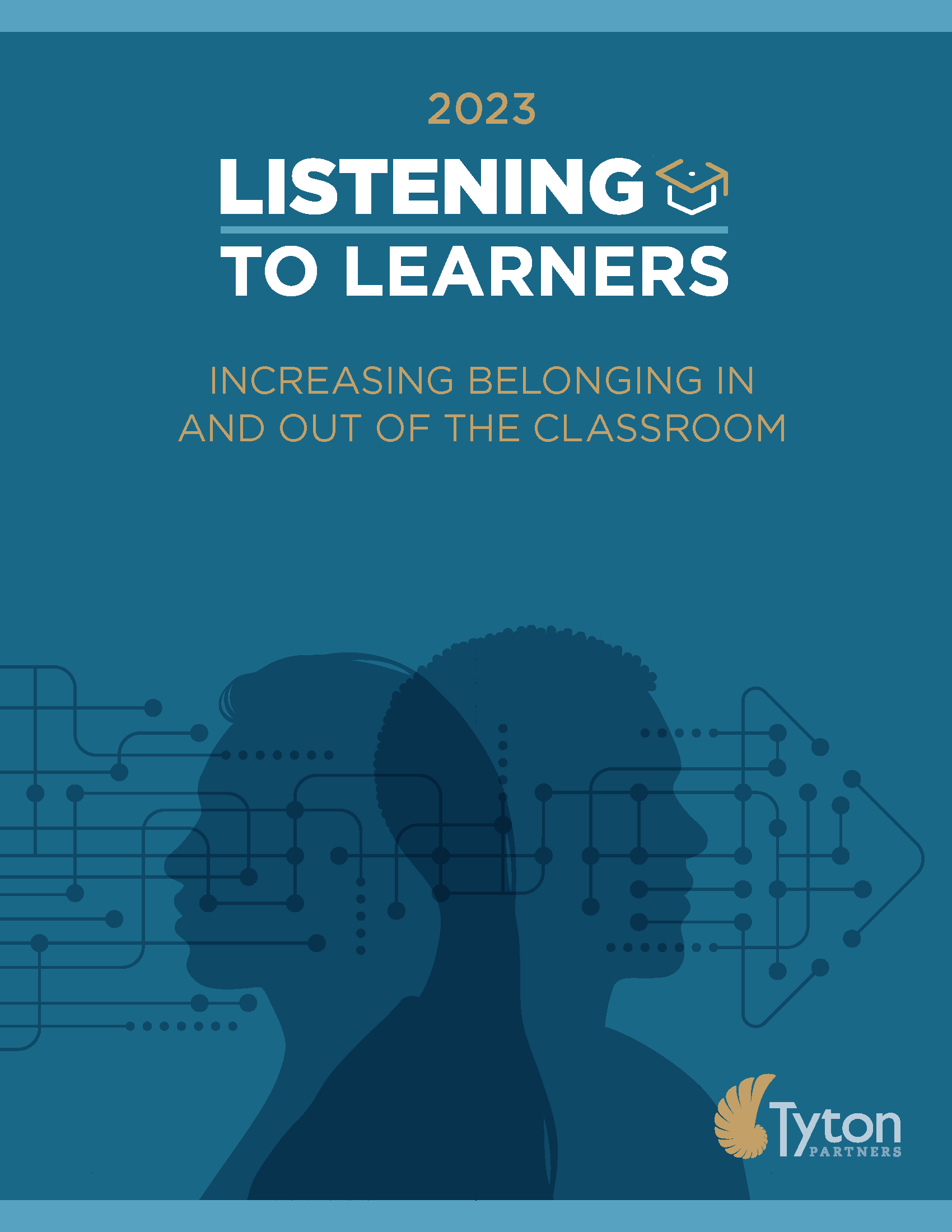
Tyton partners’ Listening to Learners 2023 reveals that while 70% of students value representative diversity among advisors, only 30% of institutions report scaled implementation of this hr practice. Cutting-edge research identifies strategies to enhance student outcomes and create a sense of belonging in higher education.
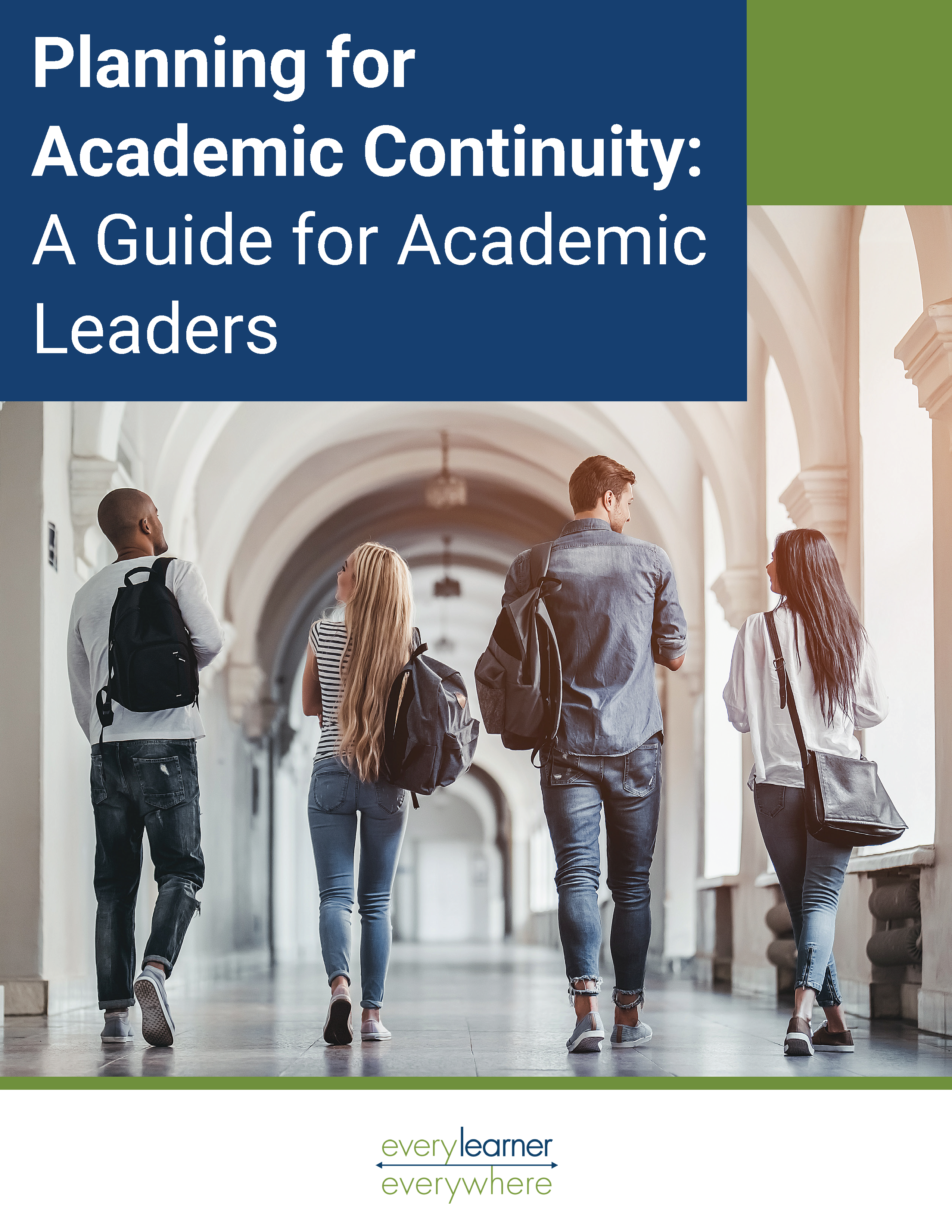
This guide presents results from an analysis of 100 academic continuity plans at U.S. colleges and universities. The results form the basis for recommended academic continuity plan best practices, tools, and templates academic leaders can use to maintain a plan that can be used in both short-term and long-term circumstances.
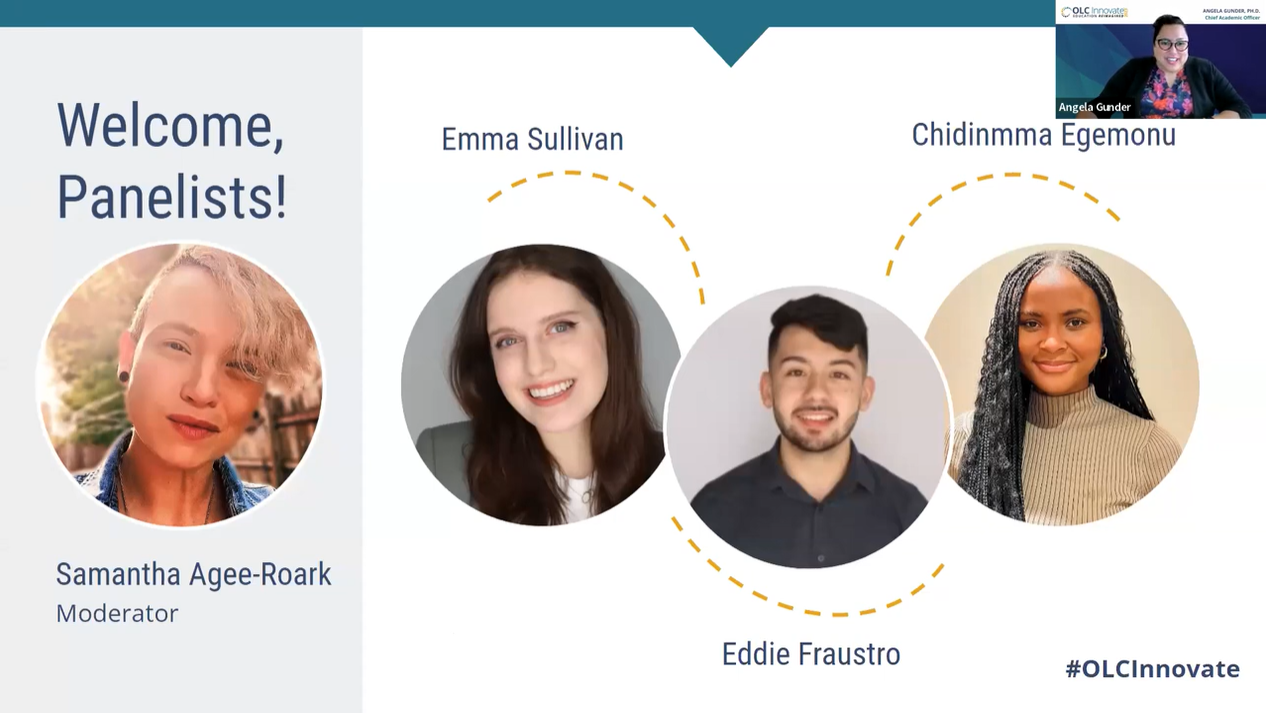
A student panel discusses their experiences with digital learning at the Online Learning Consortium Innovate Virtual Conference April 2023
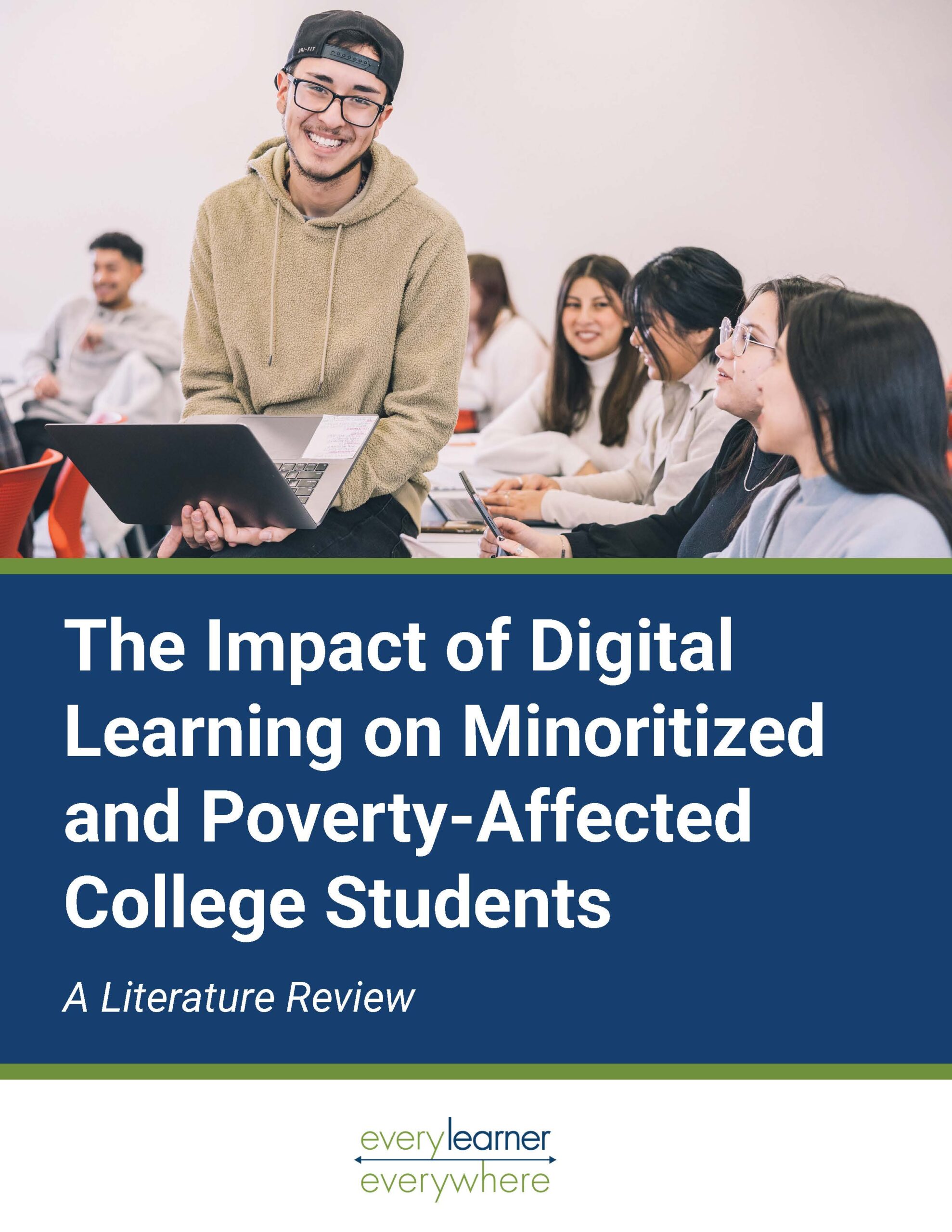
The focus of this resource paper is to assess the effectiveness of digital learning in decreasing equity gaps as well as the impact digital learning has on specific student populations: those who identify as Black, Latino, and Indigenous; students from low-income backgrounds; and first-generation students.
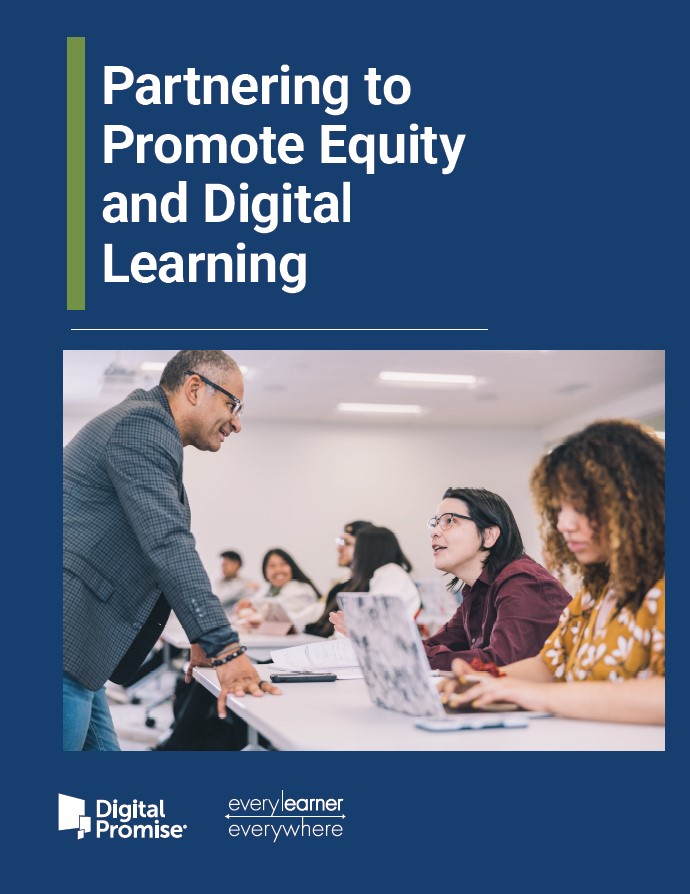
The report describes the key features of research-practice partnerships between colleges and Every Learner Everywhere partner organizations.
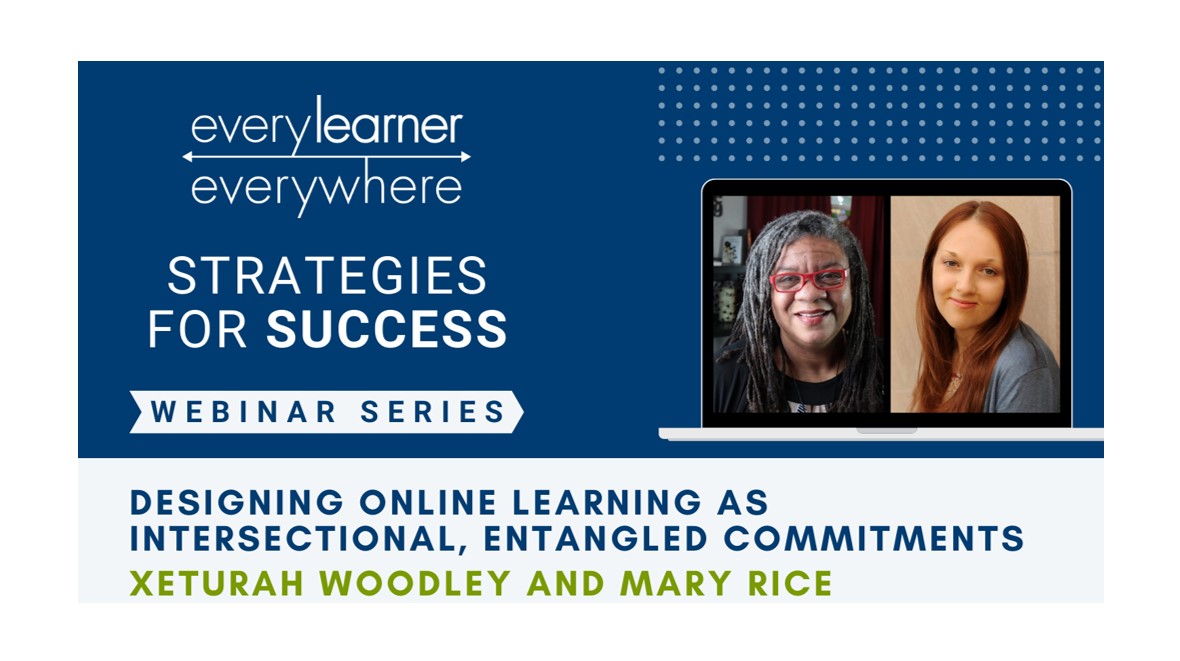
Dr. Mary Rice and Dr. Xeturah Woodley engage in a conversation about the renewal that emerges alongside intersectional online course design.
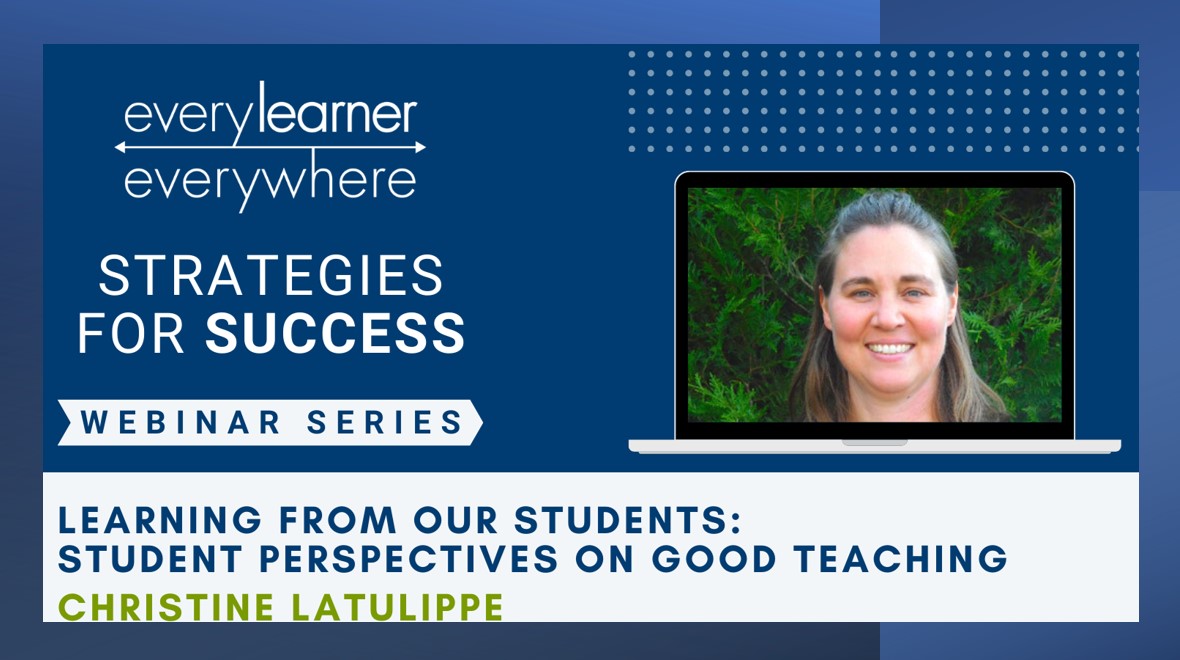
Dr. Christine Latulippe shares her findings from student stories about what good teaching looks like and feels like to them.
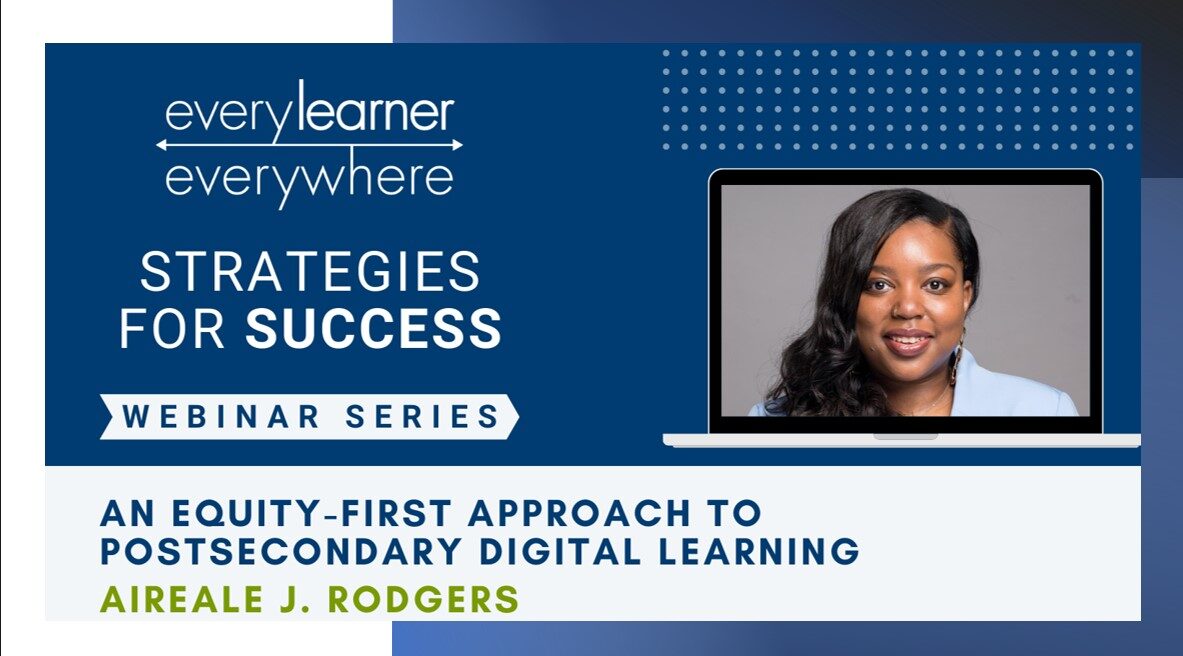
Dr. Aireale Rodgers introduces the Equity First Framework for Digital Learning: a tool to support equitable and just student learning.
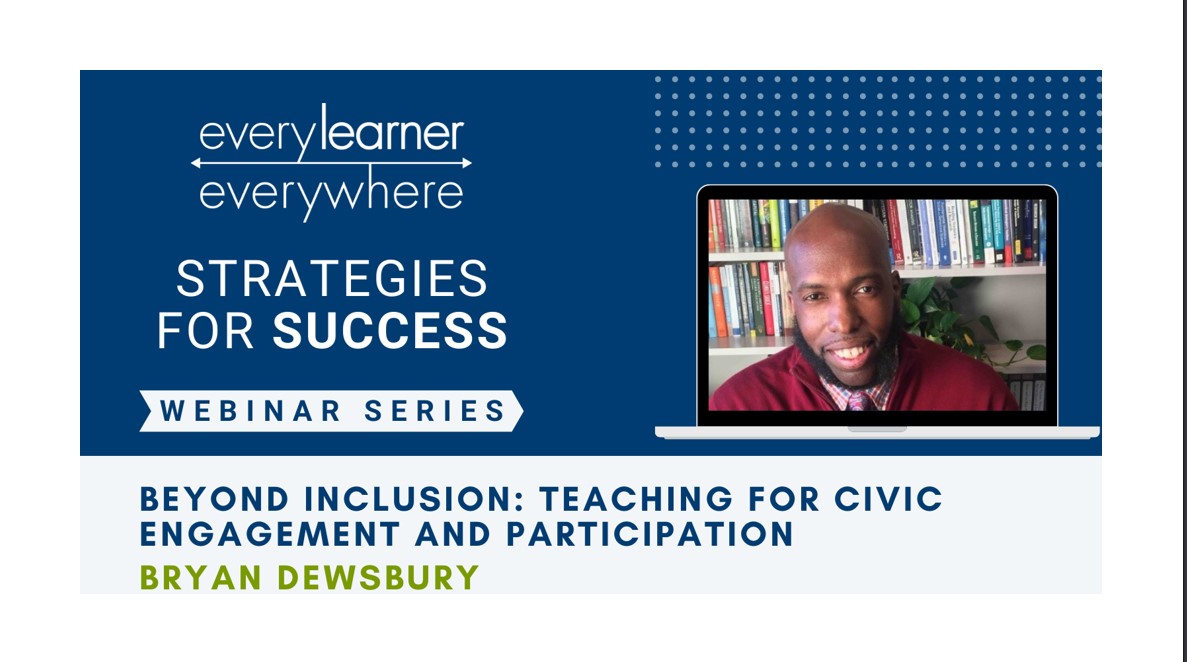
Dr. Bryan Dewsbury discusses reconnecting classroom practice with the values, behaviors and mindsets needed for a socially just society.
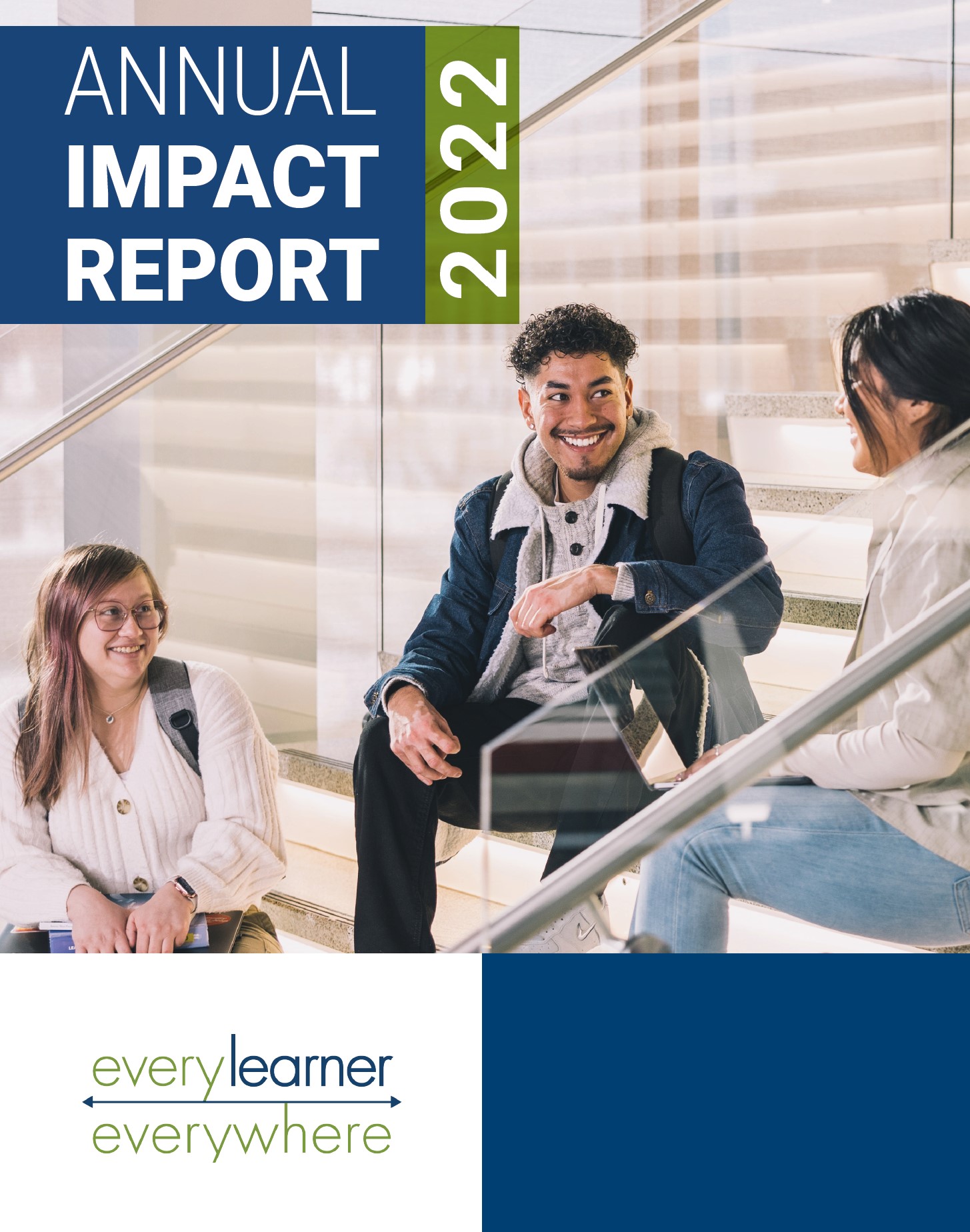
Every Learner Everywhere’s second annual impact report highlighting accomplishments in 2022 and setting goals for 2023.
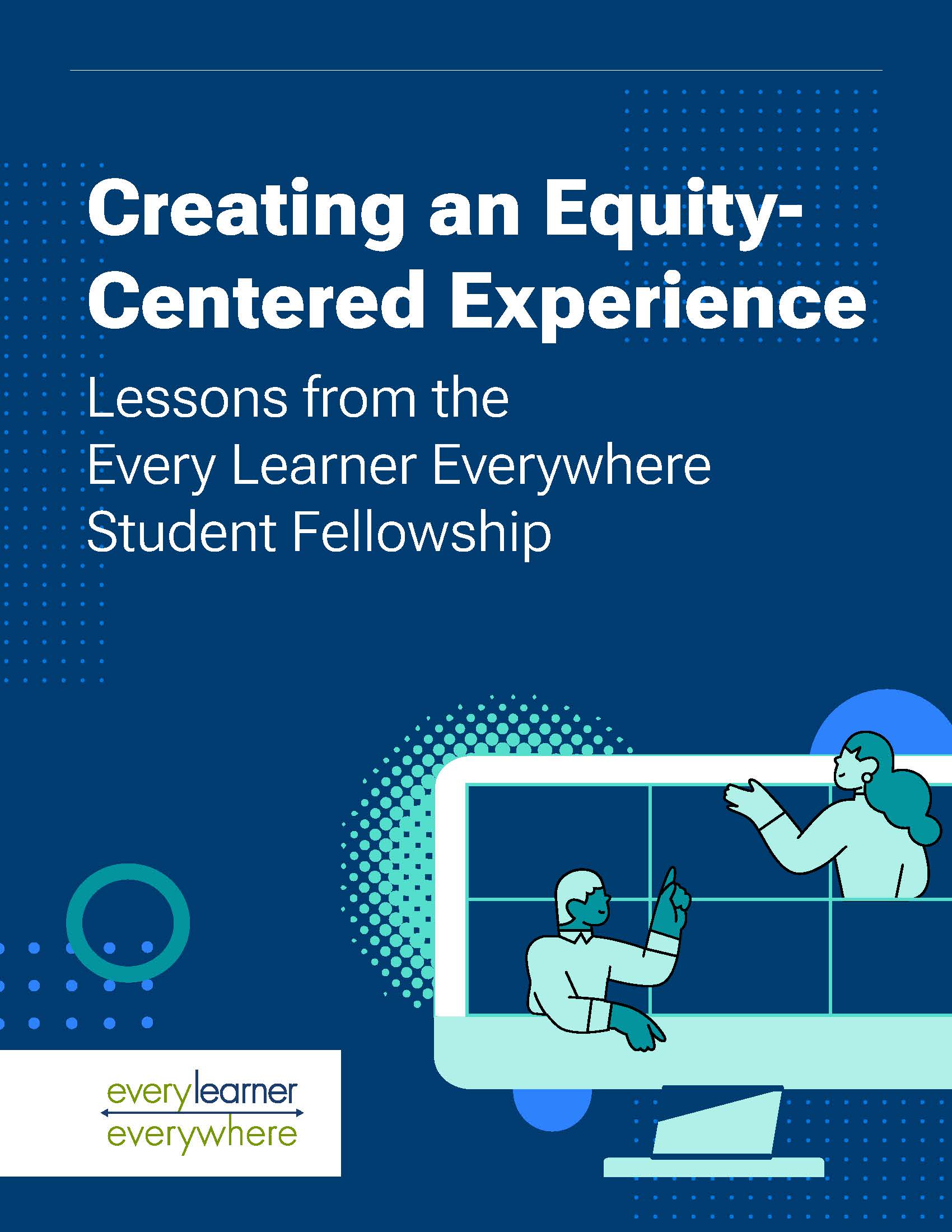
This resource provides guidance to organizations and institutions seeking to establish equity-centered fellowships for community members and students.
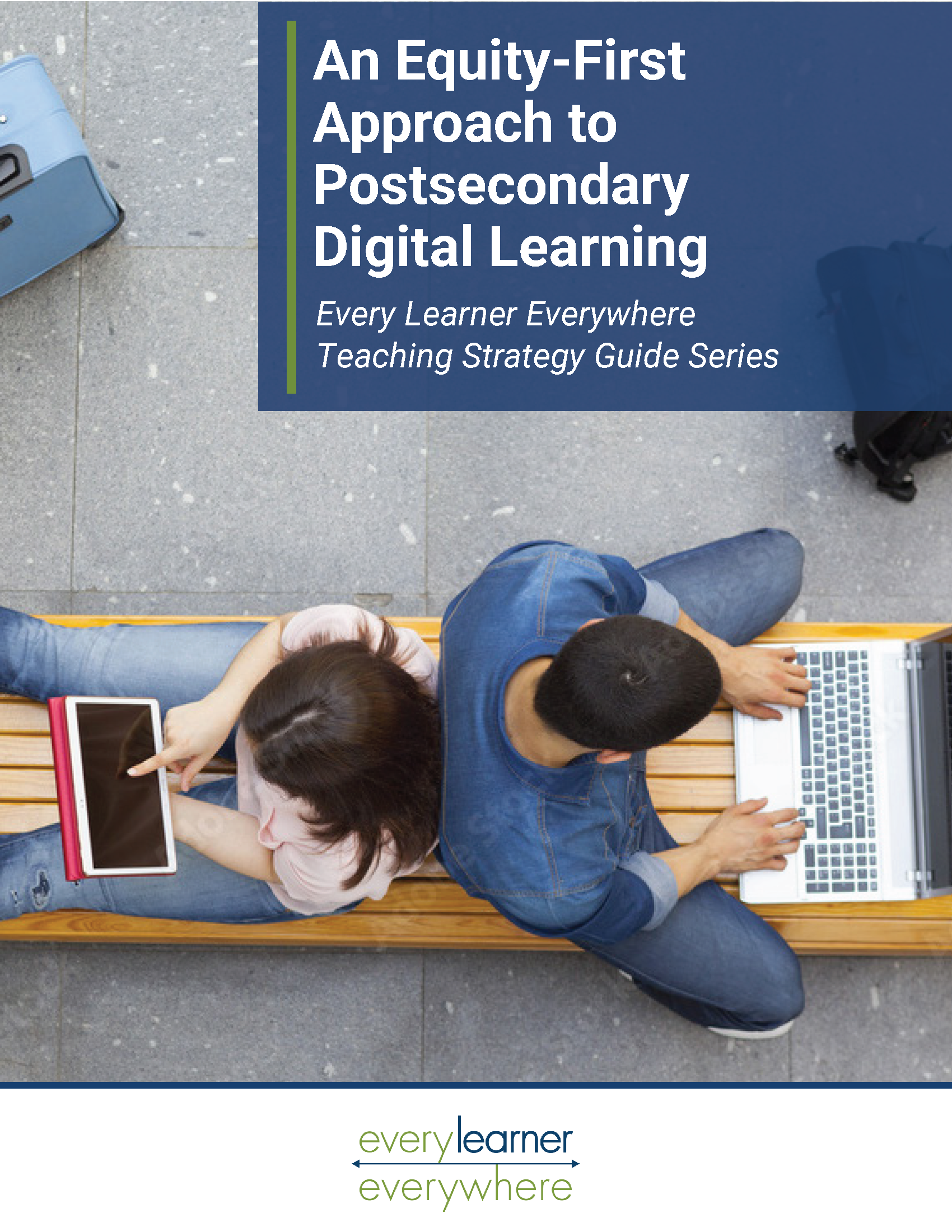
This guide outlines necessary components to adopting and utilizing digital learning tools equitably for postsecondary digital learning.
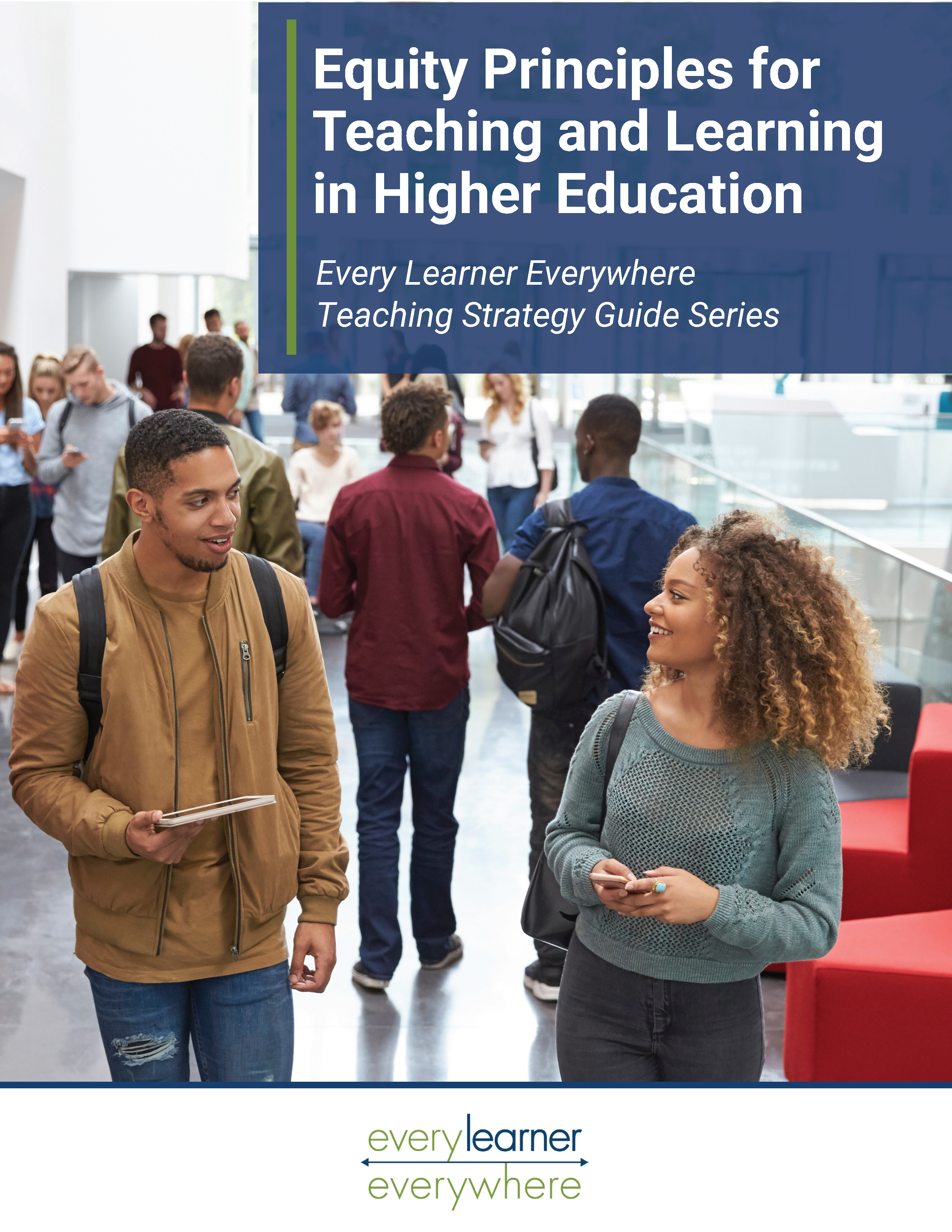
This Every Learner Everywhere strategy guide details our eight equity principles for teaching and learning in higher education.
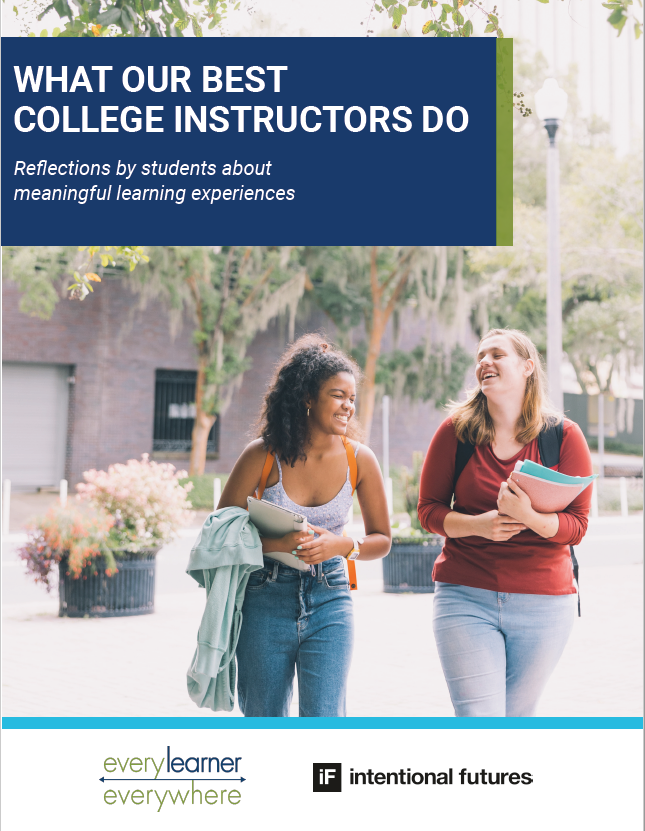
A resource about meaningful learning experiences written by college students for faculty.
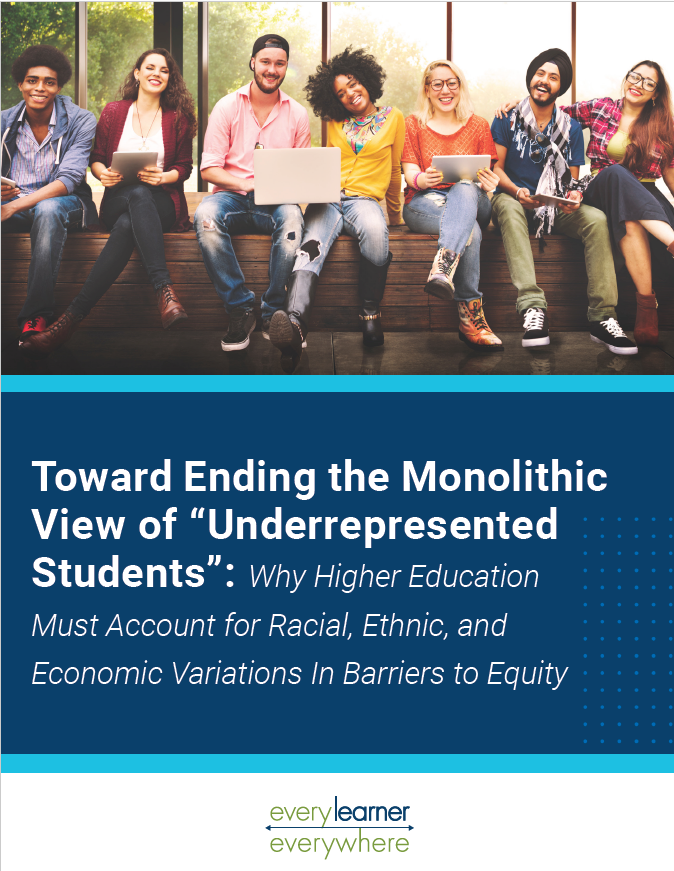
This report synthesizes commentary, research, and original interviews about how higher education has grappled with disaggregating and using student data to confront and close equity gaps for particular student populations.
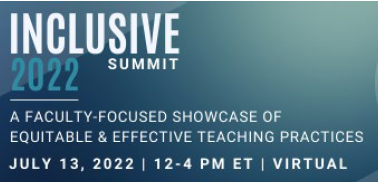
discuss strategies for getting to know our students and using this knowledge to inform our teaching choices, assessment types, and communication throughout the course.

Instructional design experts providestrategies that faculty can use in their classrooms today to connect with and engage their students.

In this webinar, join your peers in deep discussions about the pedagogical challenges facing faculty who are teaching within the sciences.

In this webinar, join your peers in deep discussions about the pedagogical challenges facing faculty who are teaching writing.

A diverse panel consisting of both faculty members and students will discuss their unique perspectives on several pedagogical approaches.
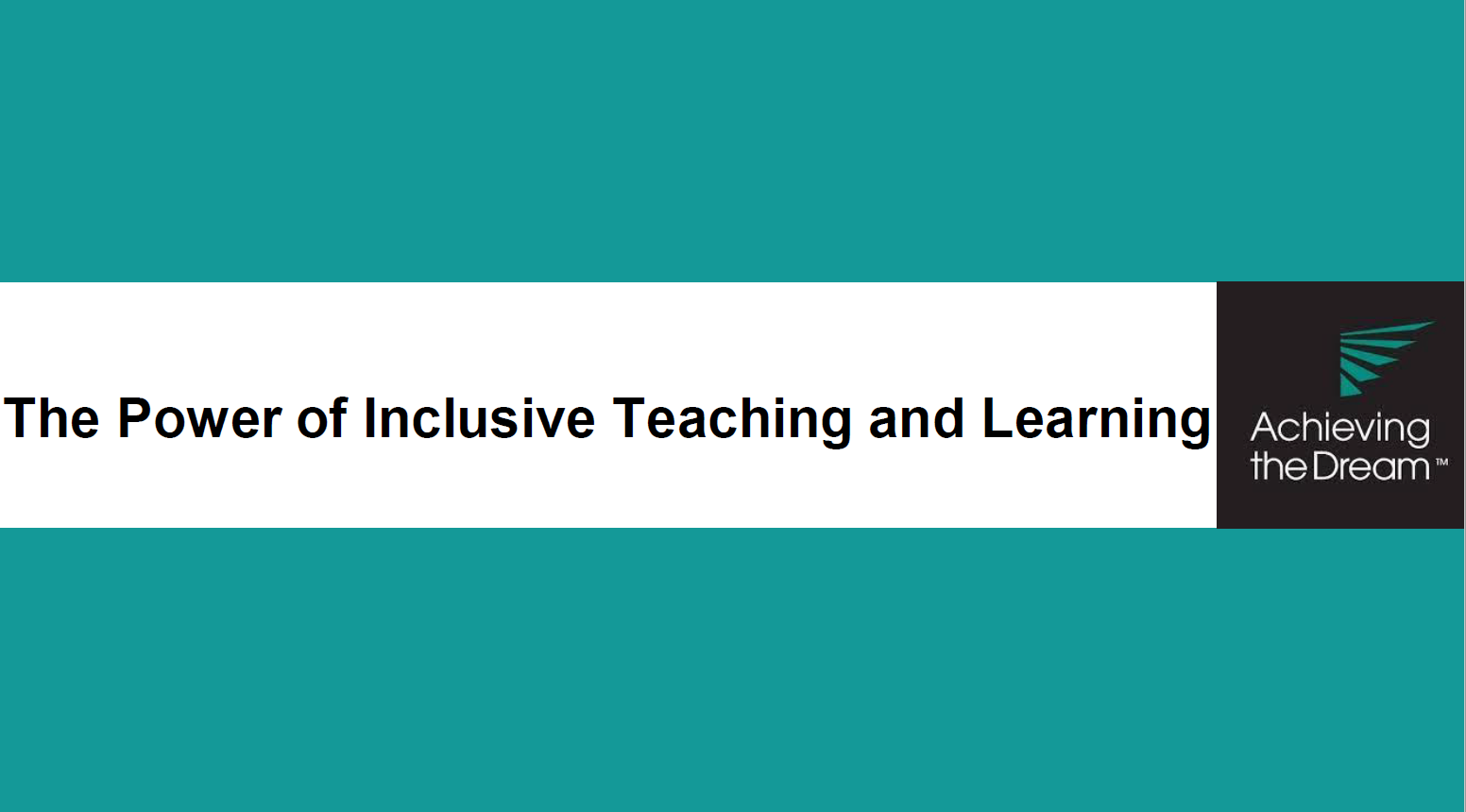
Teaching specialists from Achieving the Dream share strategies for Culturally responsive teaching, Anti-racist teaching, Abolitionist teaching, and Open Pedagogy.
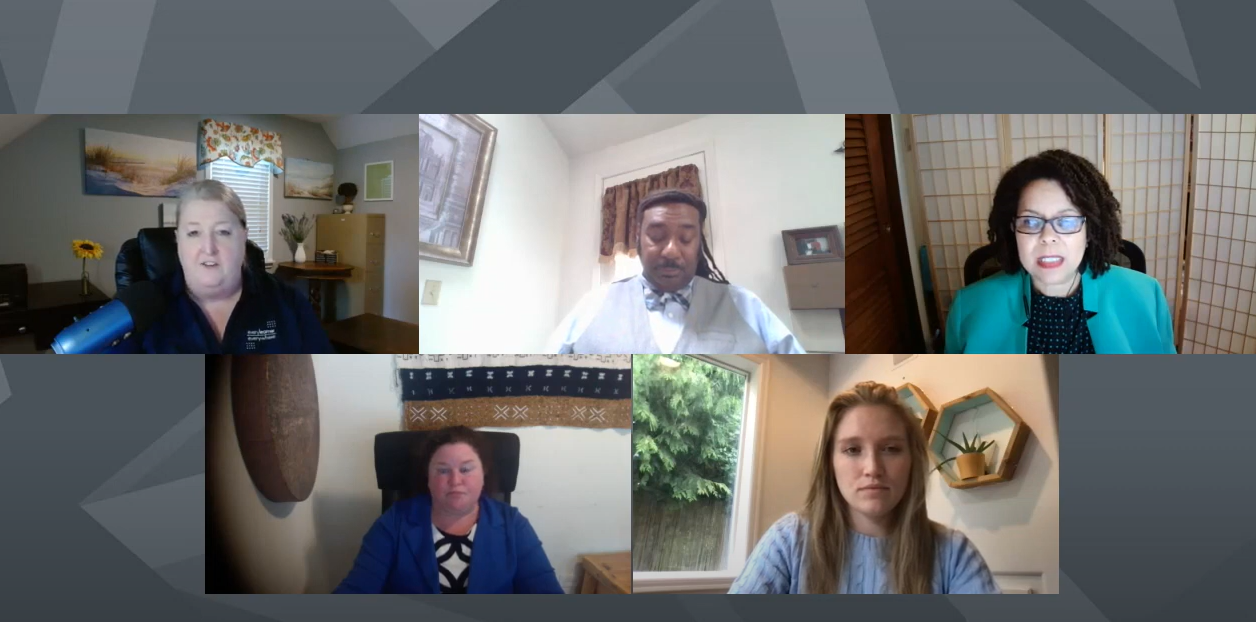
Specialists and practitioners of inclusive teaching answer your questions about strategies and approaches to creating an inclusive learning environment for all students.
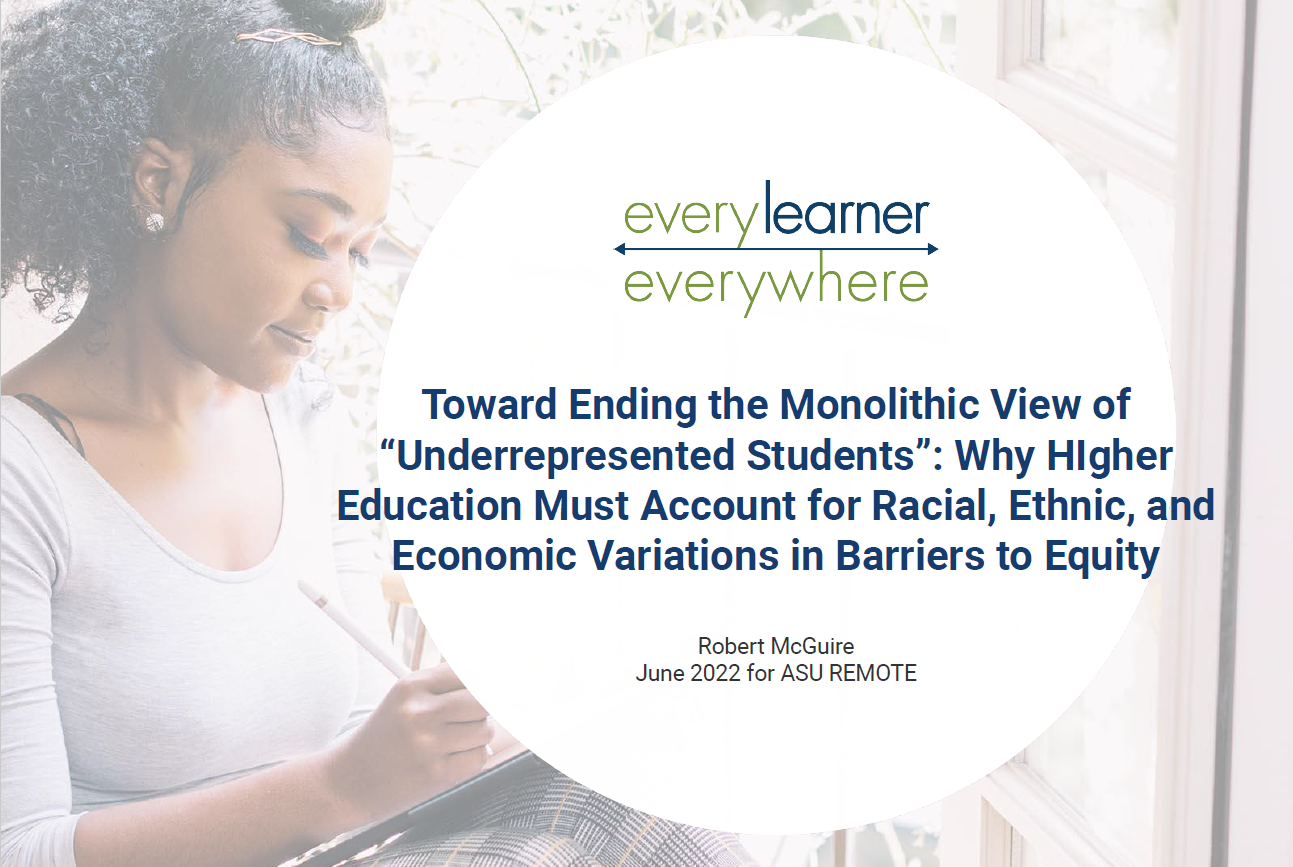
The session summarizes how disaggregating learner data can enable equity-centered education for minoritized, poverty-affected, and first-generation students.
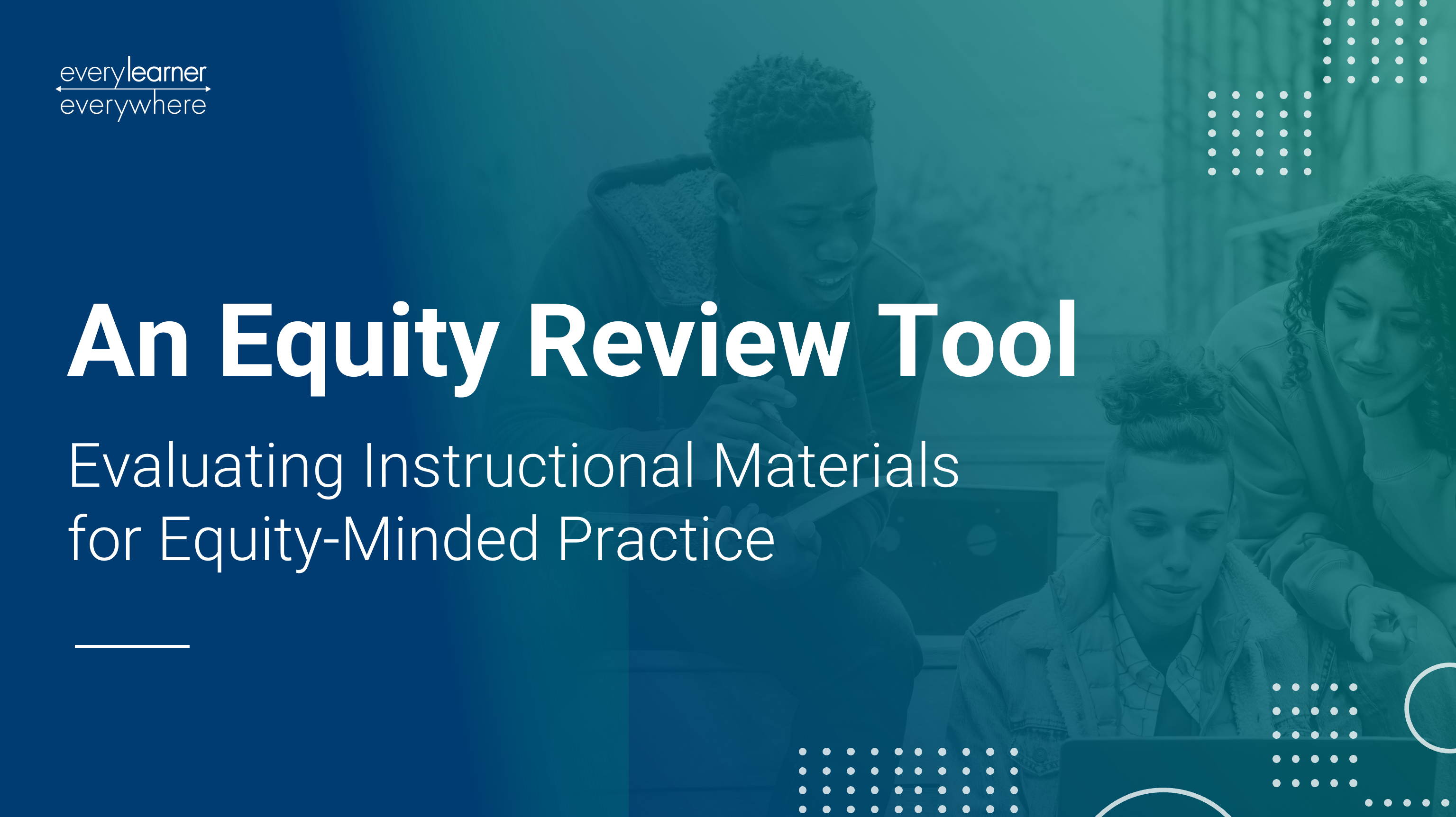
Developers of the Equity Evaluation Tool walk through the evaluation process to show how you can use it to make your course content equity-centered.
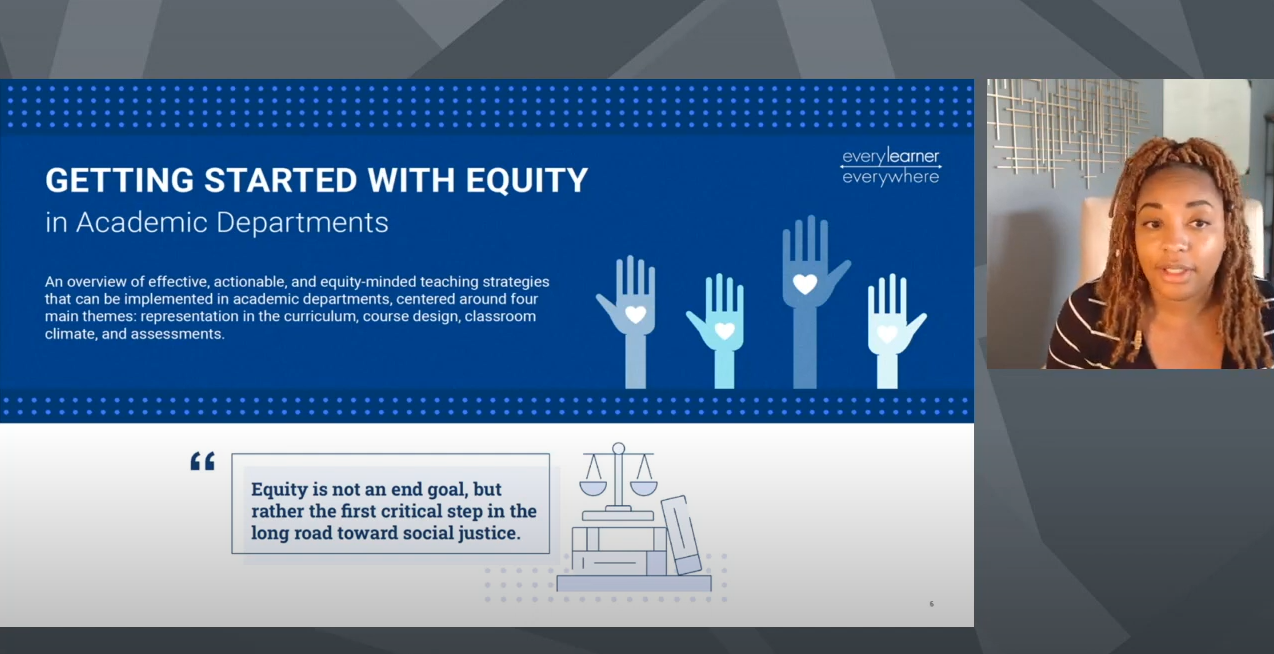
Jessica Rowland Williams talks about various tools and strategies for transforming a department to be more equitable.
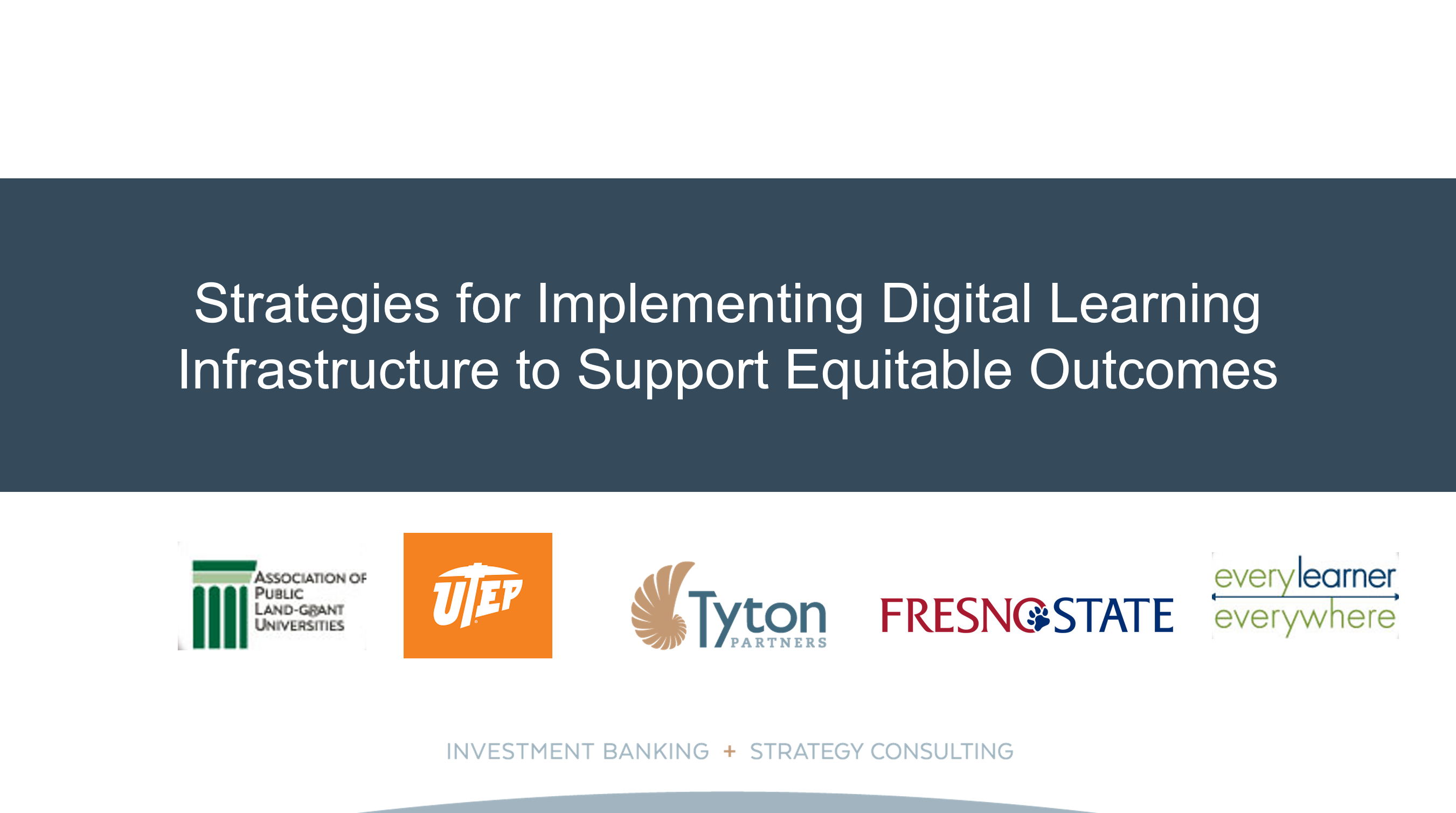
Representatives from institutions that implemented digital learning discuss how these technologies improved student success in lower level courses.
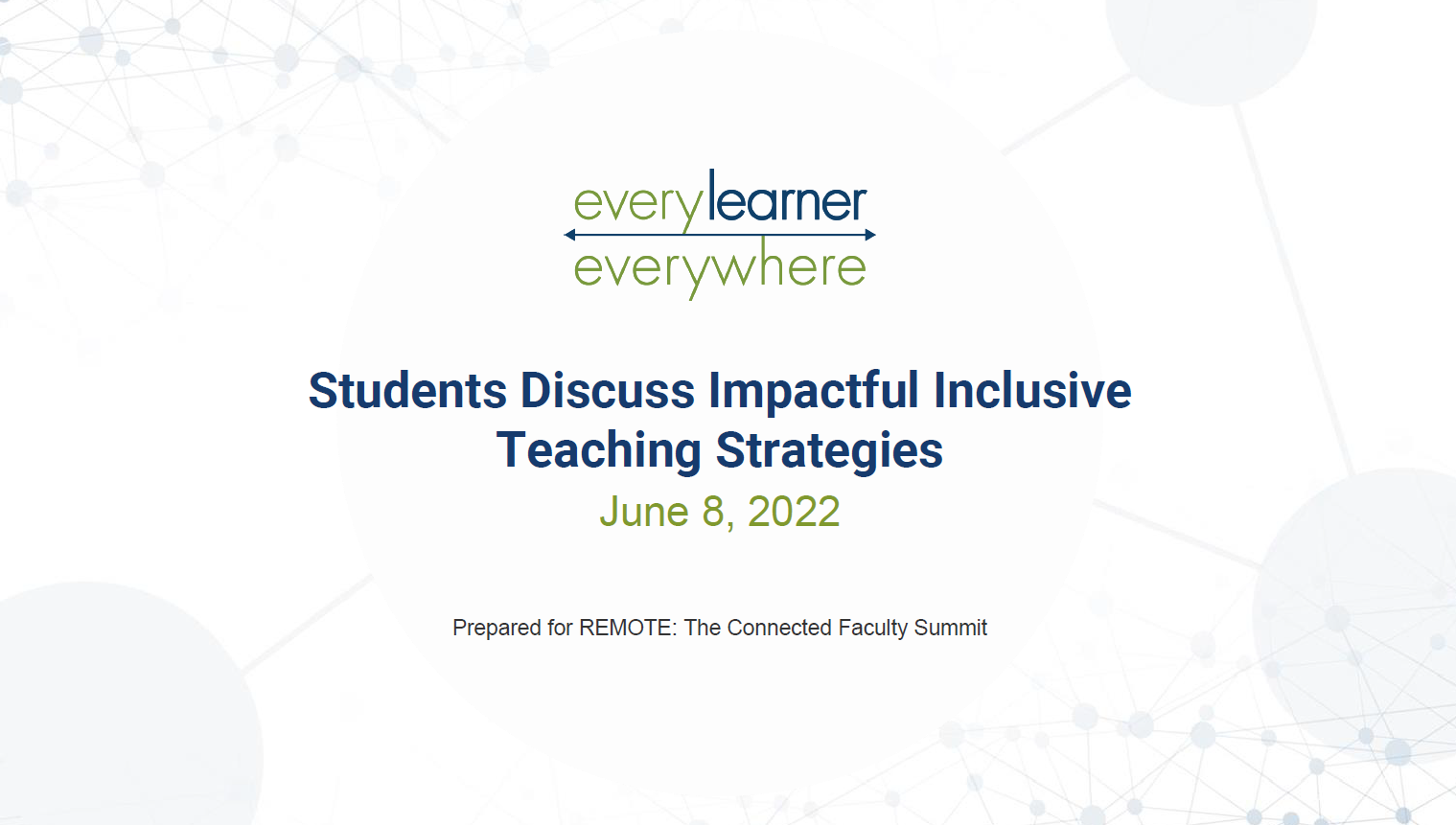
Undergraduate students to discuss what inclusive teaching strategies have been most impactful in their college experience.
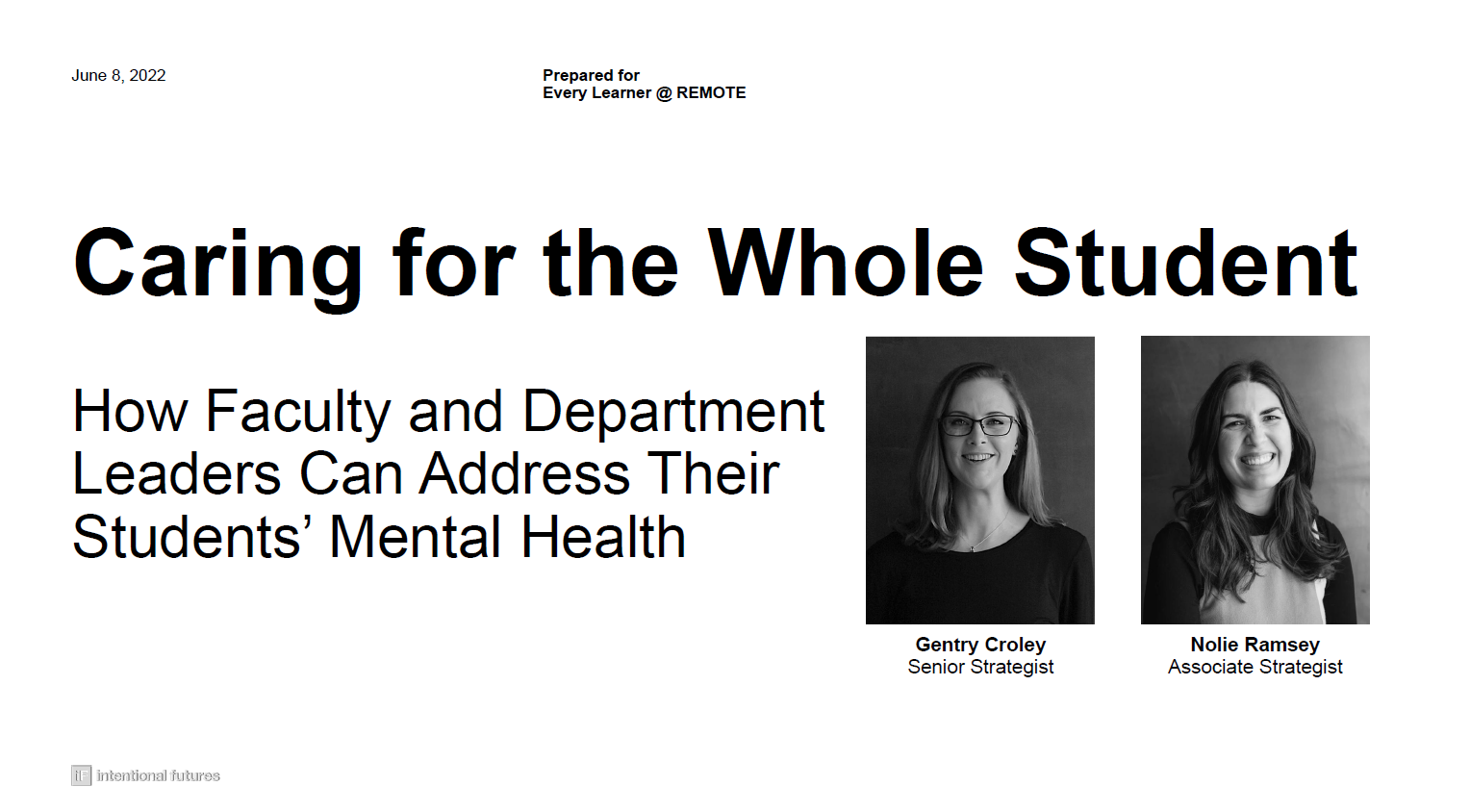
This session provides an overview of the pressures facing today’s students and what faculty and institutions can do to support them.
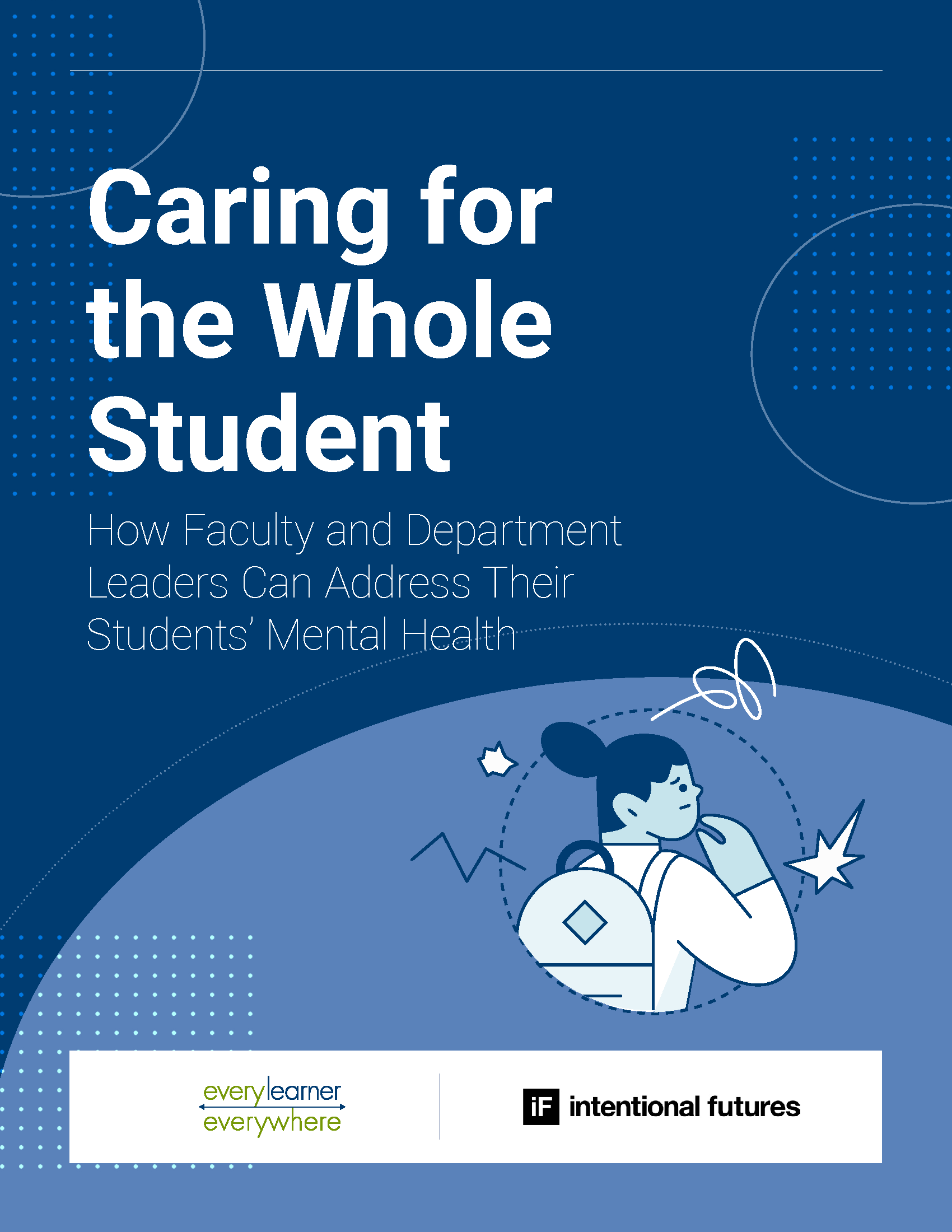
Colleges and universities can help alleviate the burden students face every day, including restructuring mental health support on campus, providing options for digital learning, encouraging teachers to apply trauma-informed teaching practices, and connecting students with the resources they need to thrive.
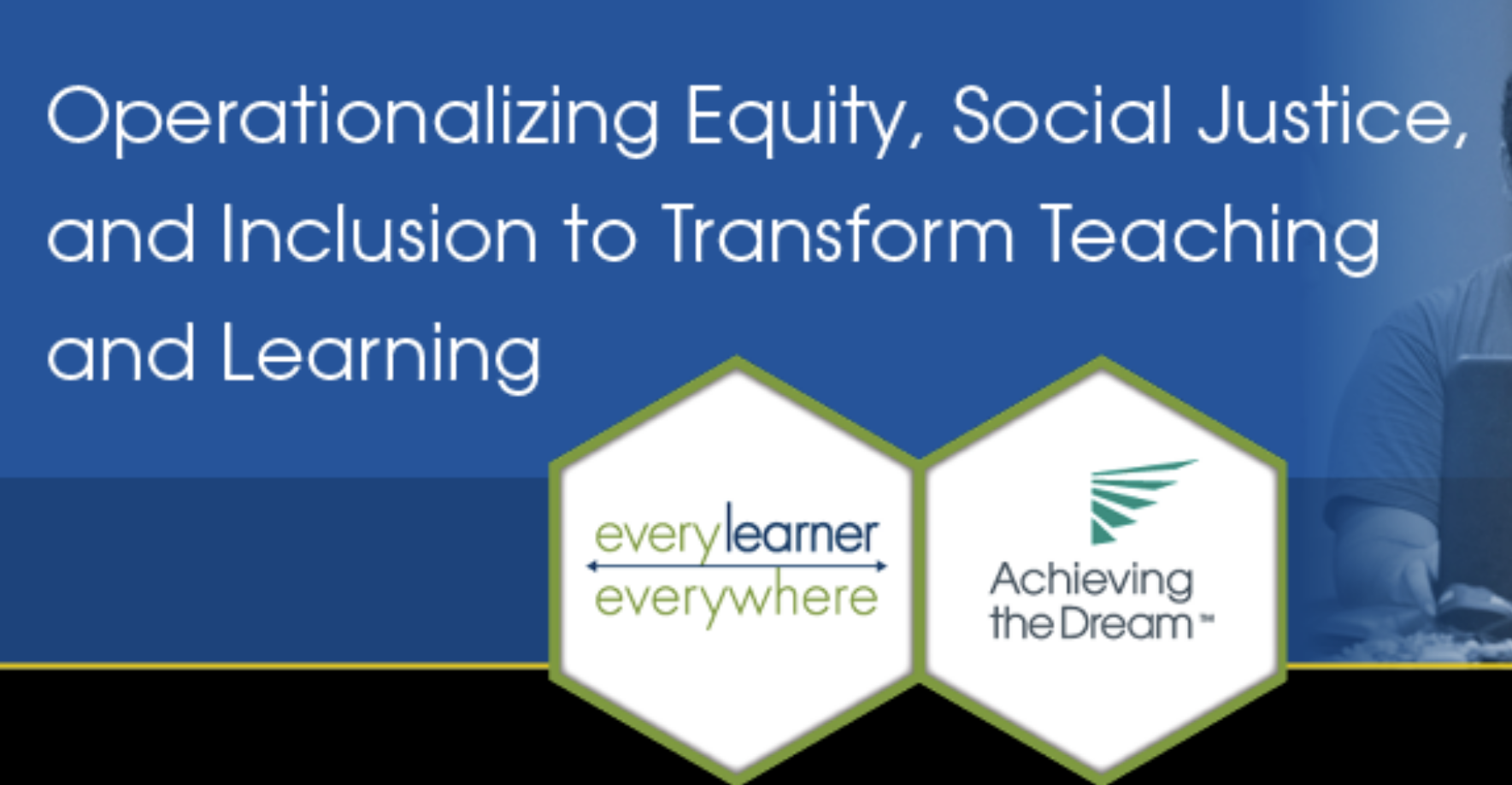
In this webinar, participants engage in dialogue and discourse with panelists about co-creating environments that support and humanize students’ academic experiences while affirming their strengths and potential in the classroom.
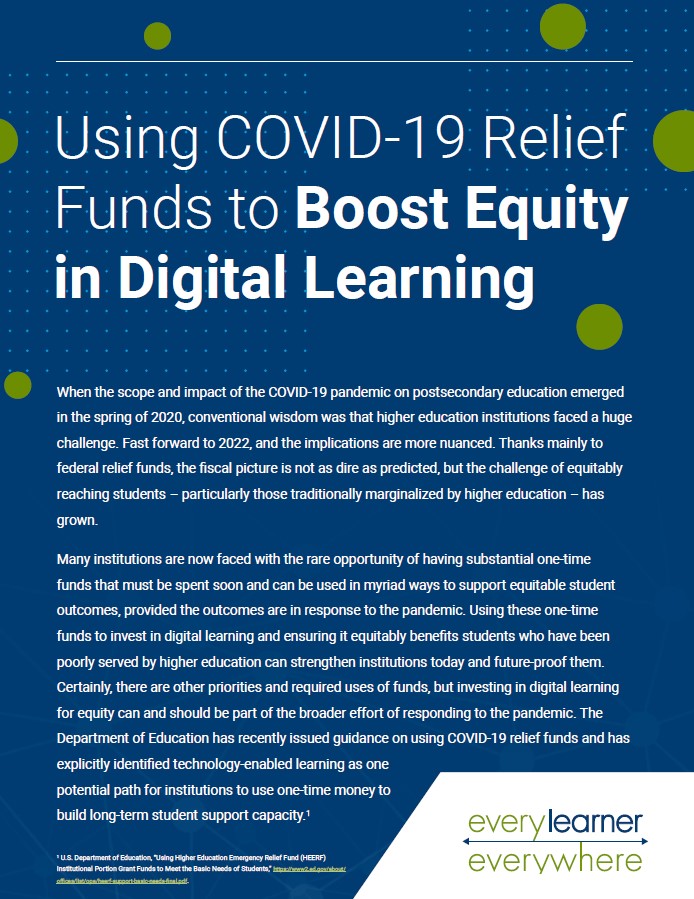
Using COVID-19 Relief Funds to Boost Equity in Digital Learning
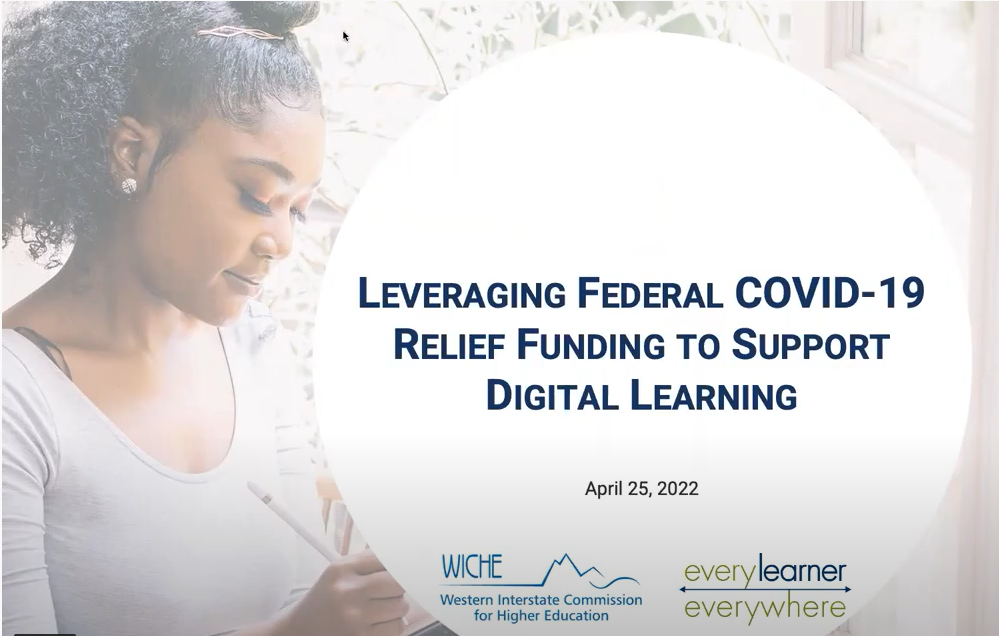
Experts on federal policy and digital learning, and institutional representatives discuss the opportunities afforded by federal Covid resources.
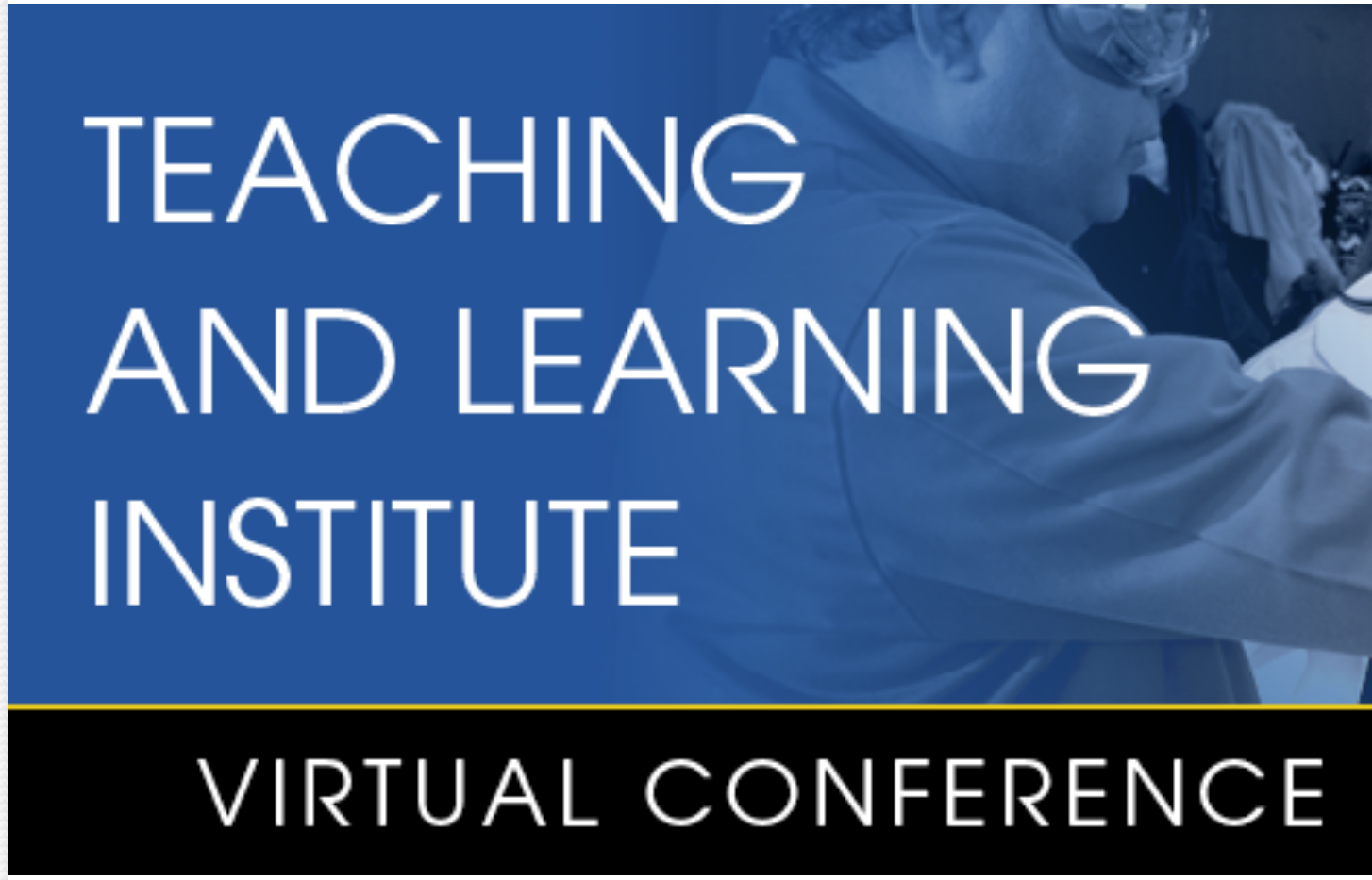
Faculty development leaders share their strategies for shifting the framework in ways that advance equitable student learning experiences.

The Equity Review Tool guides educators to interrogate their practices and reflect on equitable language usage and employ strategies to support a more equitable teaching and learning process.
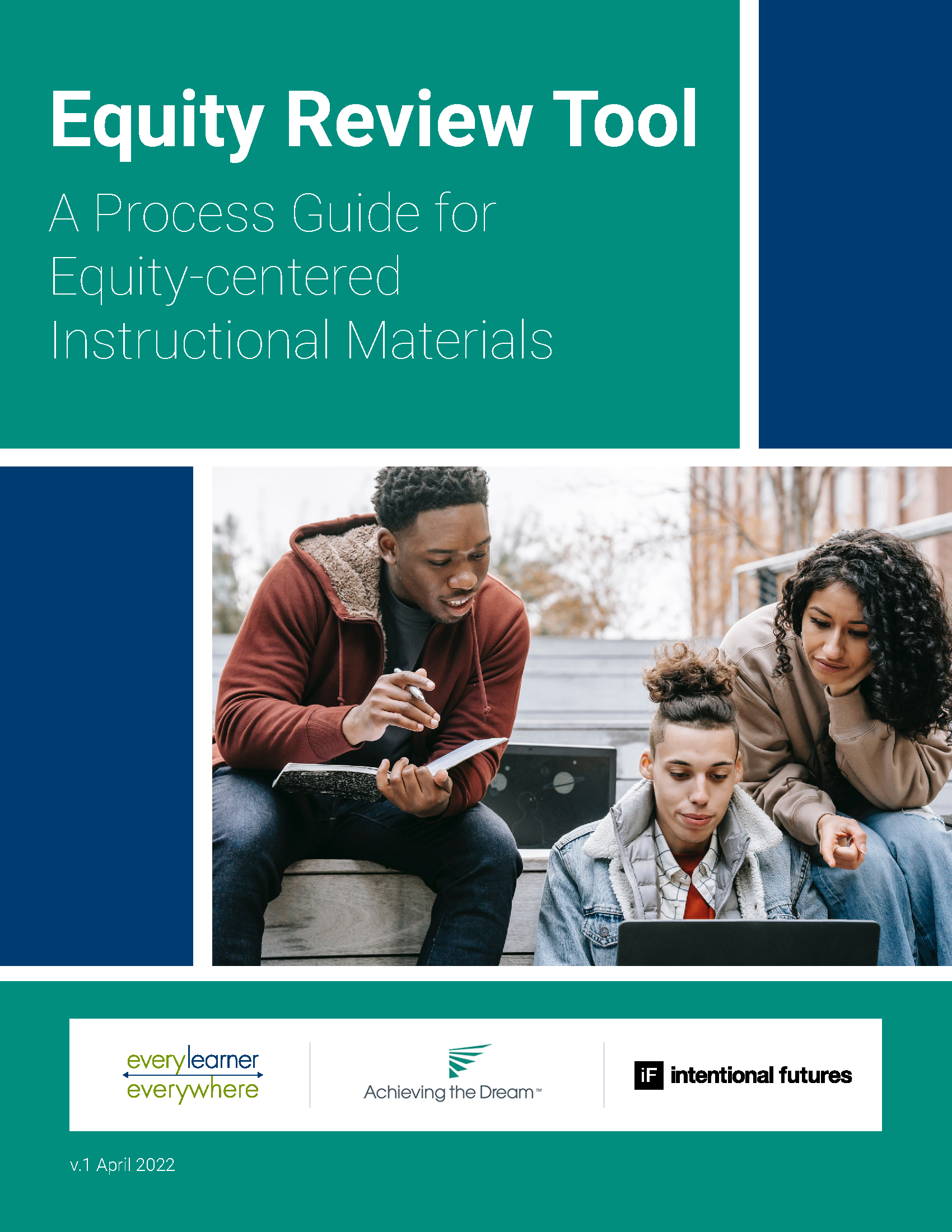
The equity review tool is designed for educators striving to create more validating and affirming learning experiences and environments for students. Using this tool, educators will be able to develop and evaluate their resources and the language they use to ensure they are asset-based and supportive of a more equitable teaching and learning process.

Three students who are ATD fellows share their first-hand accounts of culturally responsive teaching practices and the impact on their learning experiences.

Presenters share their experiences in developing course curriculum, assignments, and content that validate, affirm, and embrace the diverse perspectives, lived experiences and cultures of the student they serve.

This workshop provides examples of successful innovative and digital assessment approaches that center students and allow for authentic and culturally responsive measurement of student learning.
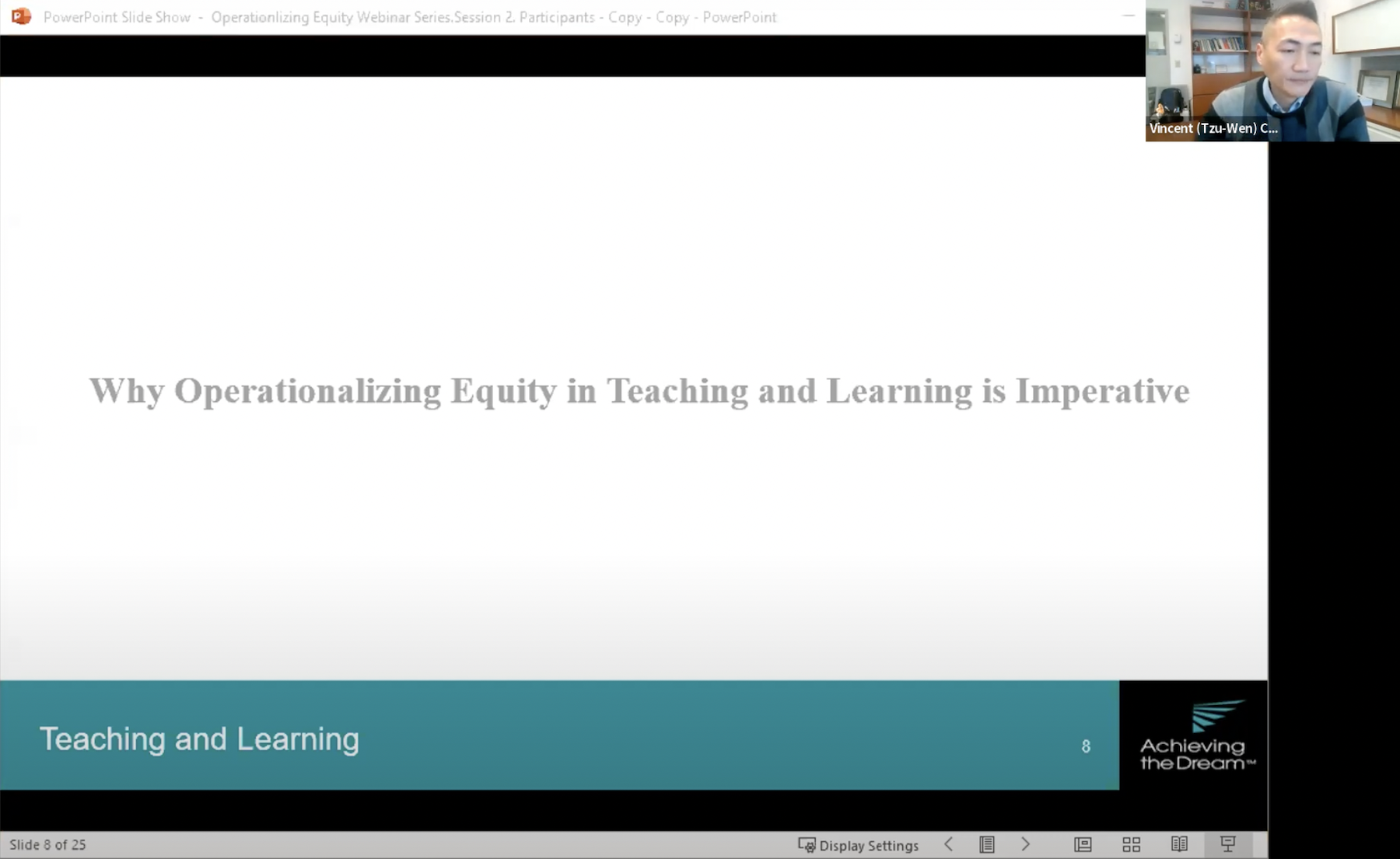
Panelists share tenets to purposefully embed equity, social justice, and inclusion into innovative teaching and learning in face-to-face and virtual spaces.
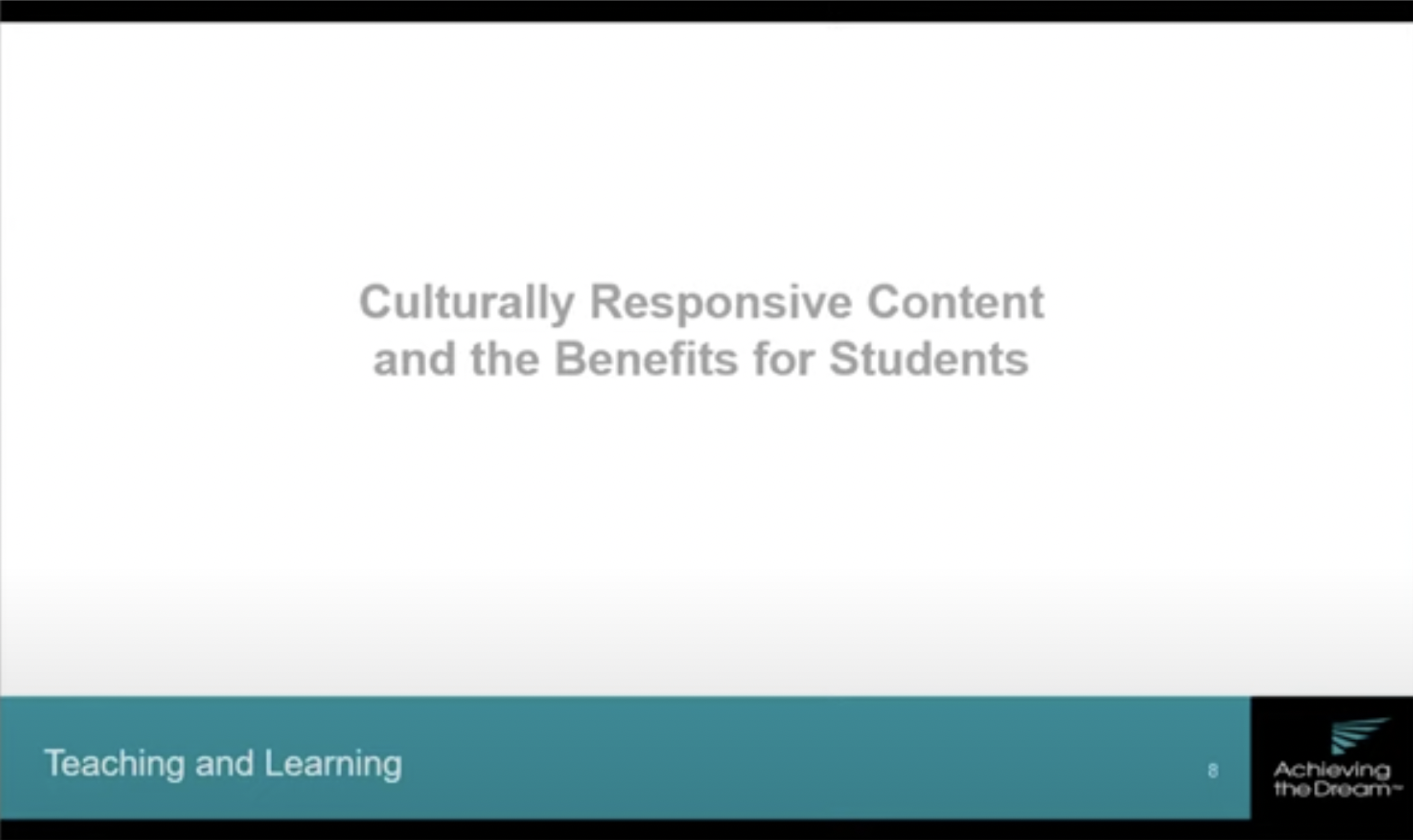
This webinar explores how to develop and design course content that is inclusive of diverse students, perspectives, cultures, and lived experiences.
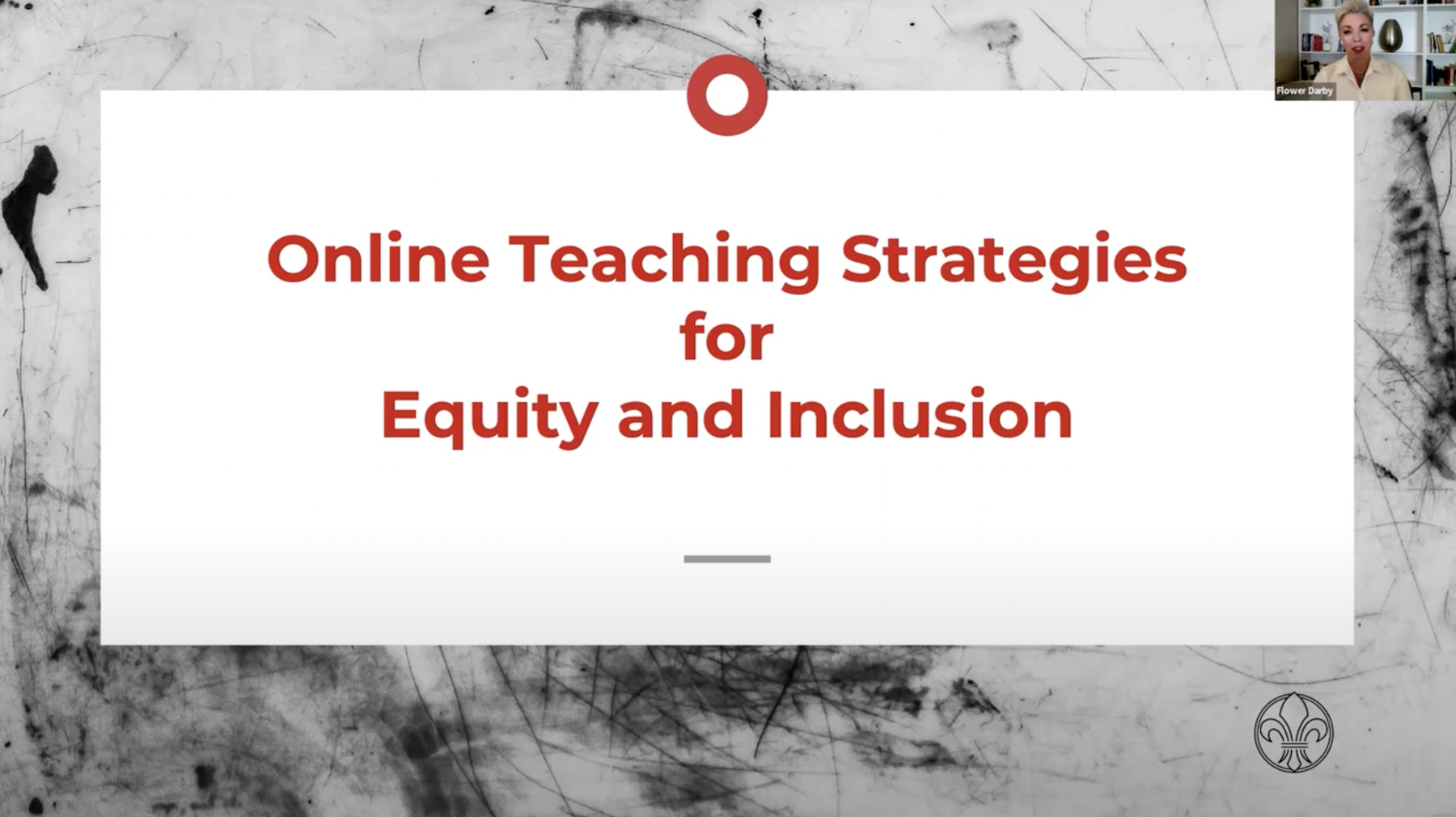
Evidence-based frameworks to welcome and support all students, regardless of their background, abilities, identities, needs, or preferences.
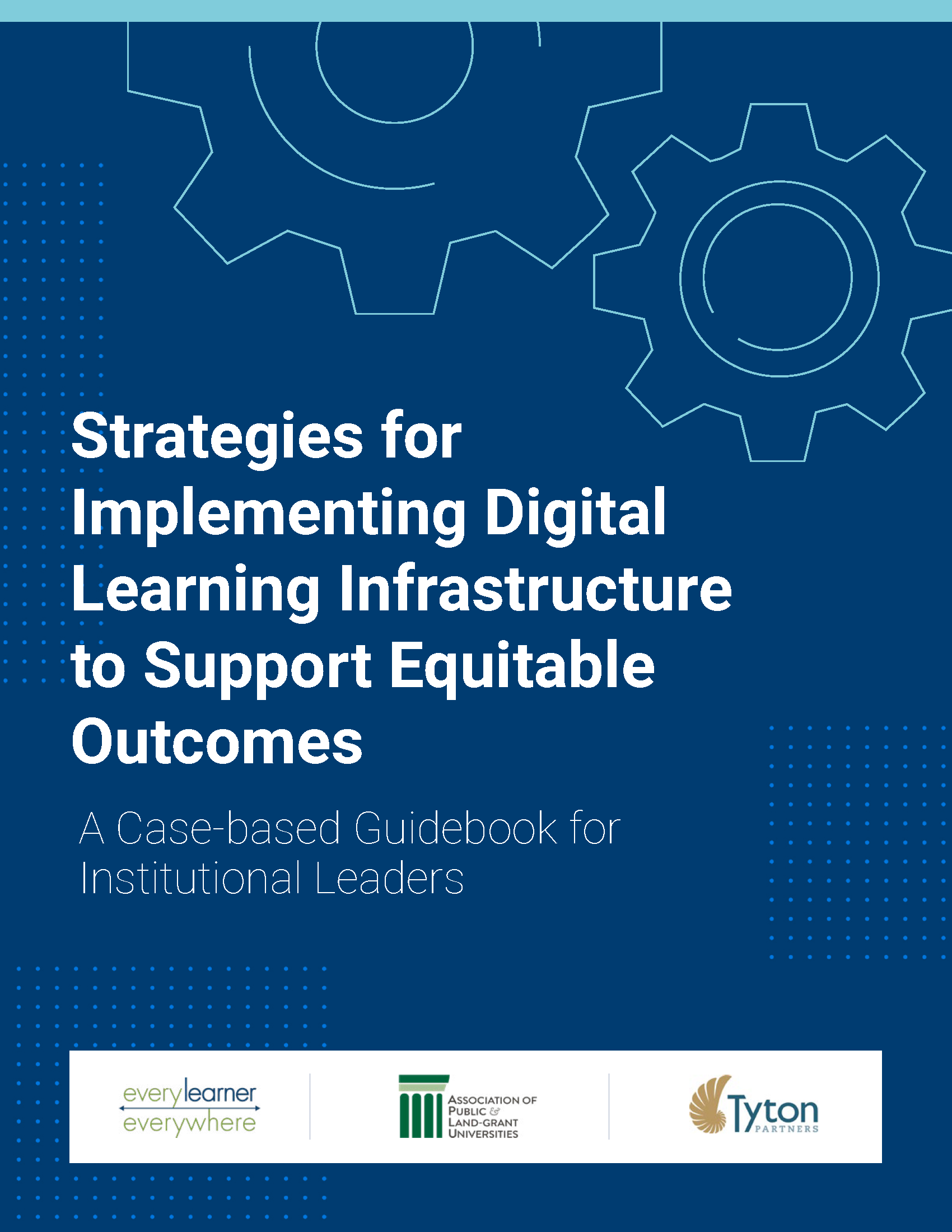
This report focuses on building the core infrastructure needed for high-quality digital learning and is designed primarily for a mid- to senior-level academic administrators including department chairs, leaders of centers of teaching and learning, technology leaders, and academic leadership.
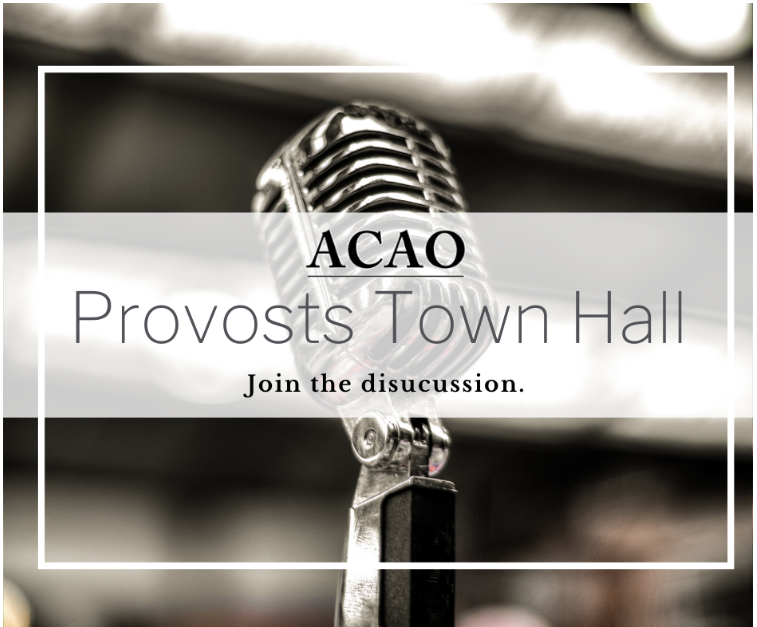
In this town hall, learn how to develop an anti-racist analytical framework, based on an anti-racist growth mindset.
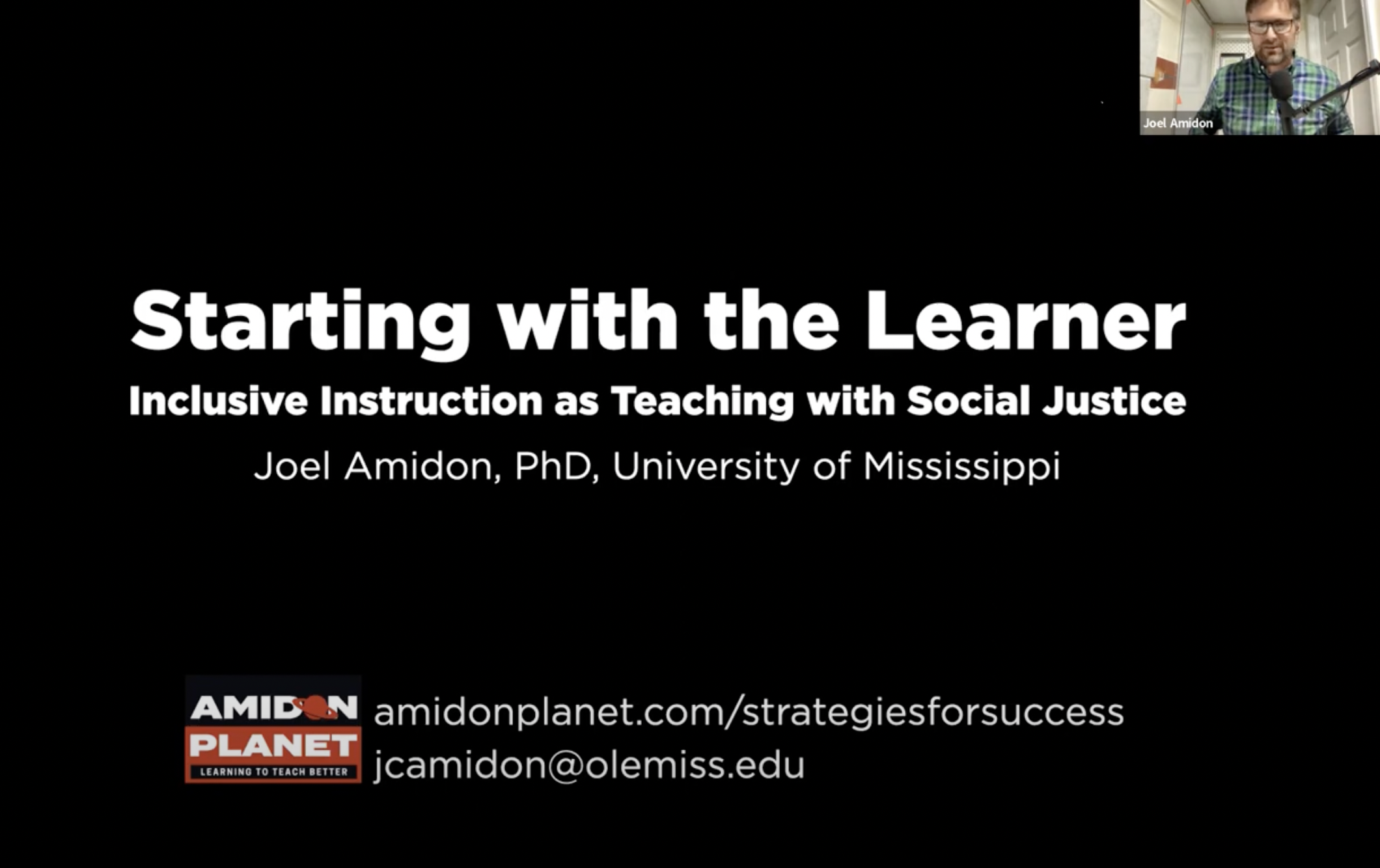
Participants consider how to make instructional design decisions that provide an inclusive learning environment.
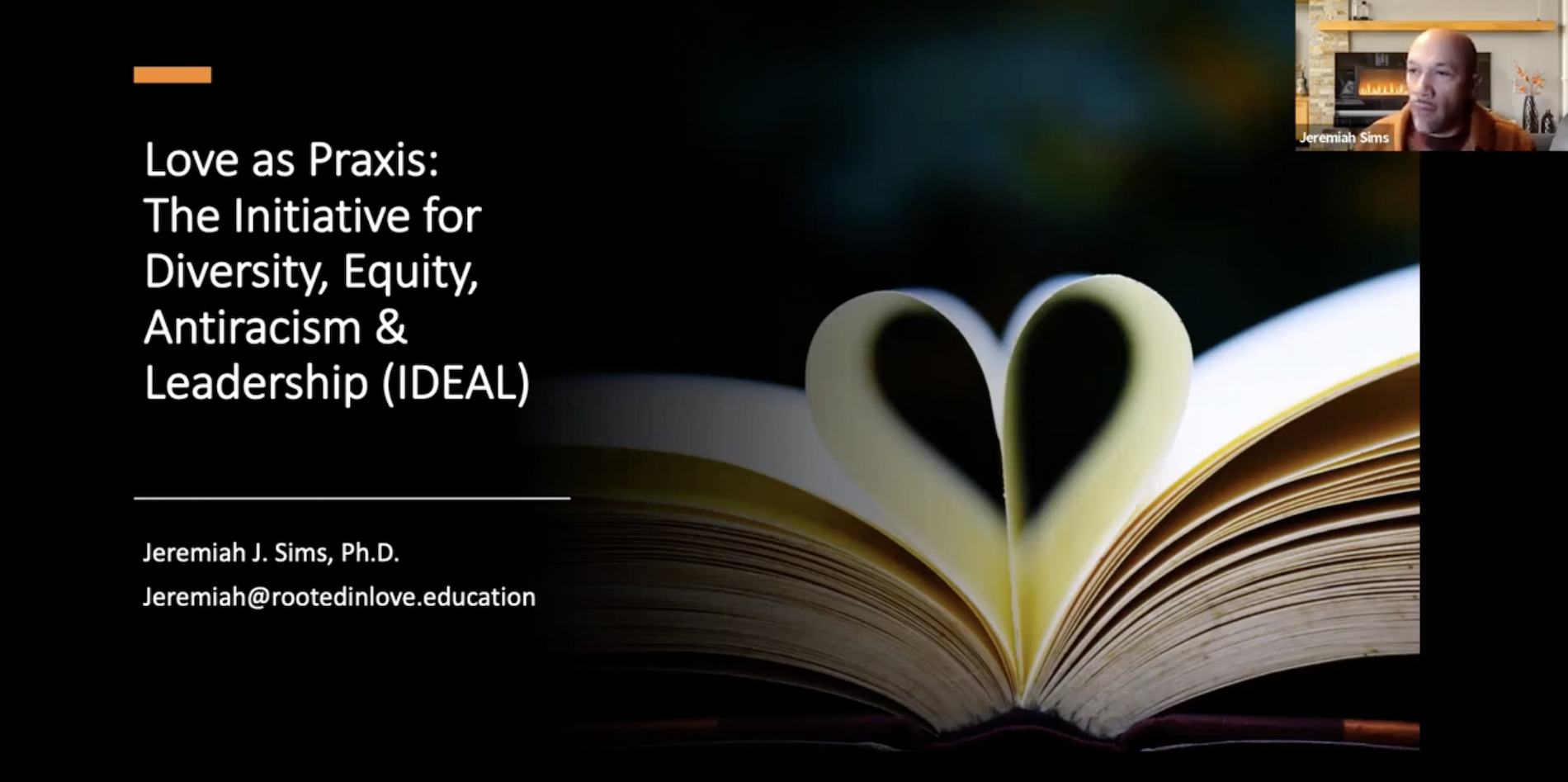
Dr. Jeremiah J. Sims discusses the impact on students of the Washington State Guided Pathways Initiative in Diversity, Equity, Antiracism, and Leadership (IDEAL) Fellows Program.
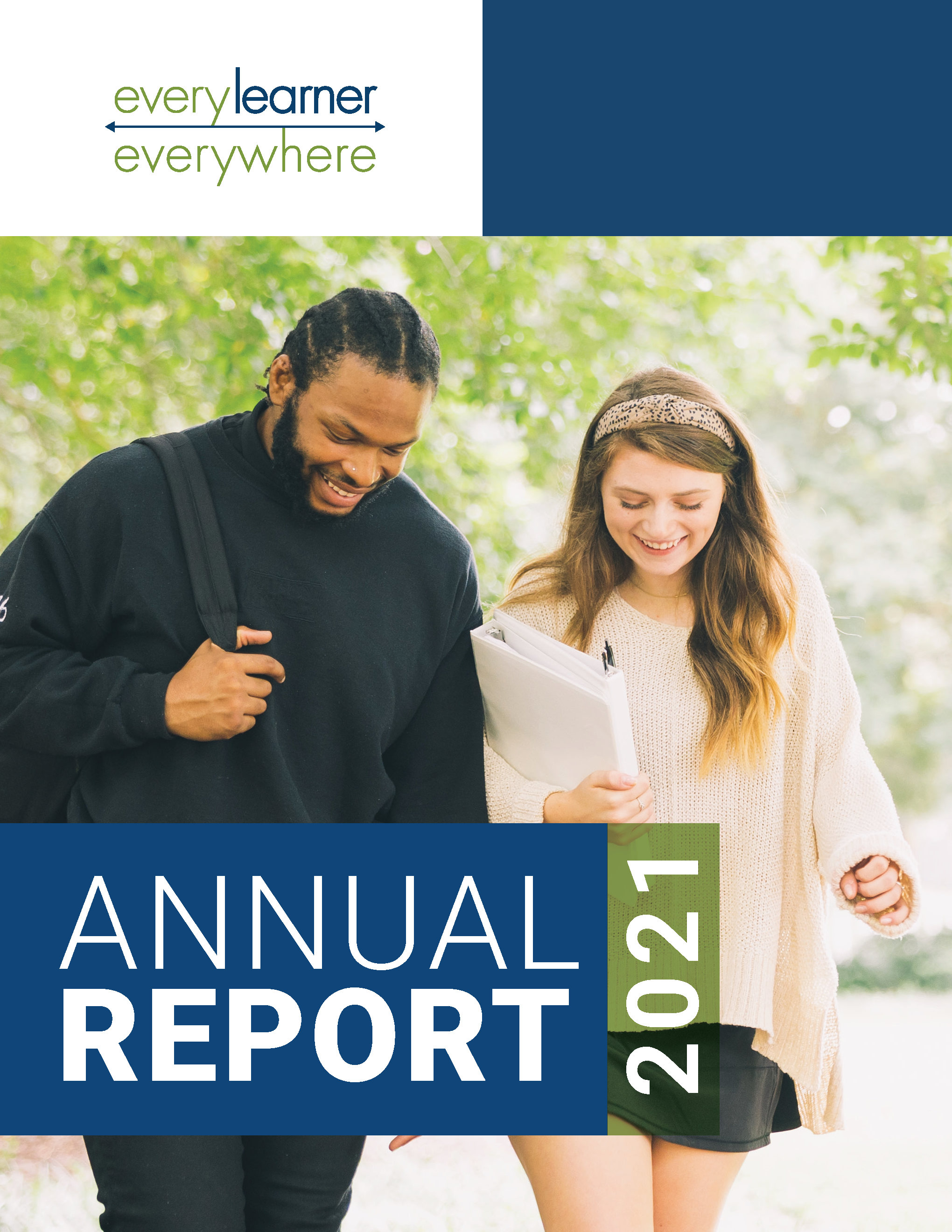
This year our network has prioritized increasing our knowledge and capacity for equity and racial justice work along with centering equity and racial justice in our resources and services. In addition to our personal and professional equity work, we have spent this last year inviting students into our work.
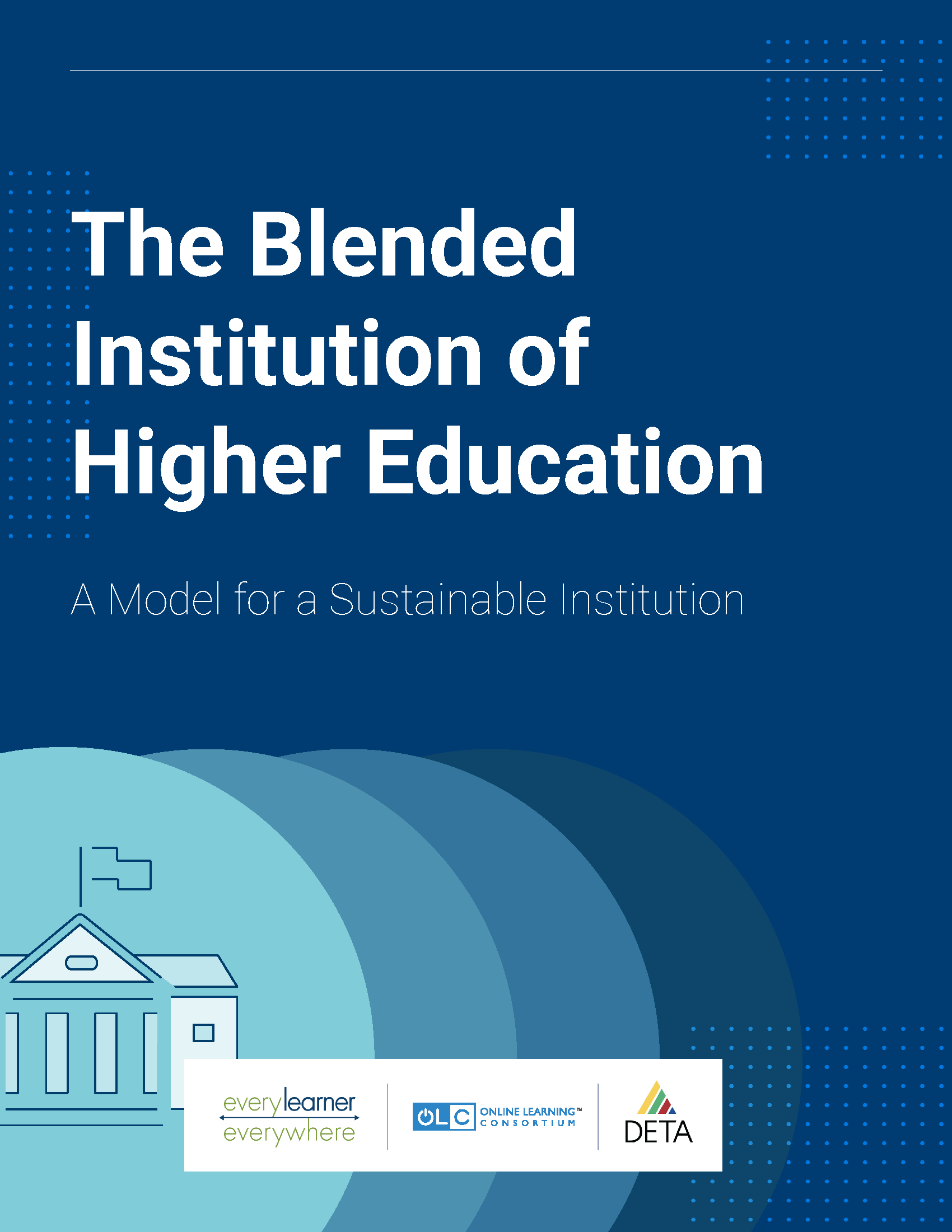
This guide is meant to support leaders as they transition from managing reactively to leading strategically and offers leaders a sustainable institutional model that centers on student equity and success.
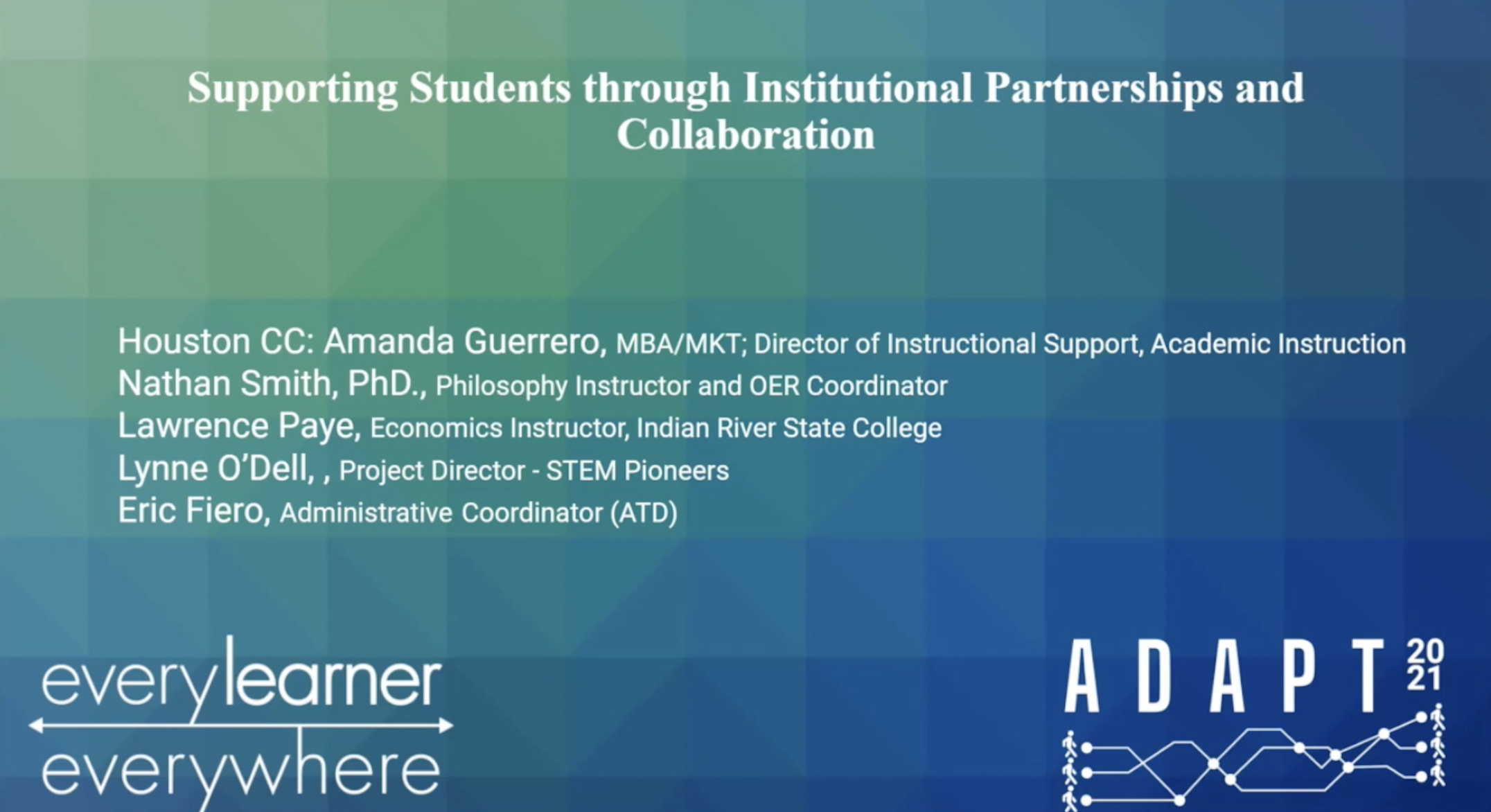
Panelists discuss how adaptive courseware supported broader institutional and faculty-led efforts to improve student outcomes.
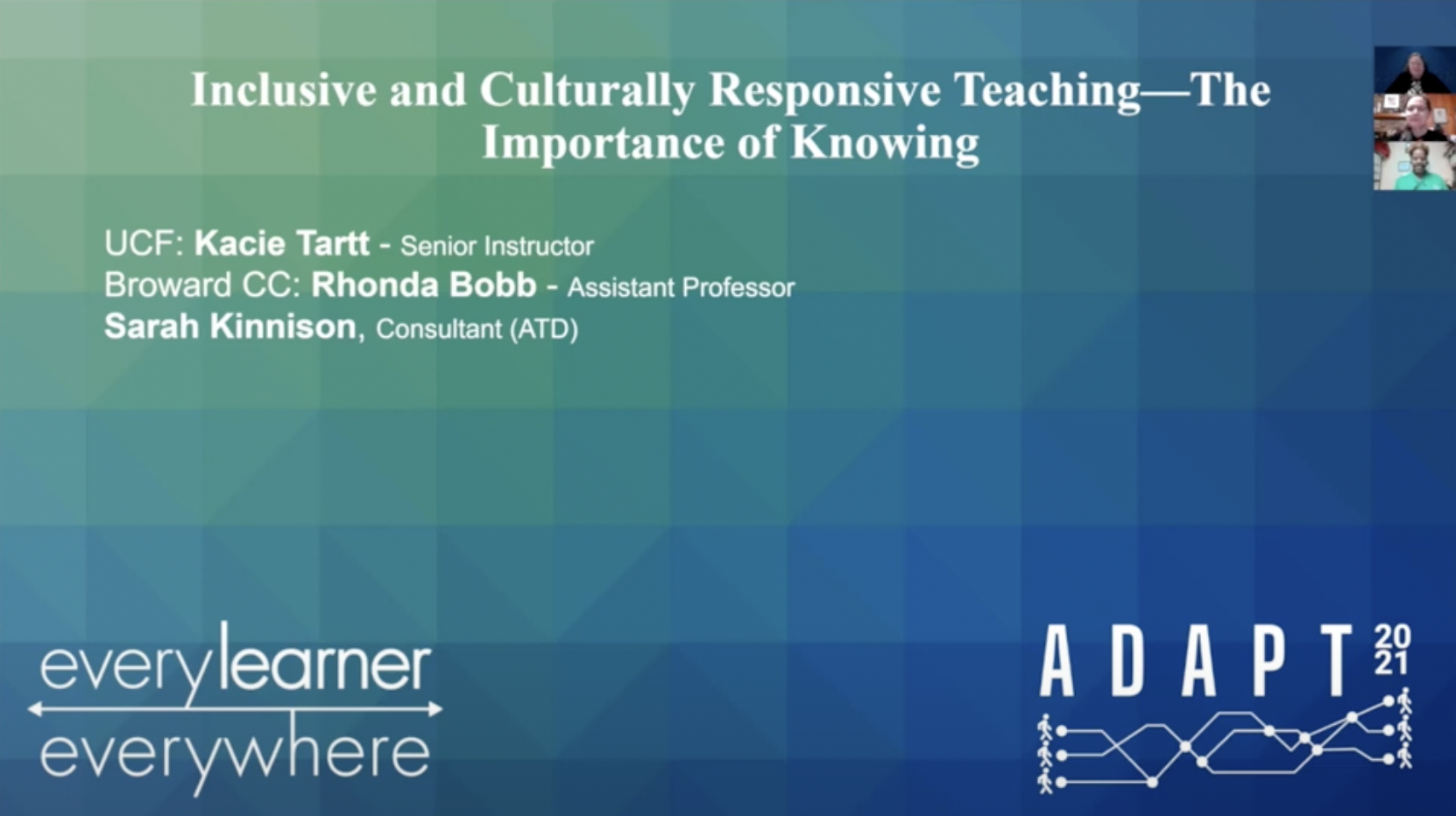
Faculty describe inclusive teaching strategies, alongside digital tools, to help connect the content to the student in meaningful and lasting ways.
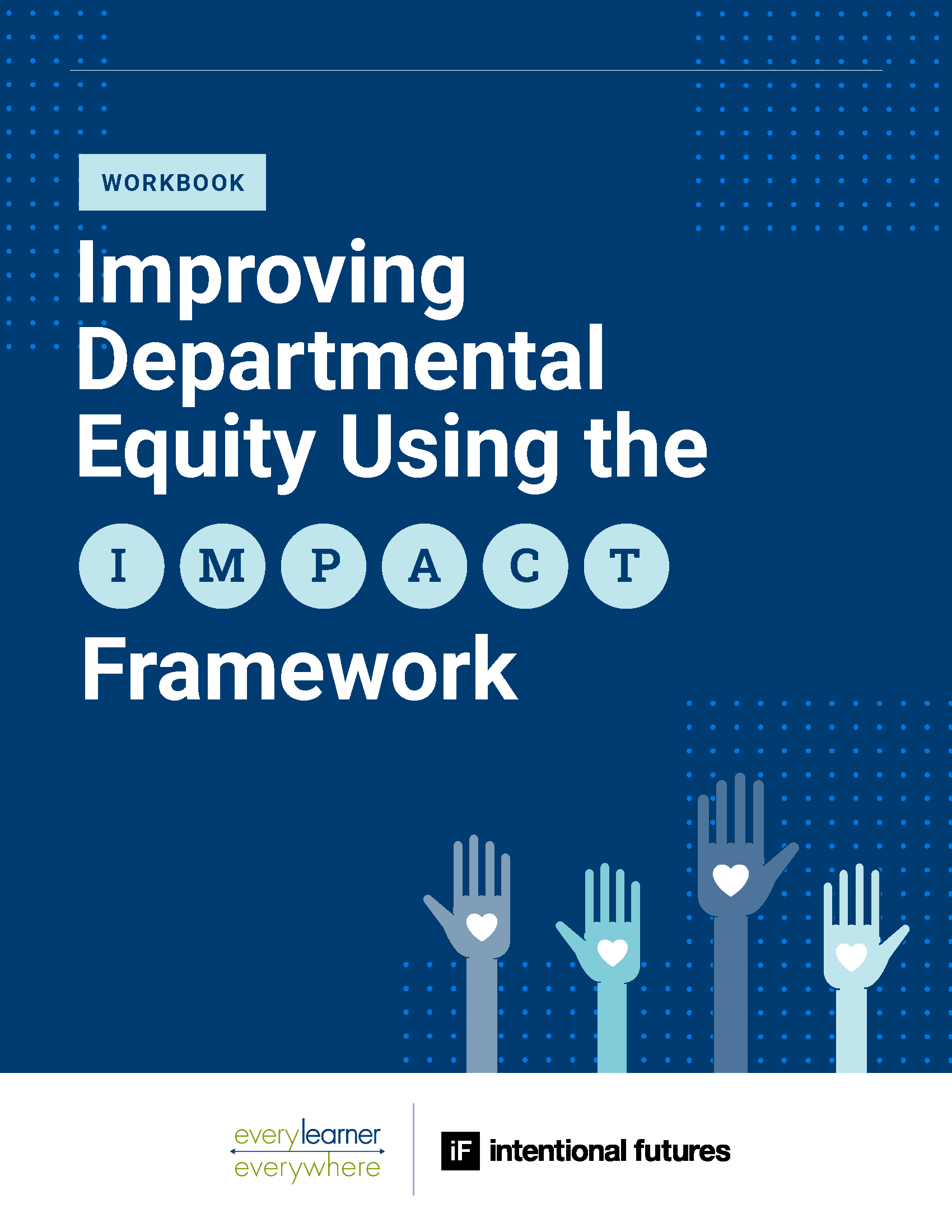
This resources includes instructions and worksheets to redress racism perpetuated by academic departmental policies and practices.
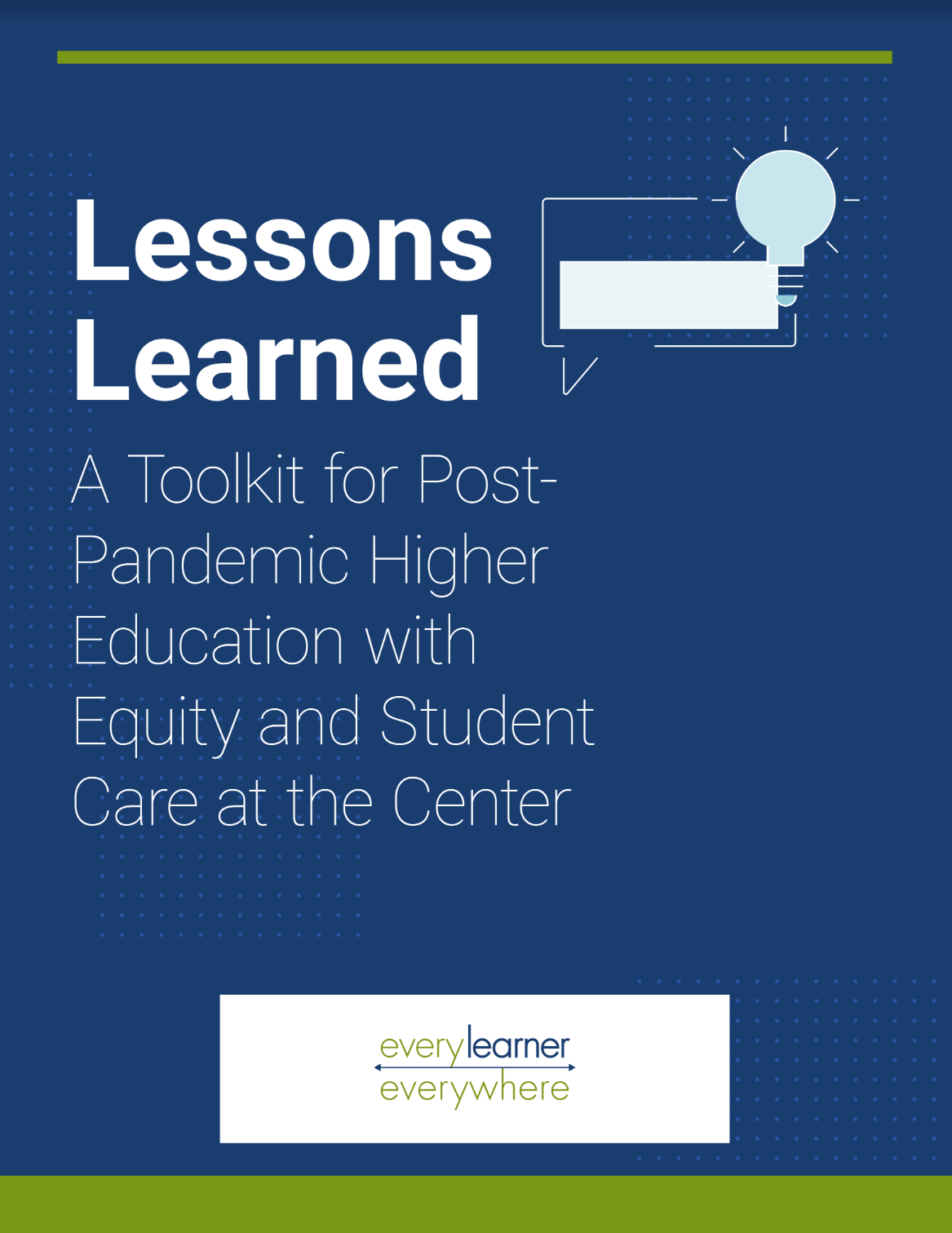
Lessons Learned is made up of over 30 recommendations for improving practices in higher education. It asks where unexpected benefits showed themselves among the forced necessity of emergency remote teaching, and it encourages faculty, administrators, and academic and student support colleagues to continue collaborating to remove barriers, improve access, and update methods and tools.
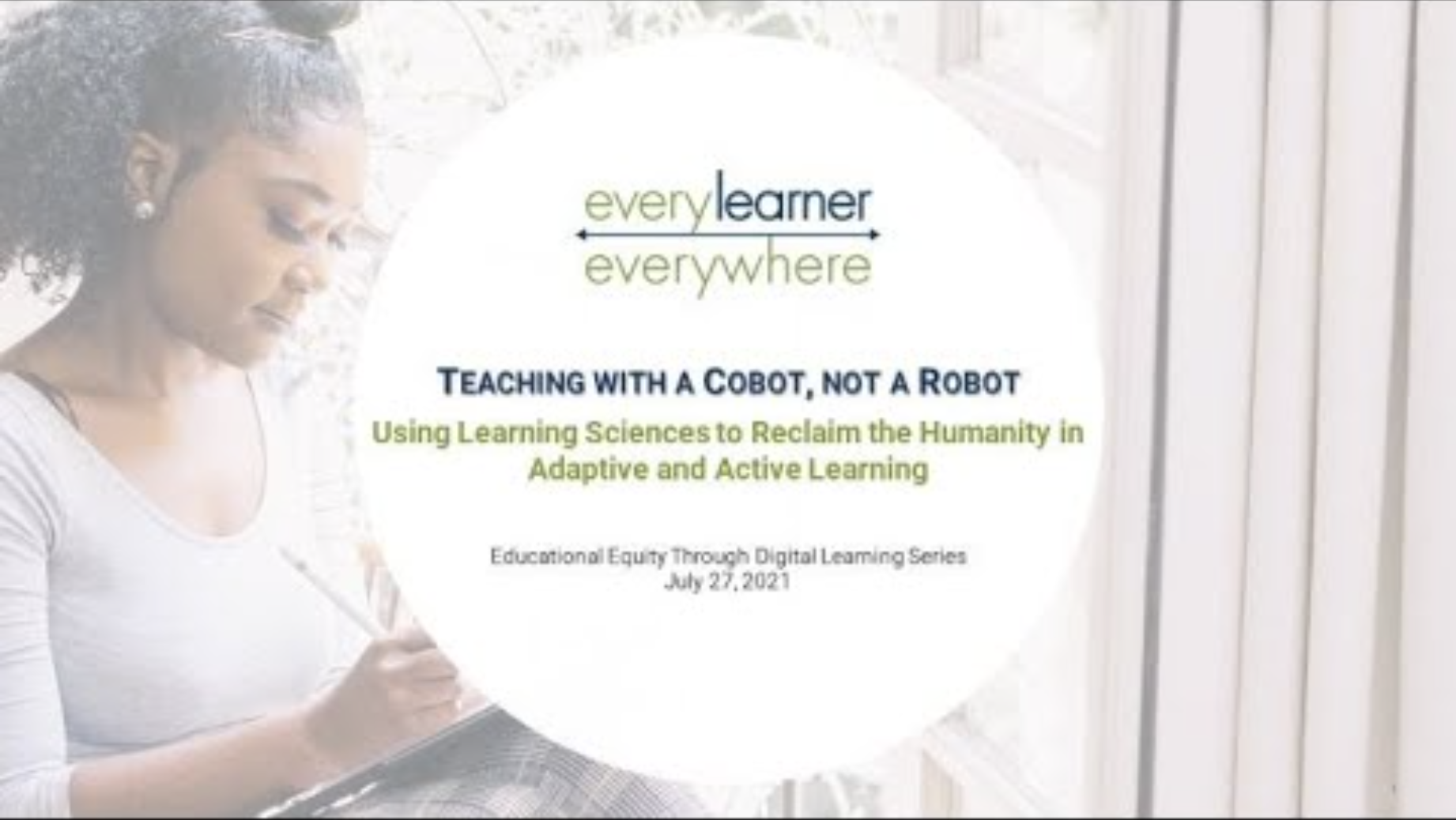
This presentation explores four dimensions of motivation and feedback, two learning science pillars that engage students in the learning process and fosters long-term memories with active and adaptive learning.
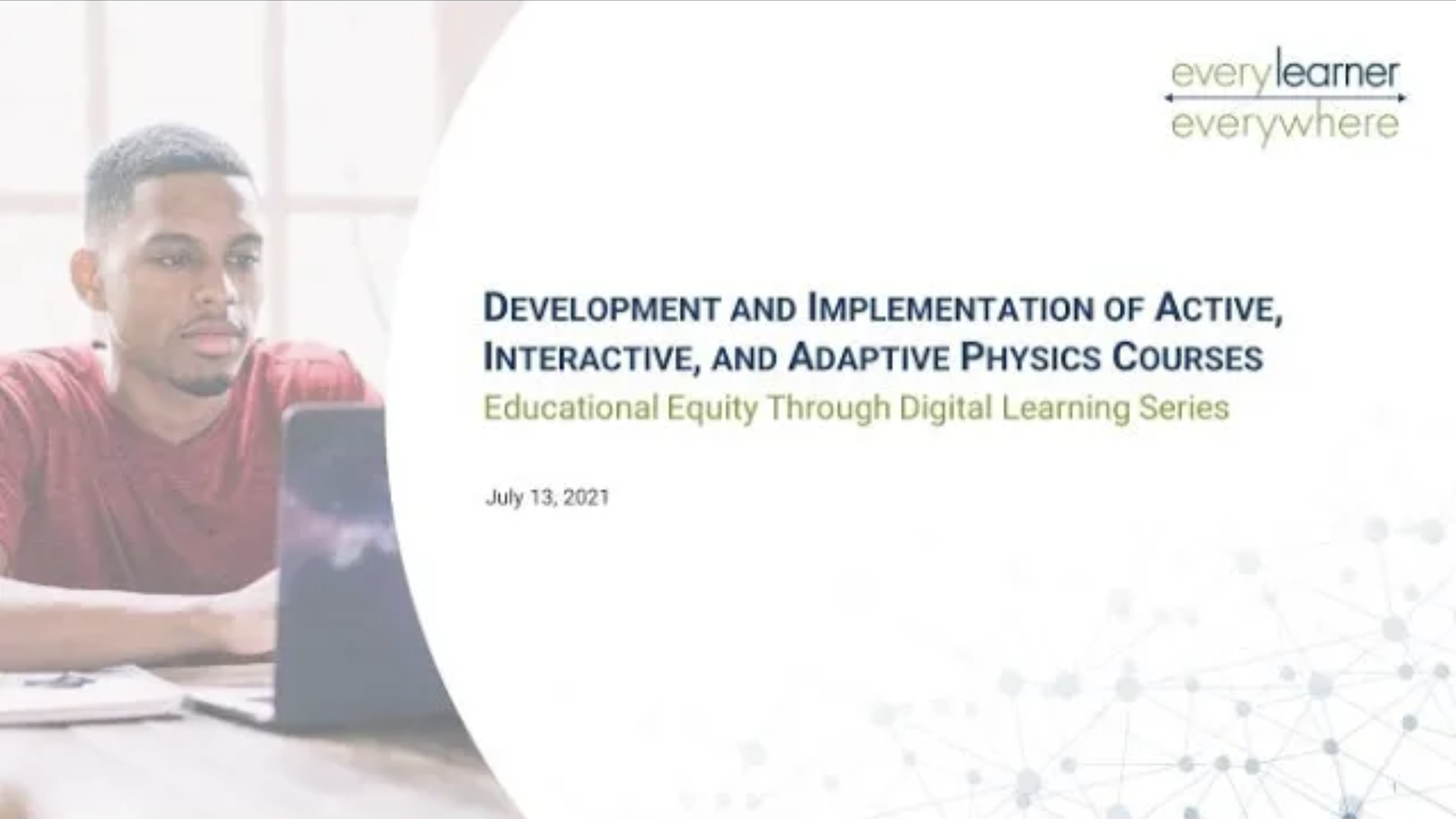
Faculty share experiences of developing and implementing active, interactive, and adaptive introductory physics courses. The design allows students to work at their own pace, choosing support items presented to them via the adaptive feature of the course, and explore concepts through simulations with activities.
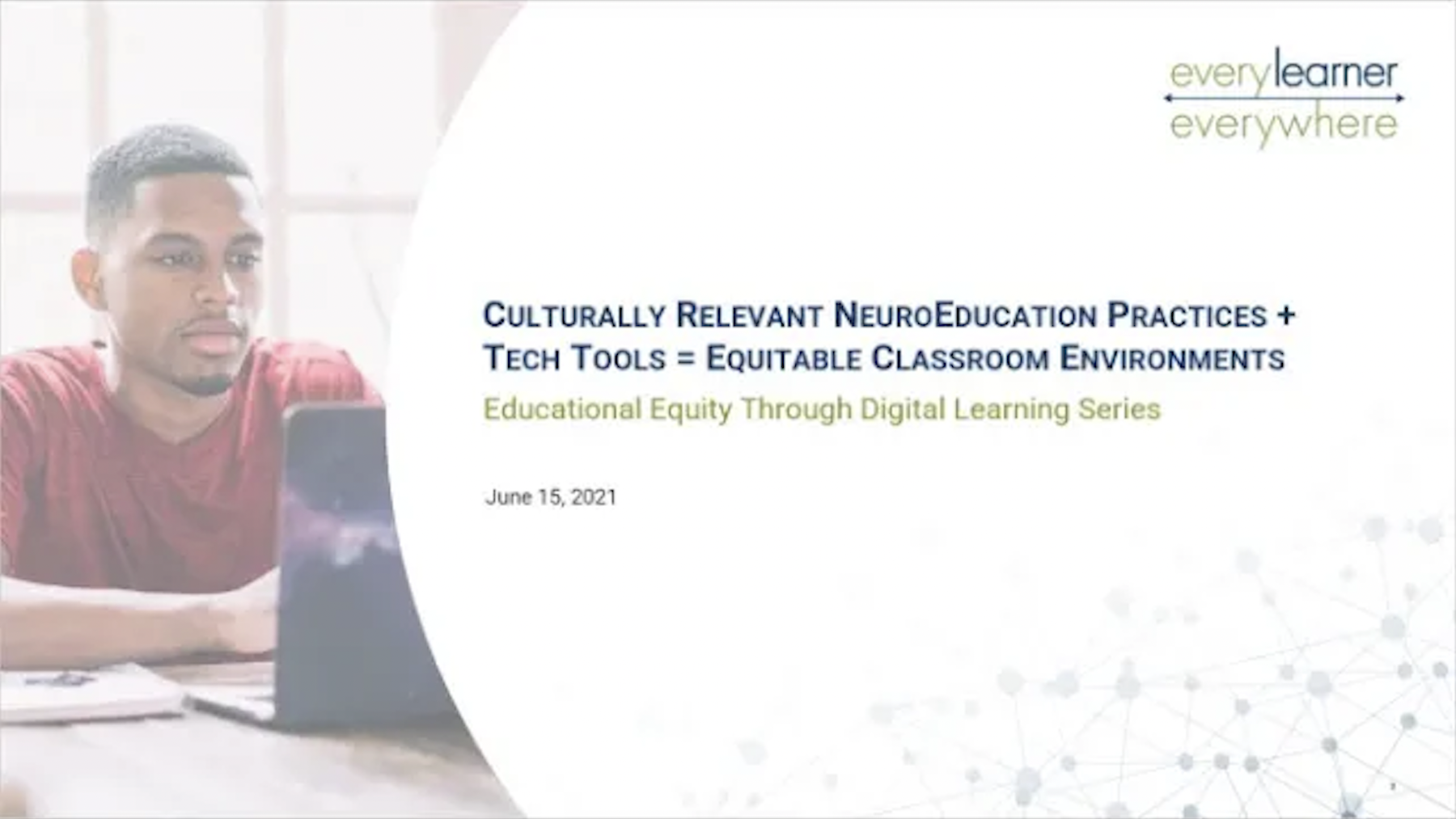
Neuroeducation strategies can help faculty feel more effective, create a warm and equitable learning environment, and improve student outcomes.
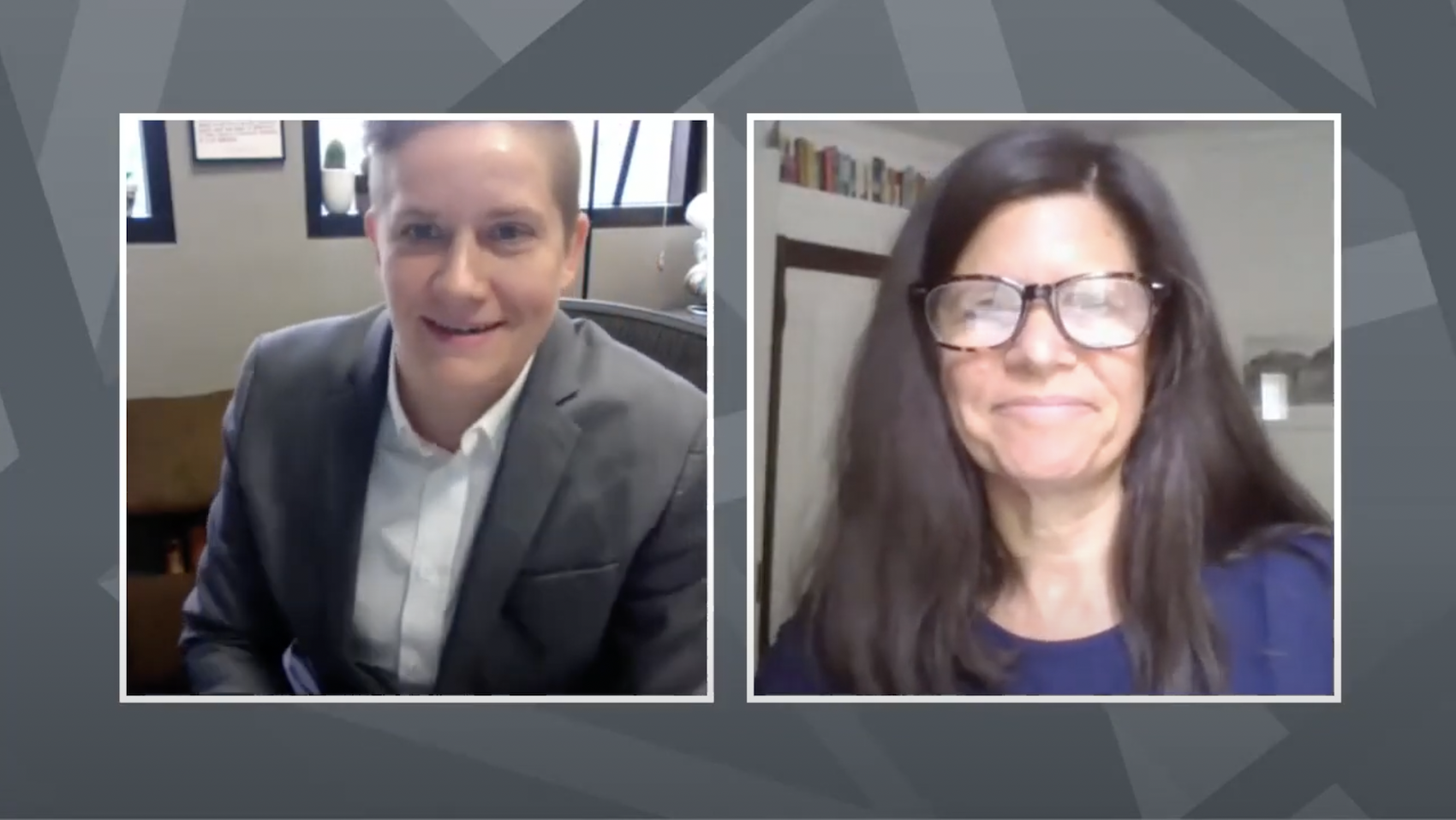
A discussion about teaching equitably with strategies to combat some of the inequities that exist within the field of English Composition.
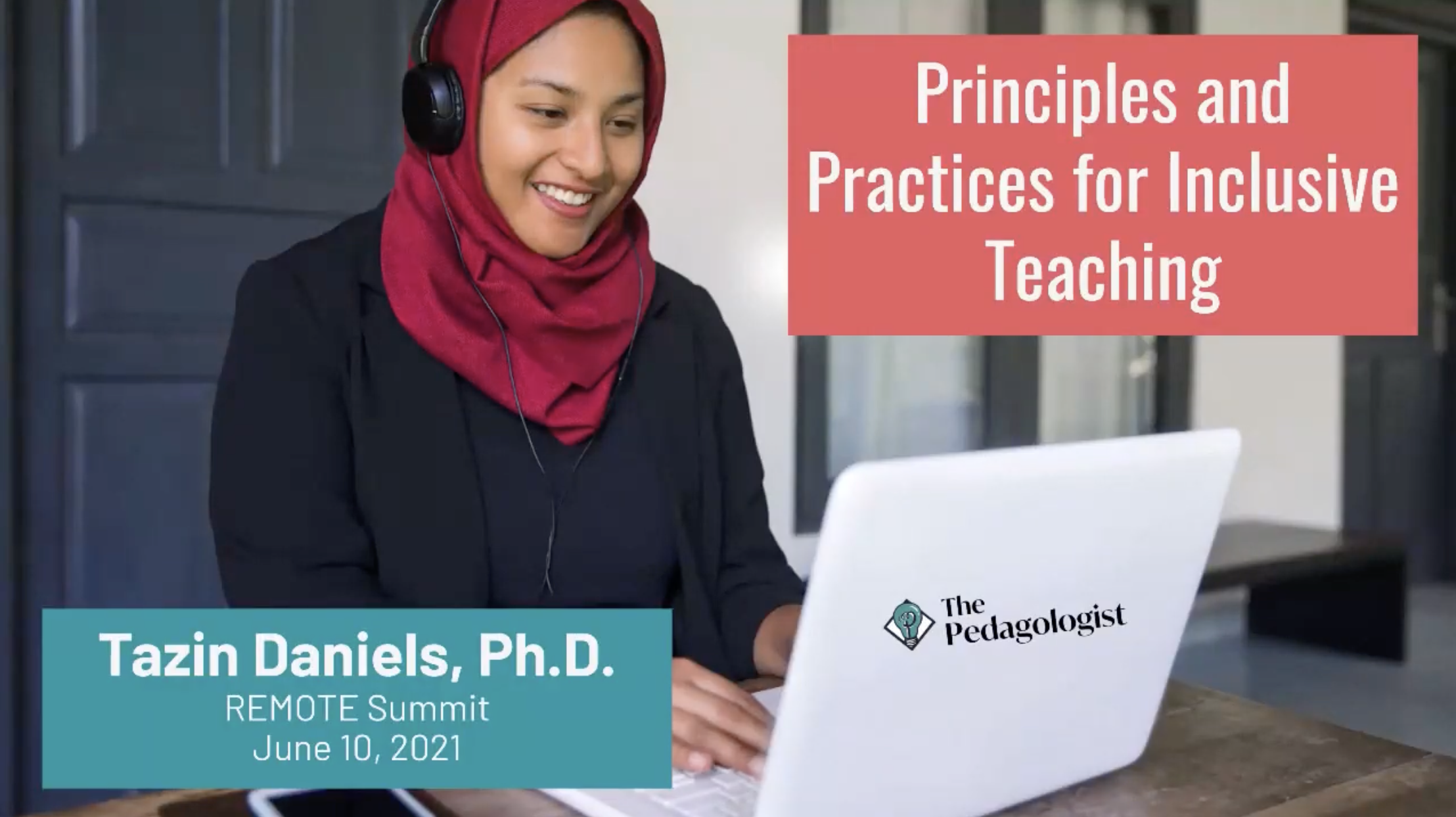
A discussion about effective practices to promote the key principles of inclusive teaching.
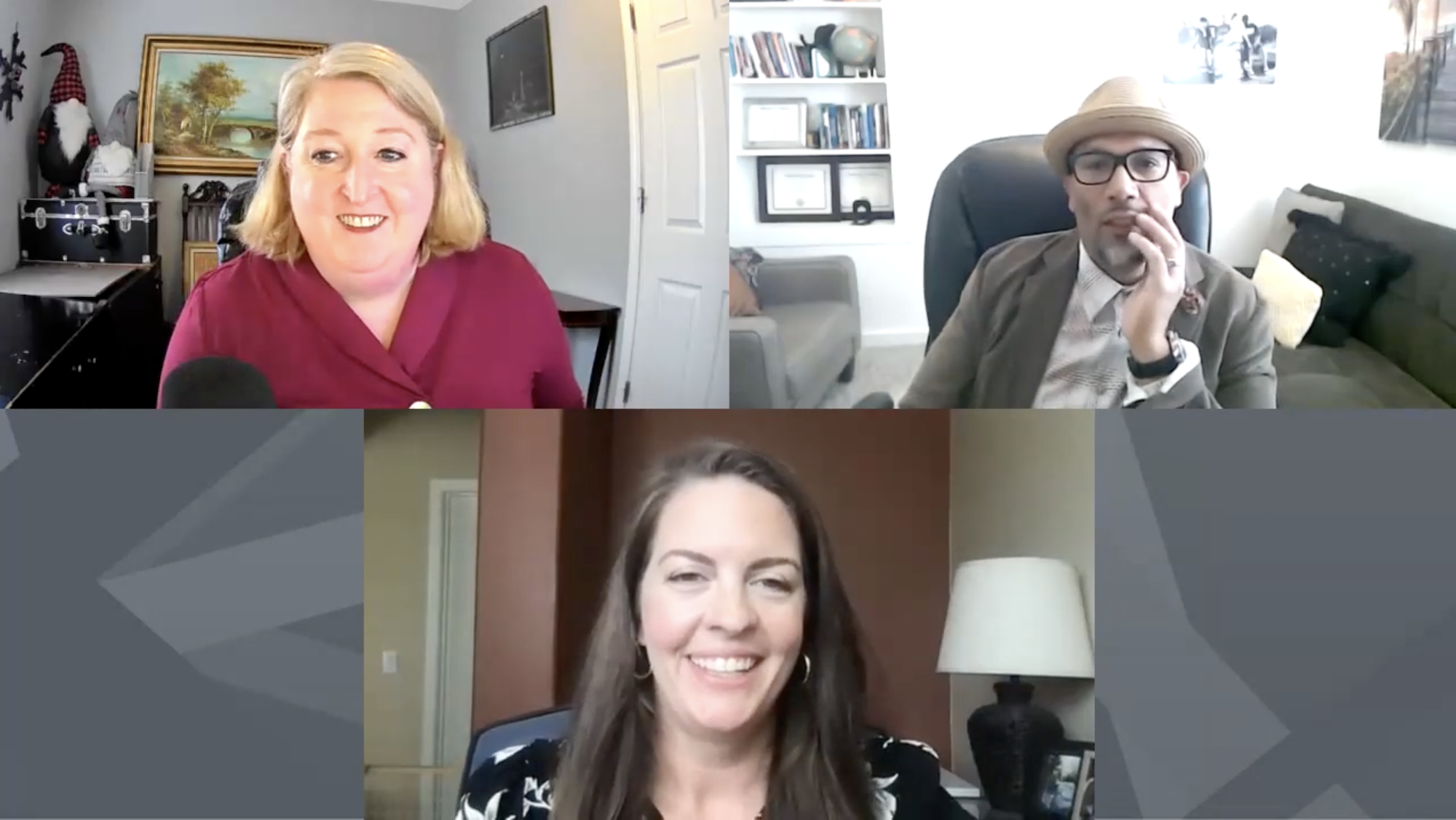
An overview of the tips and best practices for initiating an intentional movement to improve equity in gateway courses within your department.
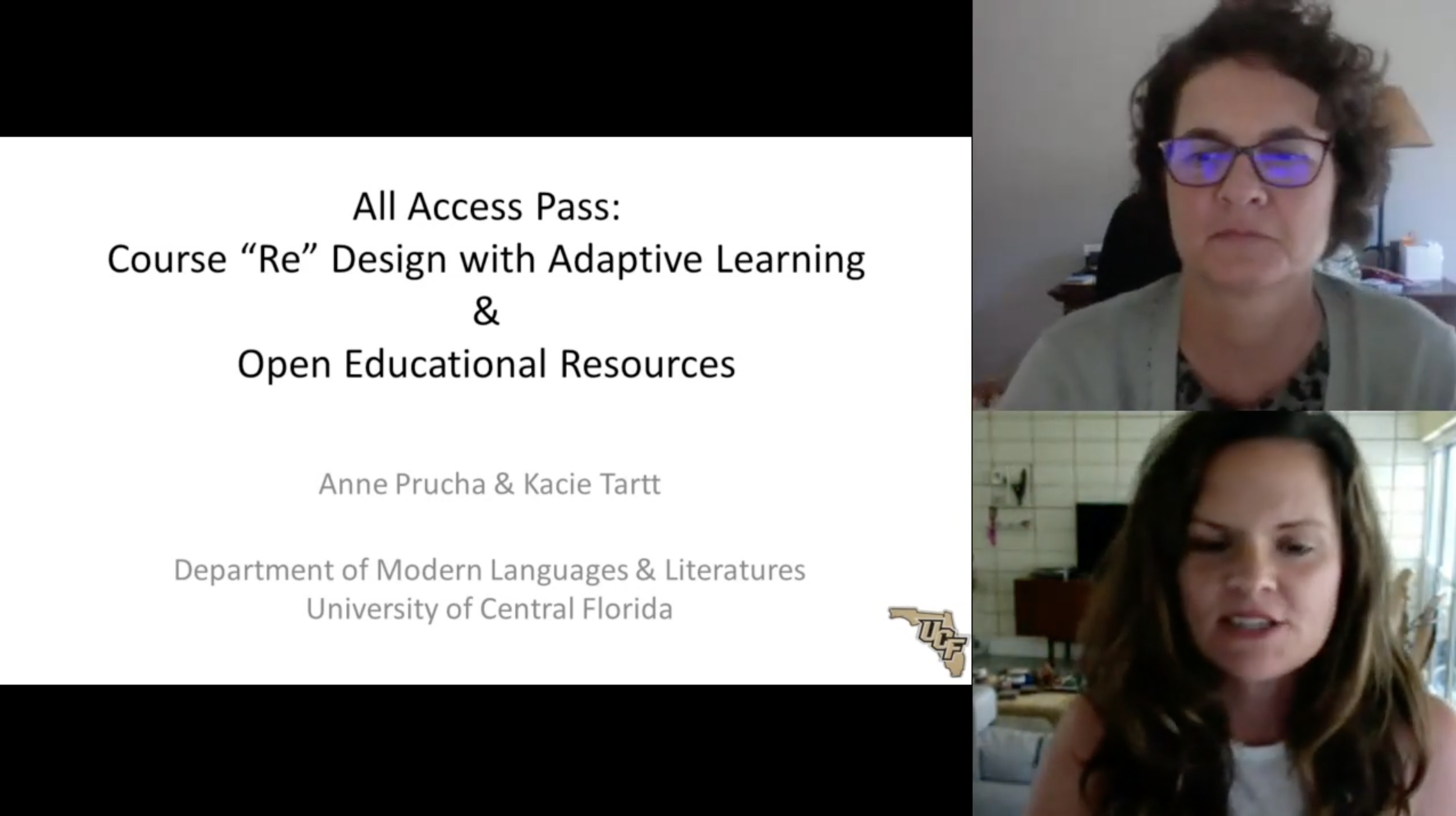
Learn about the work of faculty at the University of Central Florida who improved accessibility and equity through the adoption of adaptive learning practices.
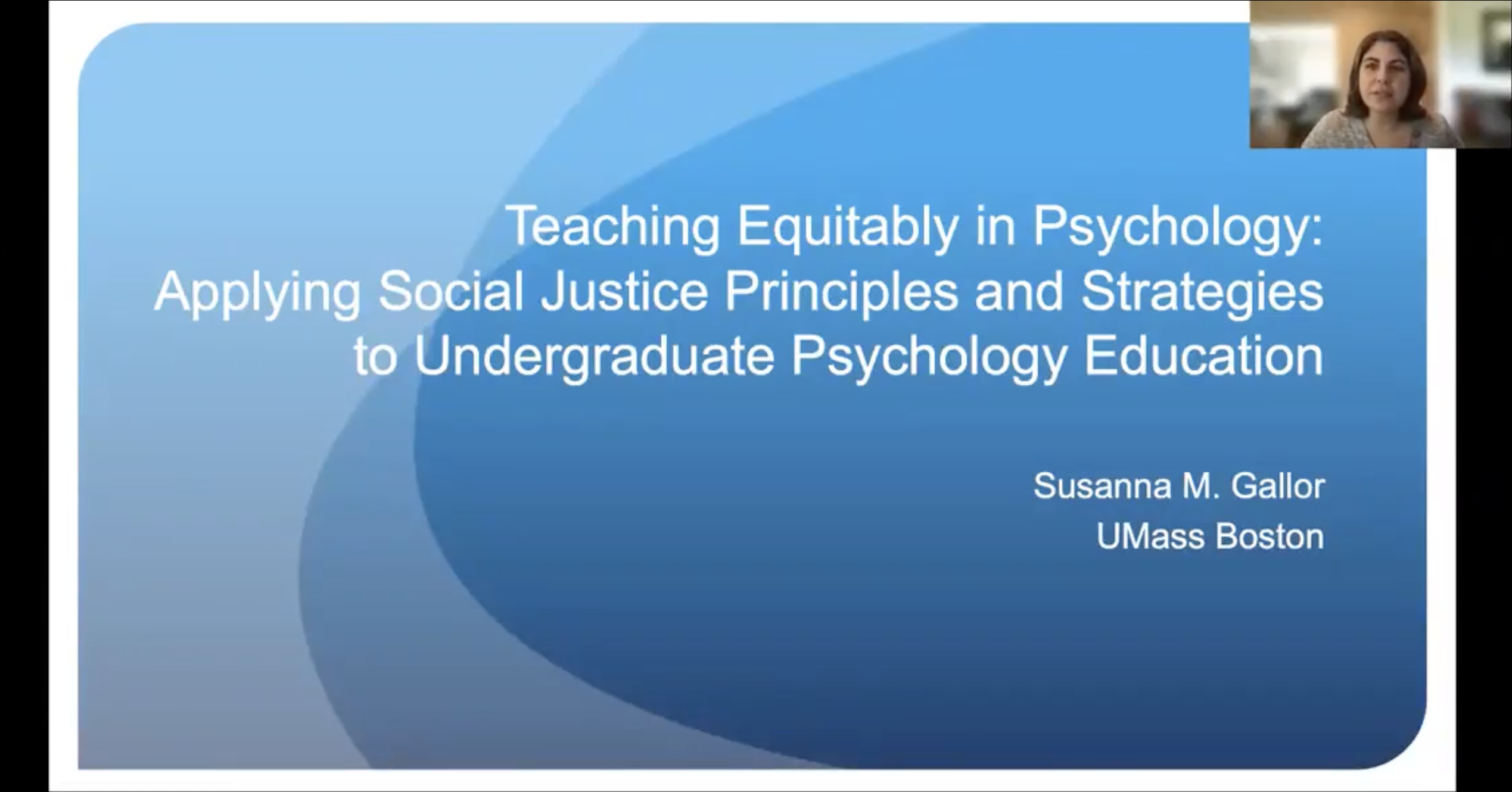
How to create an inclusive and equitable learning environment in psychology.
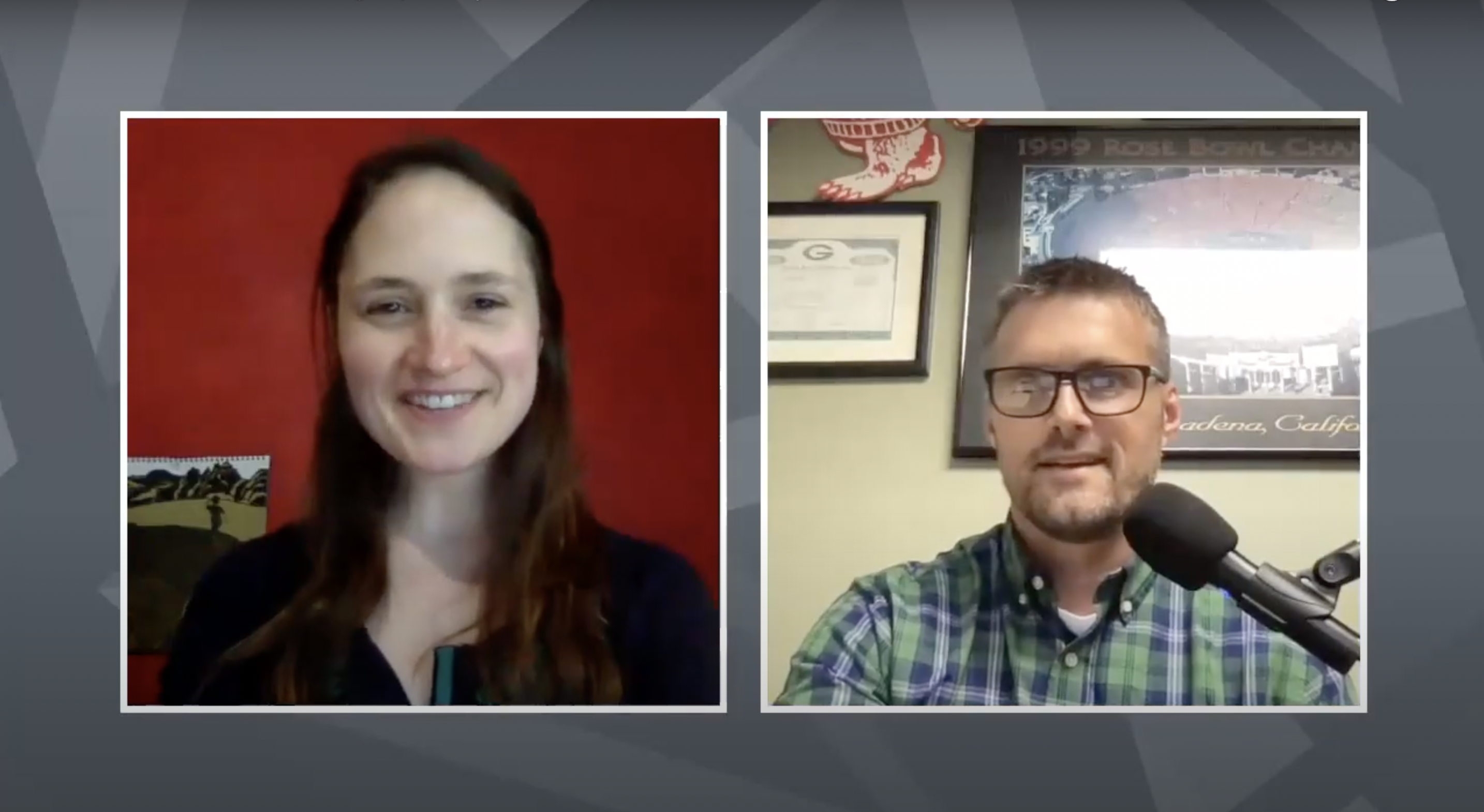
A discussion about strategies for teaching equitably in mathematics to combat some of the inequities that exist within the field.
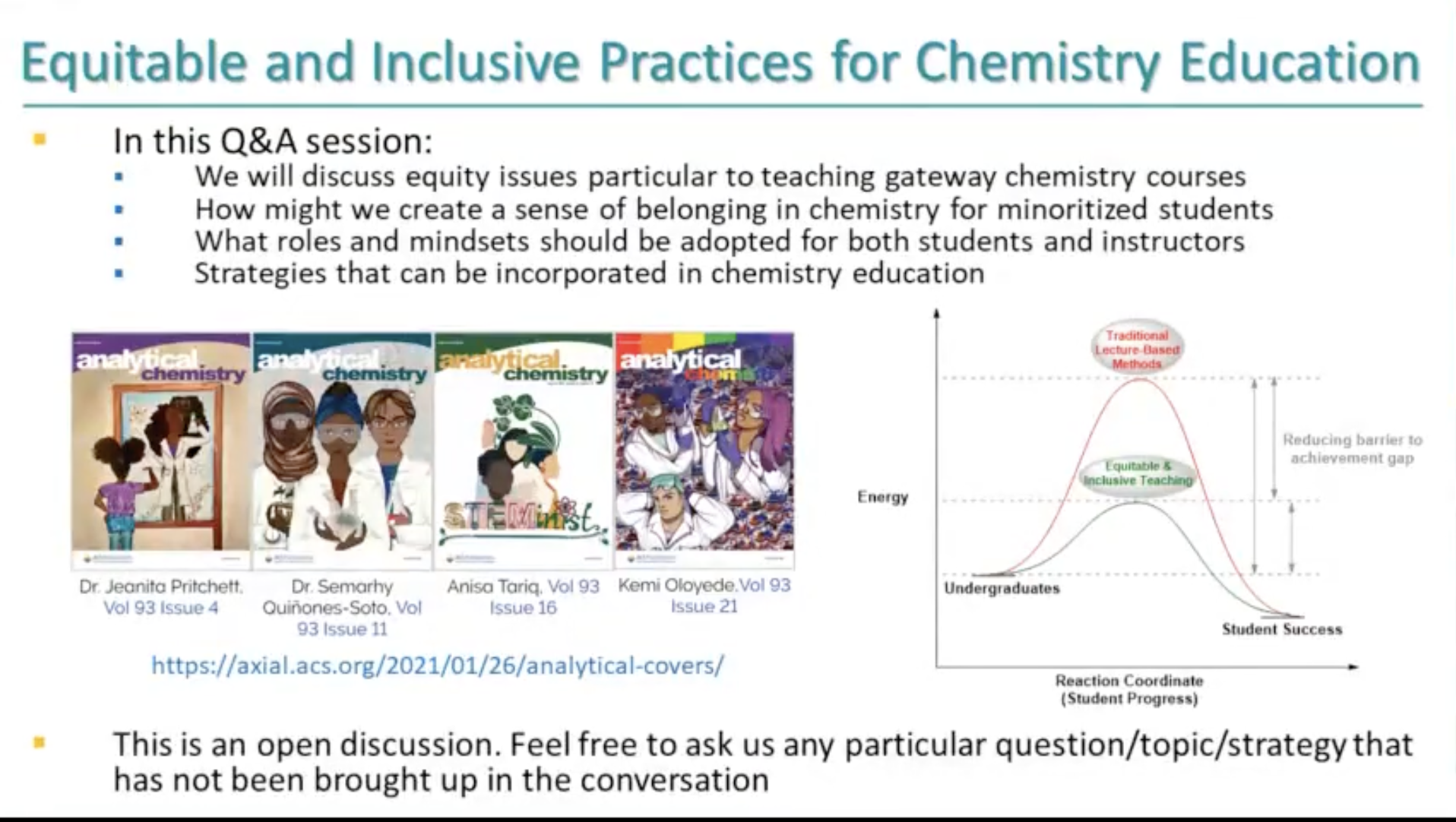
A discussion about equitable and inclusive practices for chemistry education with strategies to combat some of the inequities that exist within the field.
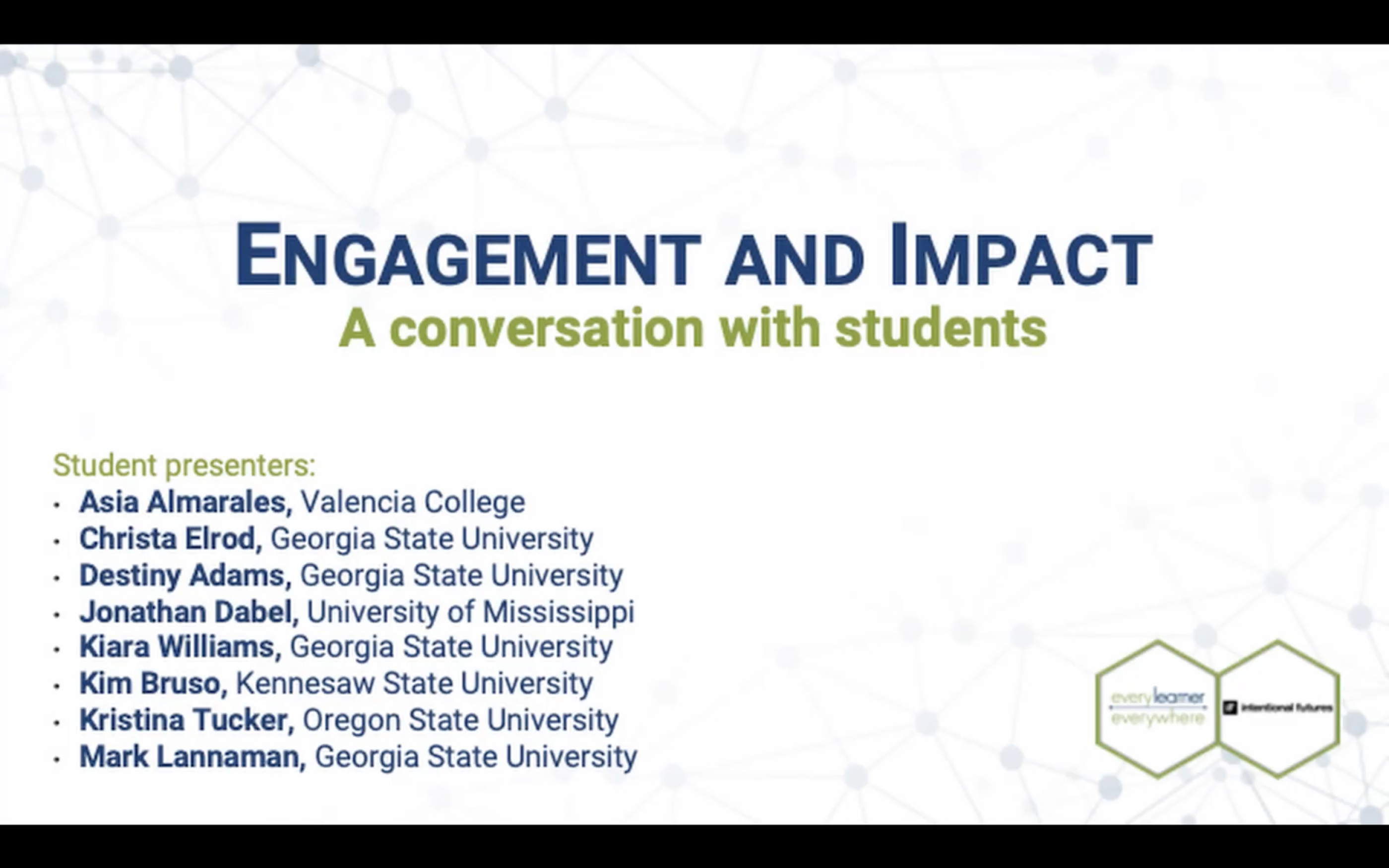
Learn directly from students what it means to create an engaging and inclusive classroom and learning environment.
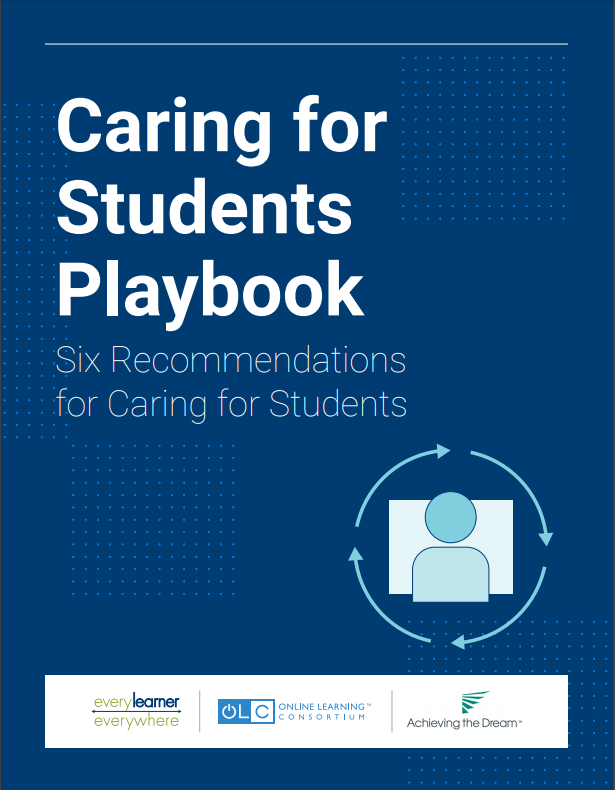
This playbook offers authentic and easily implementable strategies to help instructors to care for their students and ensure their success in the classroom and beyond.
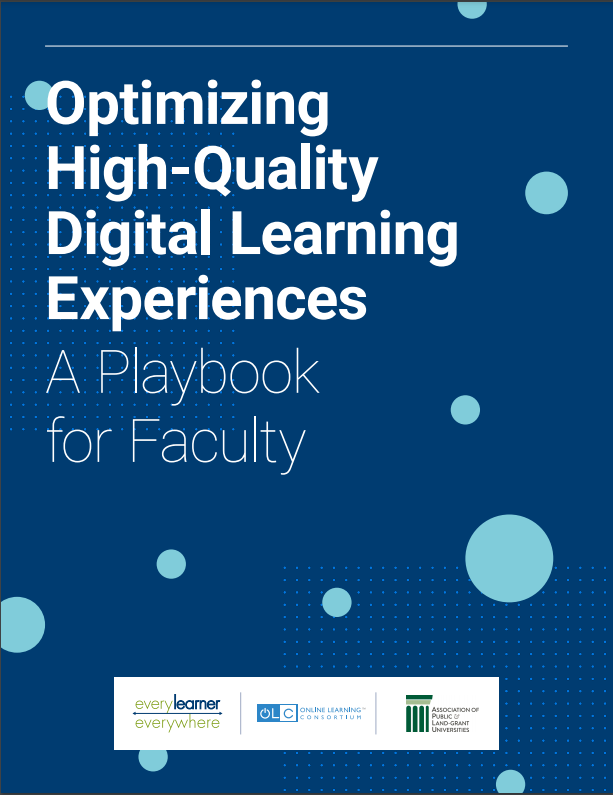
By integrating teaching and design principles, this guide assists faculty in positively impacting student learning, especially for students who are minoritized because of race, gender, disability, or socioeconomic status.
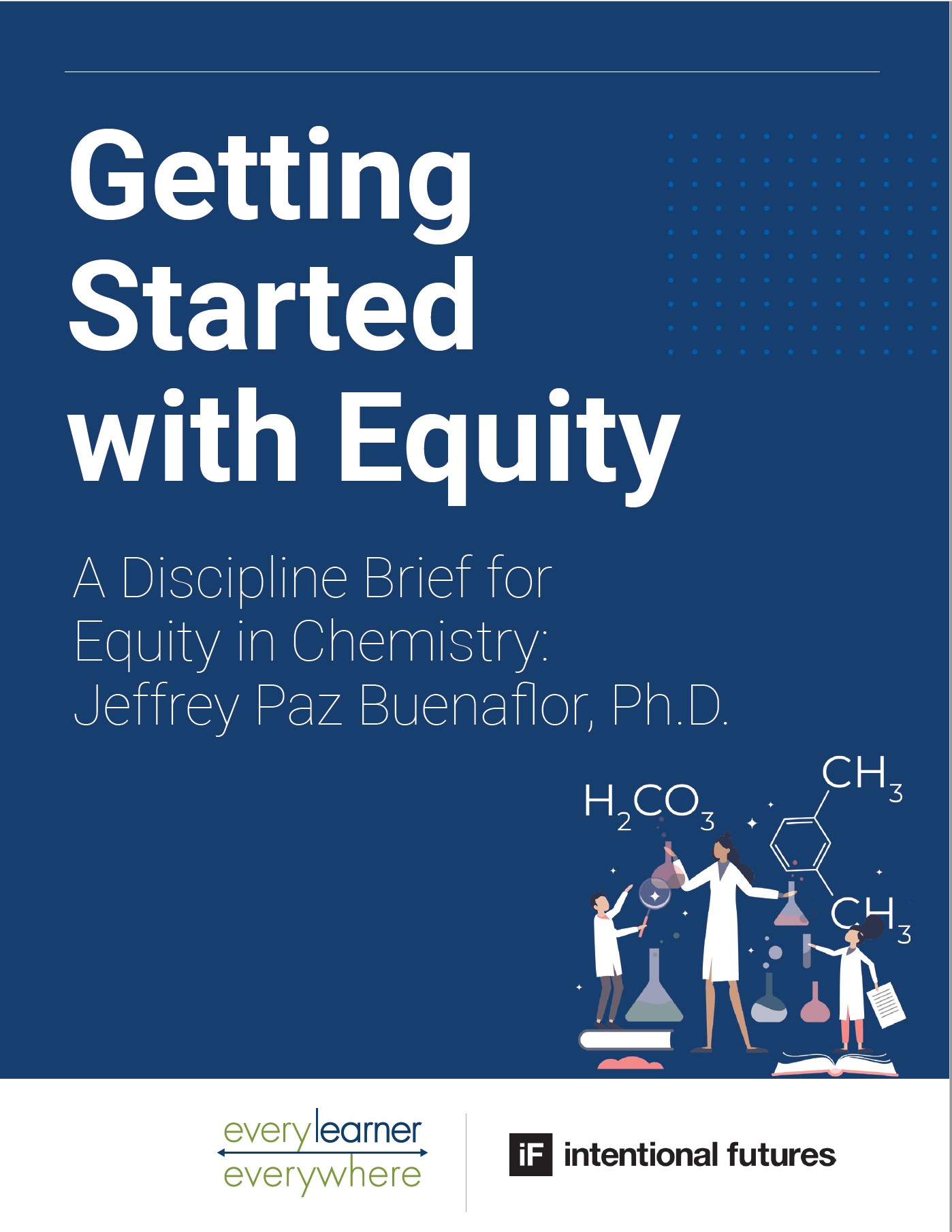
A discipline brief for equity in chemistry
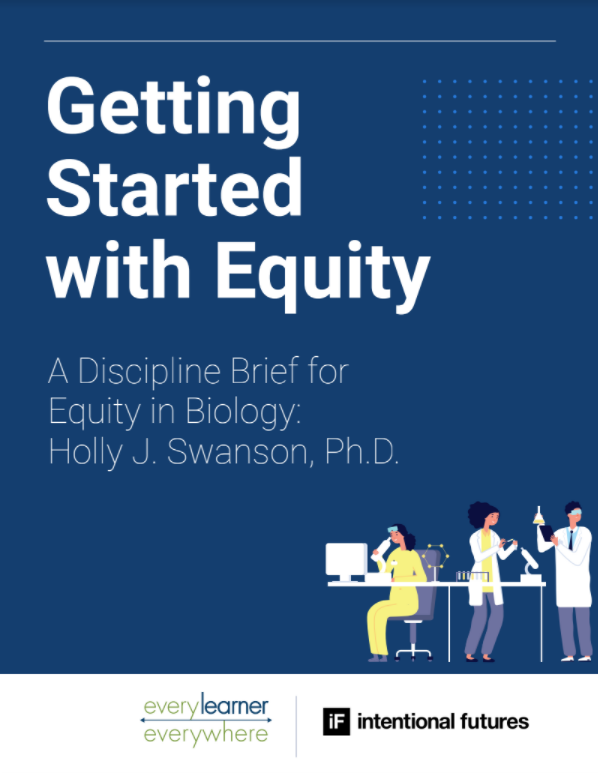
This brief explores how pedagogical, content, and mindset changes can reduce obstacles for minoritized students and support equity in biology.
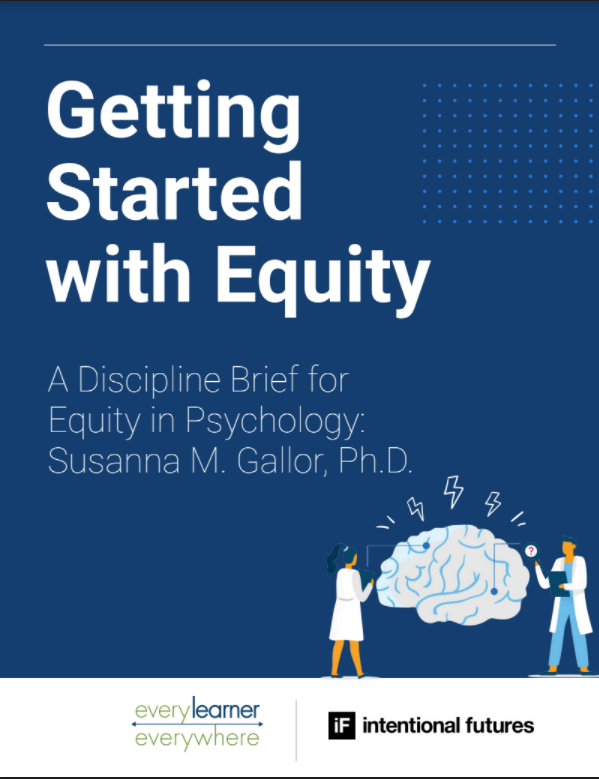
This brief provides an overview of equity issues and solutions in psychology courses.

This brief shares how asset-based instruction, fostering student belonging, active learning, and flexible and differentiated coursework can reduce equity gaps in chemistry.
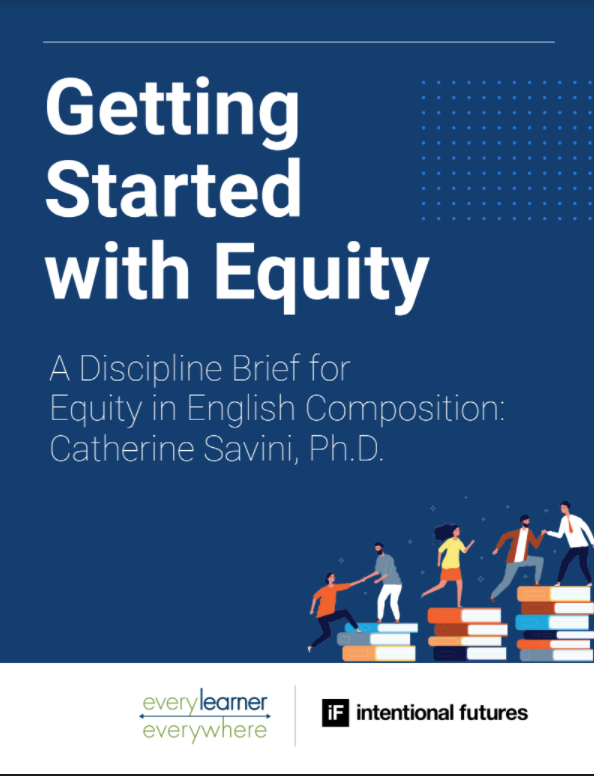
This brief explores how adjusting pedagogy, and eliminating linguistic bias can support equity in English composition courses.

This brief recommends resources to inform teaching to account for linguistic diversity and ability and promote a more equitable academic environment for students in English composition courses.
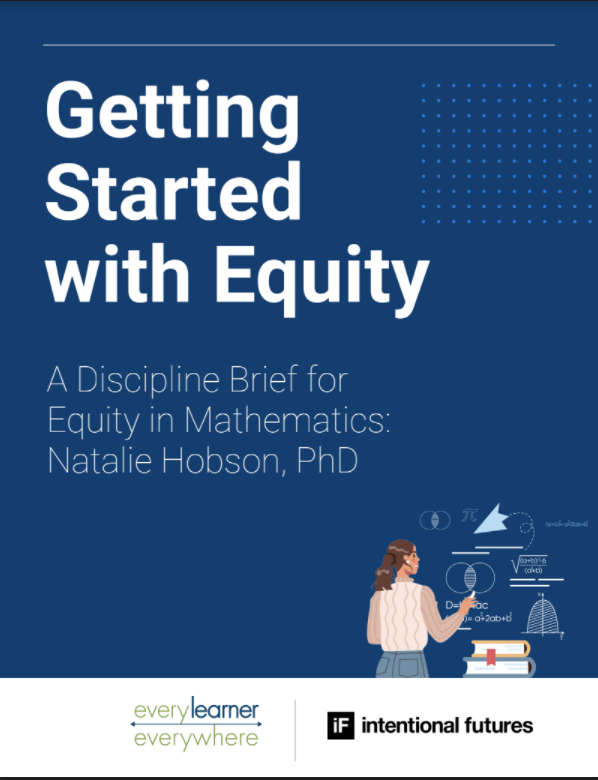
This brief suggests diverse pathways, student-centeredness, and bias training to close equity gaps in mathematics courses.
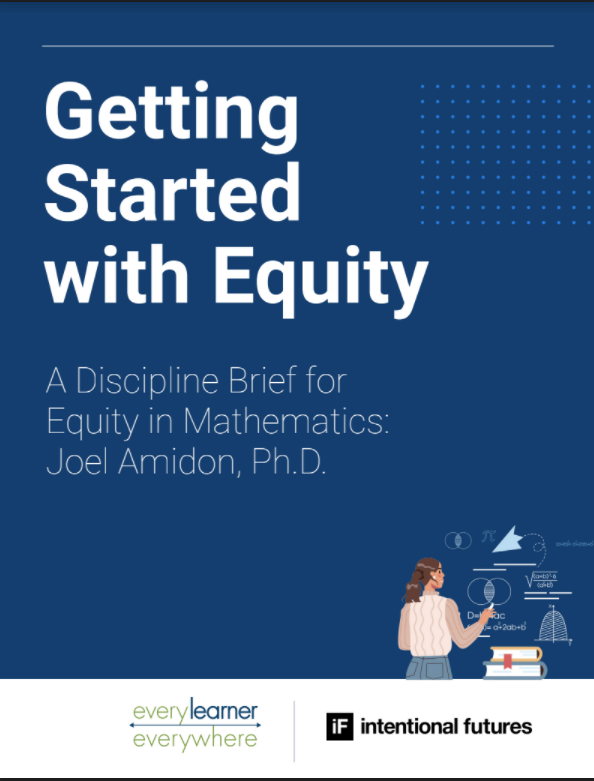
Joel Amidon is on a mission is to lead people to love others through teaching, providing solutions for equity in math courses.
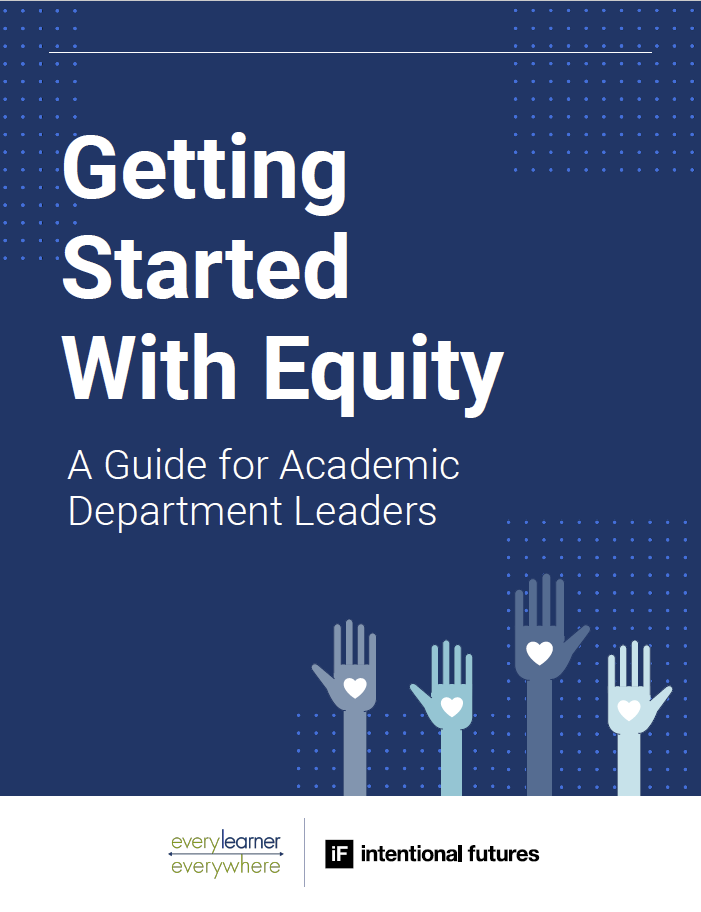
Getting Started With Equity: A Guide for Academic Department Leaders has a very specific purpose, which is to serve as a first step for department chairs to develop and curate an educational environment that is simultaneously justice-centered and equity-advancing.
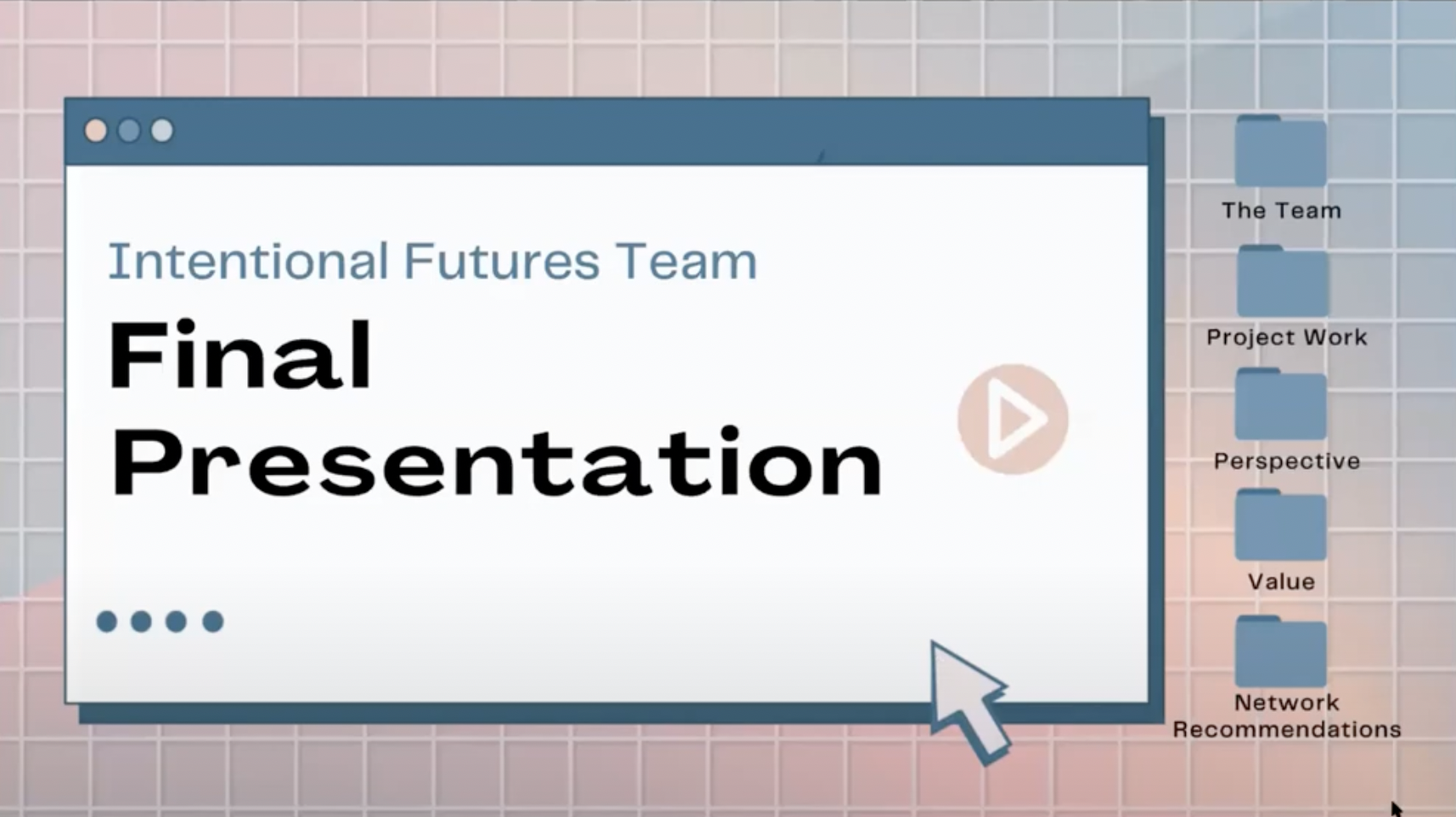
Every Learner Student Fellows overview of their internship with Intentional Futures centering student voice.
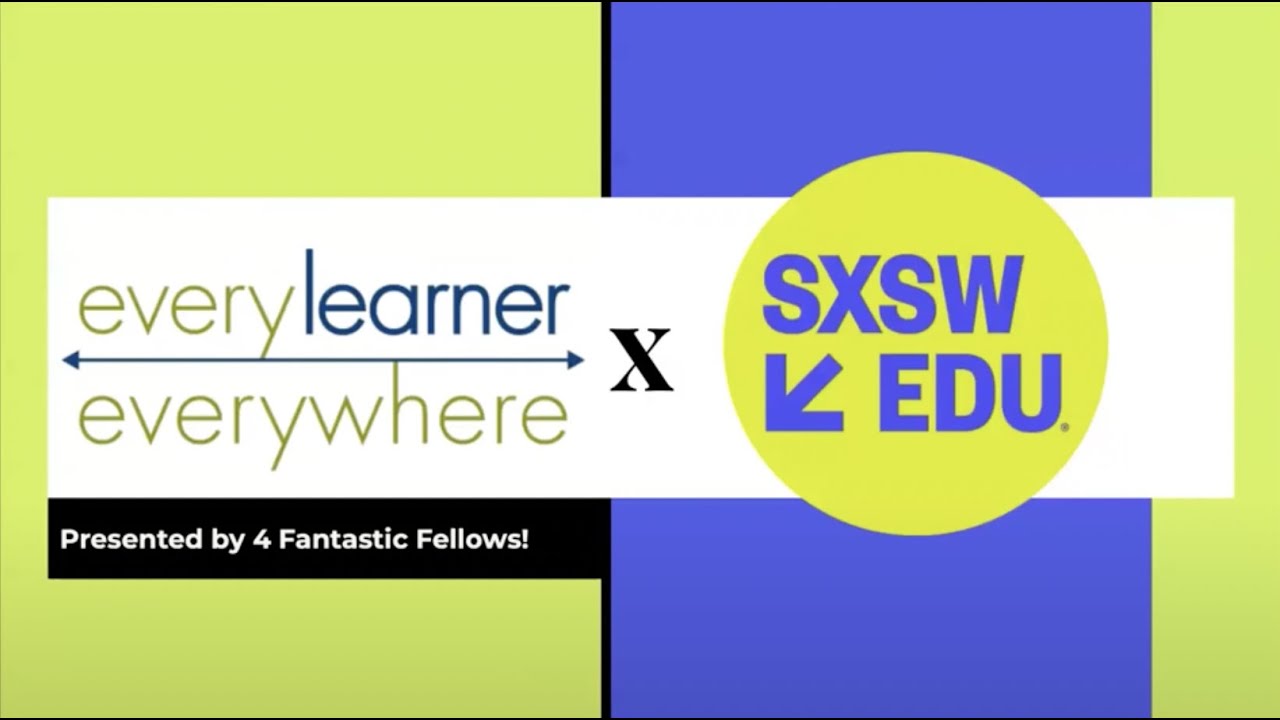
Every Learner Student Fellows discuss what they learned and accomplished in their 5-month internship with SXSW EDU.
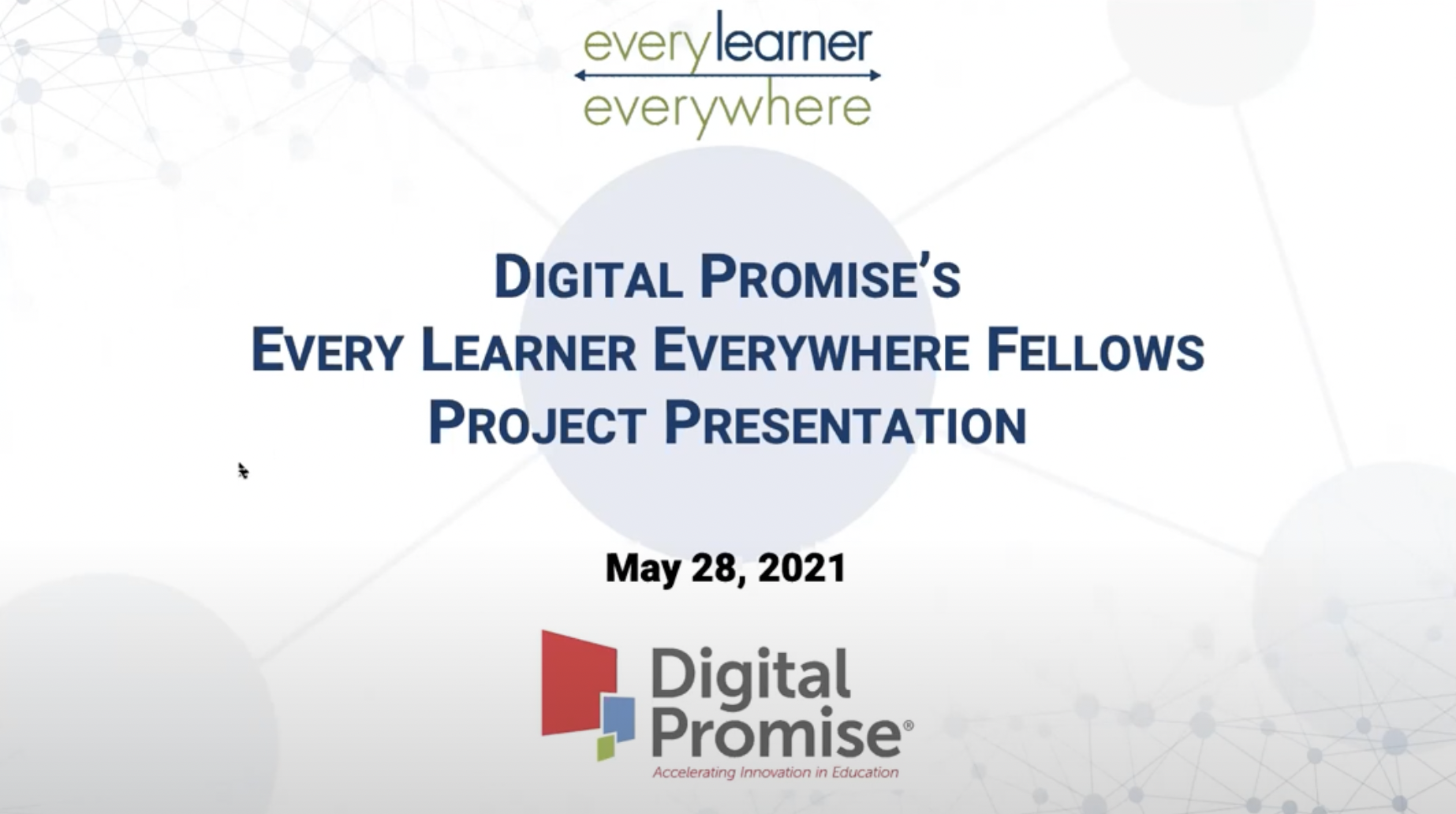
Every Learner Student Fellows provide a student perspective and overview of their internship with Digital Promise.
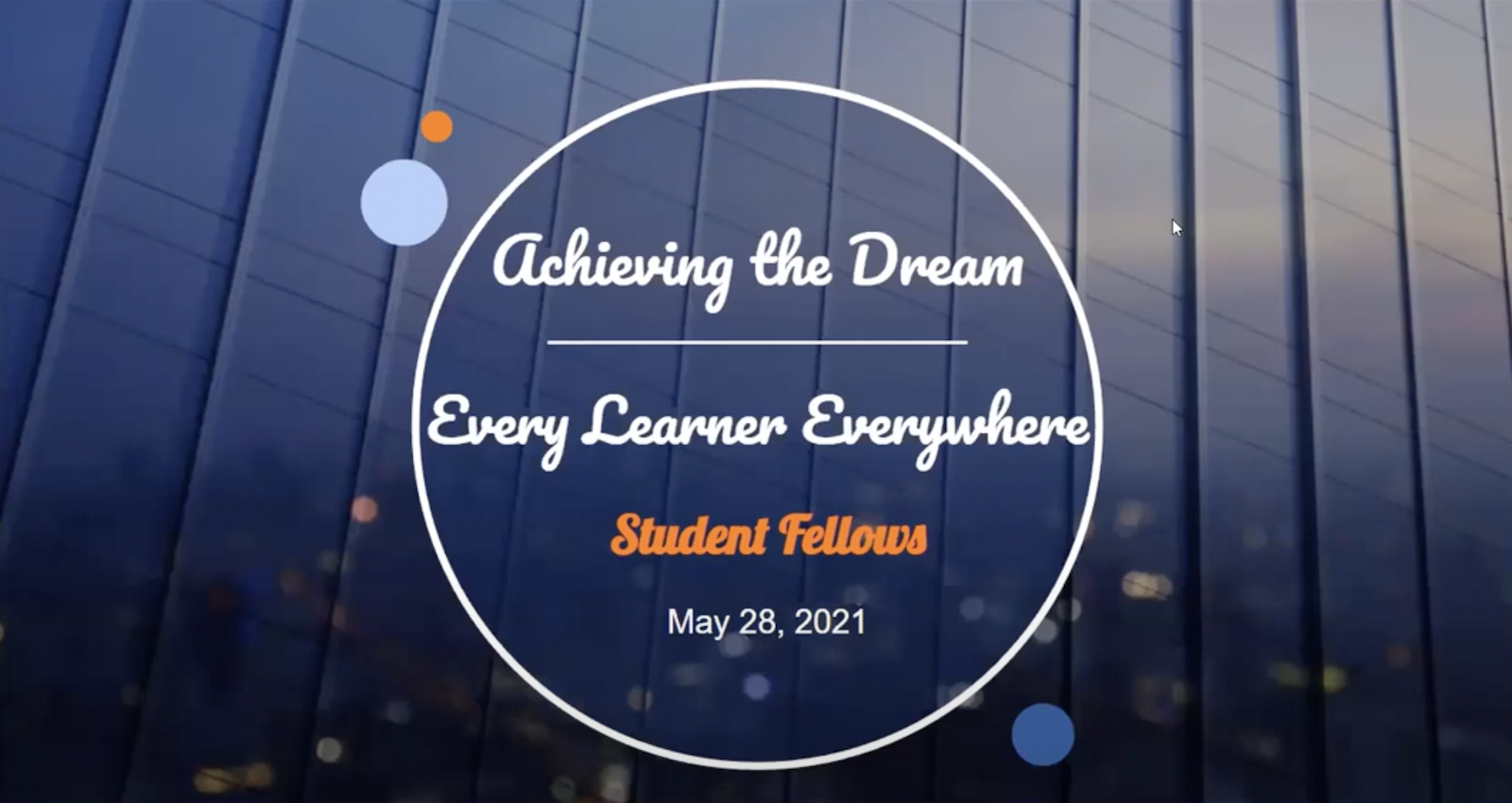
Every Learner Student Fellows provide an overview of their internship with ATD and ways leaders can more intentionally center student voice.
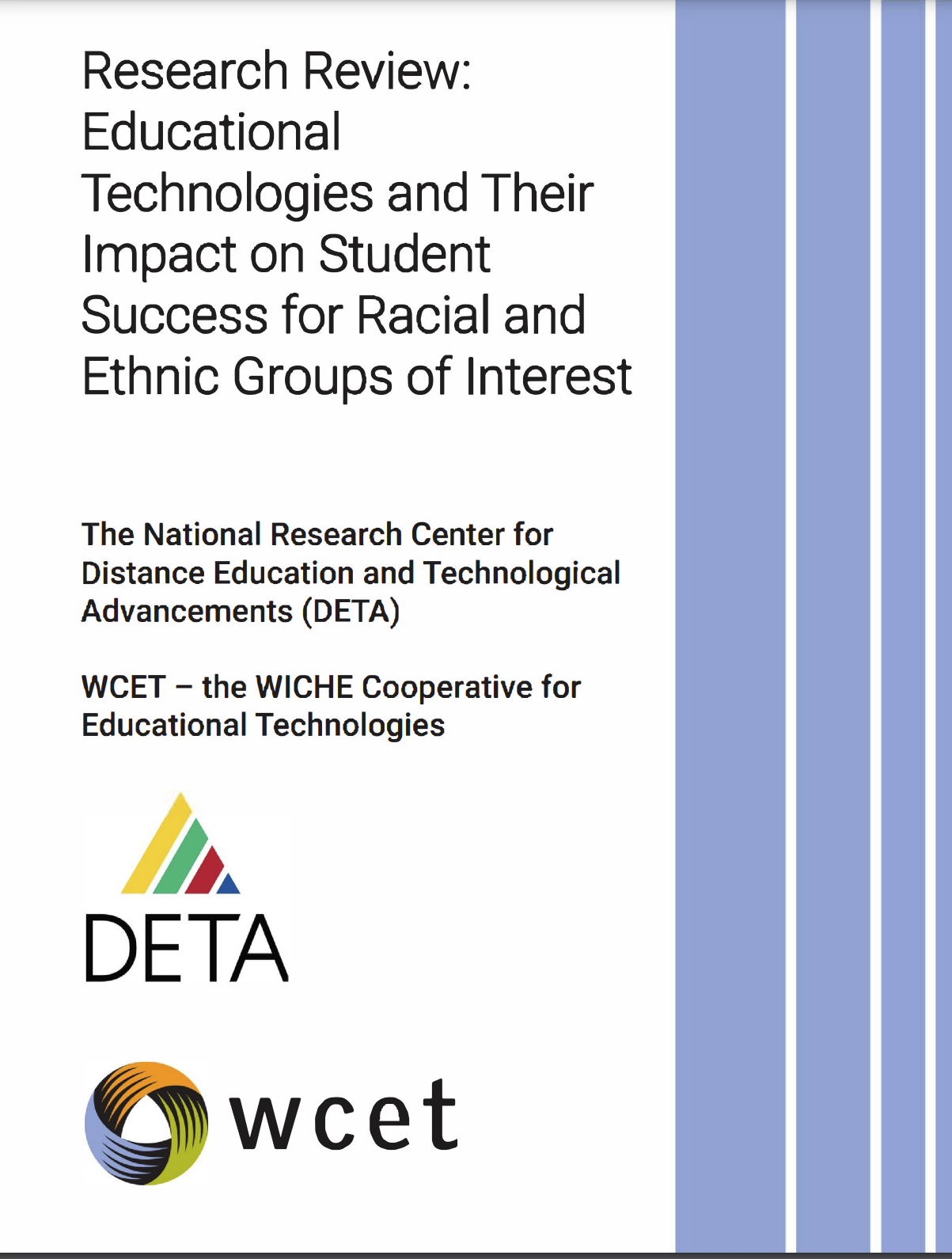
The purpose of the review is to identify institutional, instructional, and learning practices mediated by educational technologies that positively influence the success of certain racial and ethnic groups of American students.
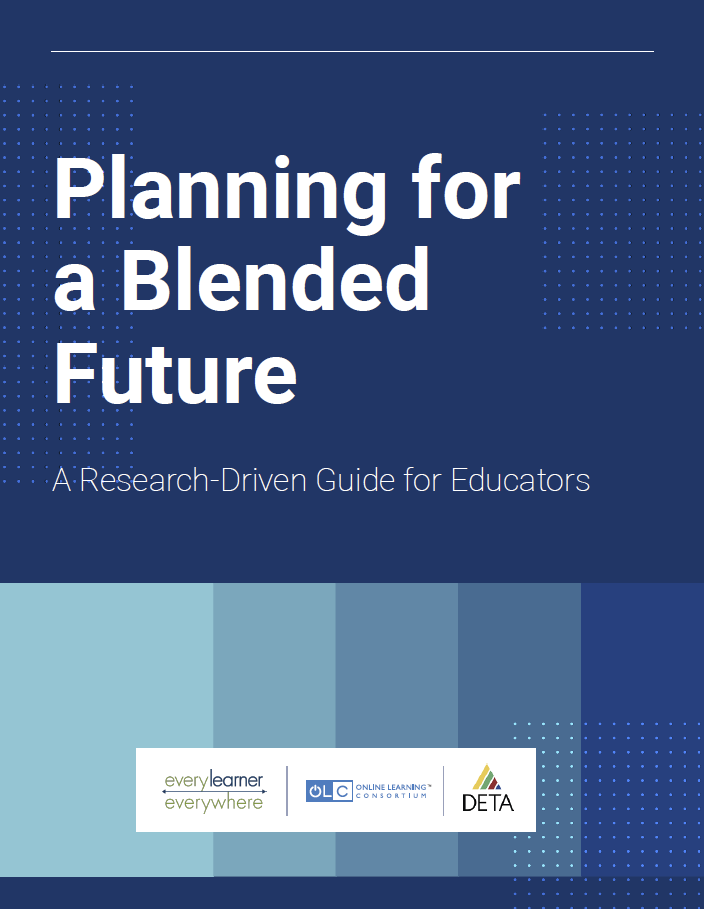
This guide moves beyond getting started with blended learning to help educators realize the best of online and onsite instruction and implement research-driven techniques to positively influence student outcomes.
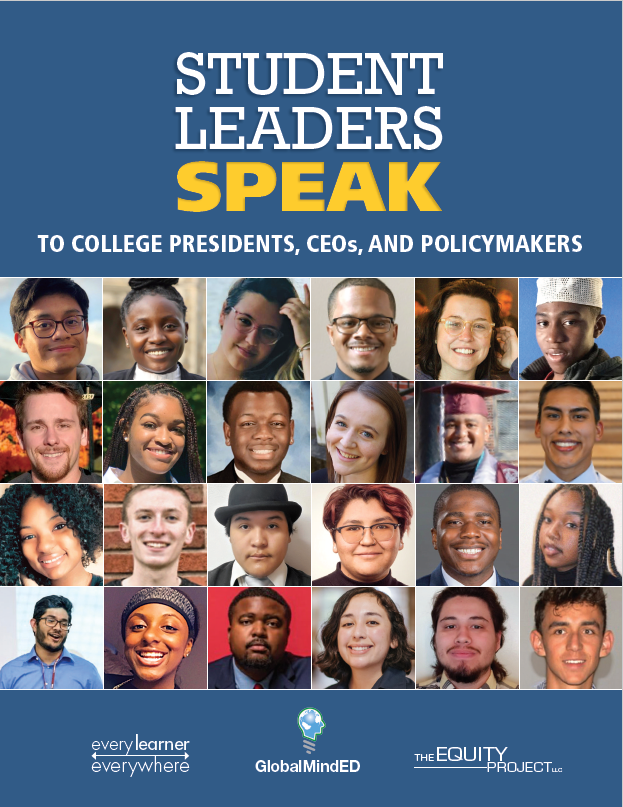
Student Leaders Speak documents a national snapshot of diverse college students, including many who are first-generation as they reflect on their lives, their learning, their digital experiences, their challenges, their setbacks and their triumphs.
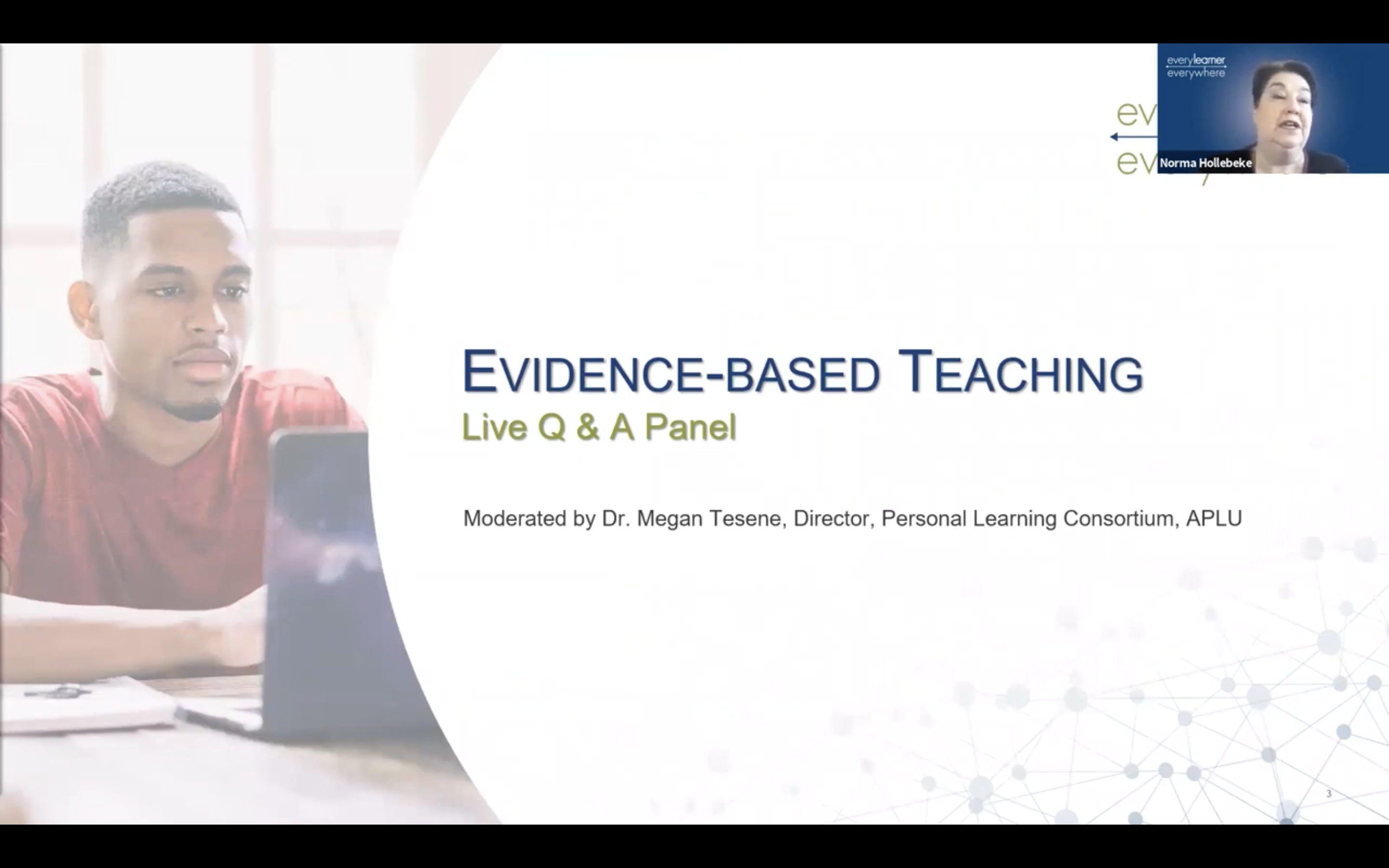
A panel discussion about Evidence-based teaching strategies that center equity in online and hybrid modalities.
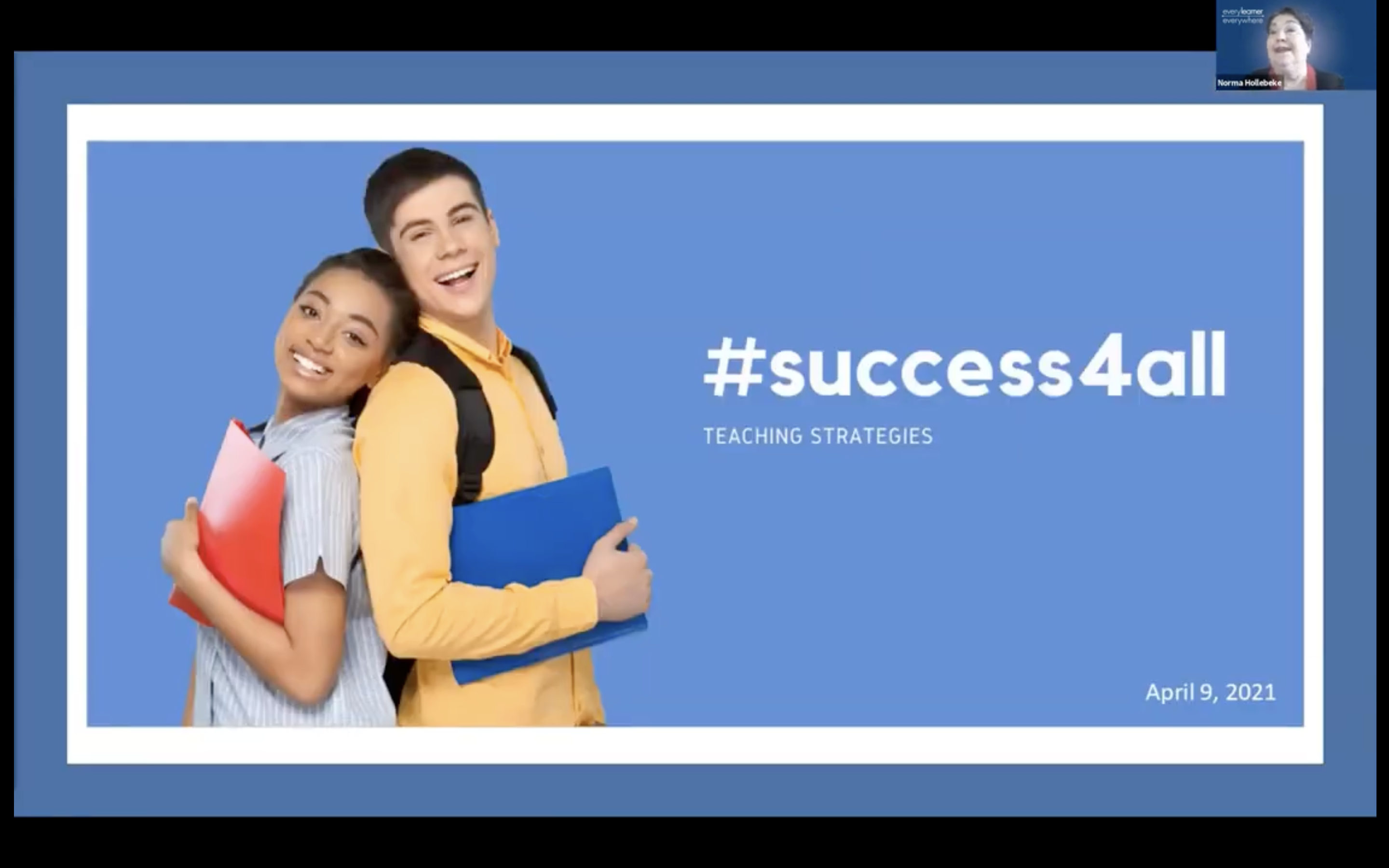
In this webinar, learn simple teaching strategies to help students take charge of their learning and ensure all students master content.
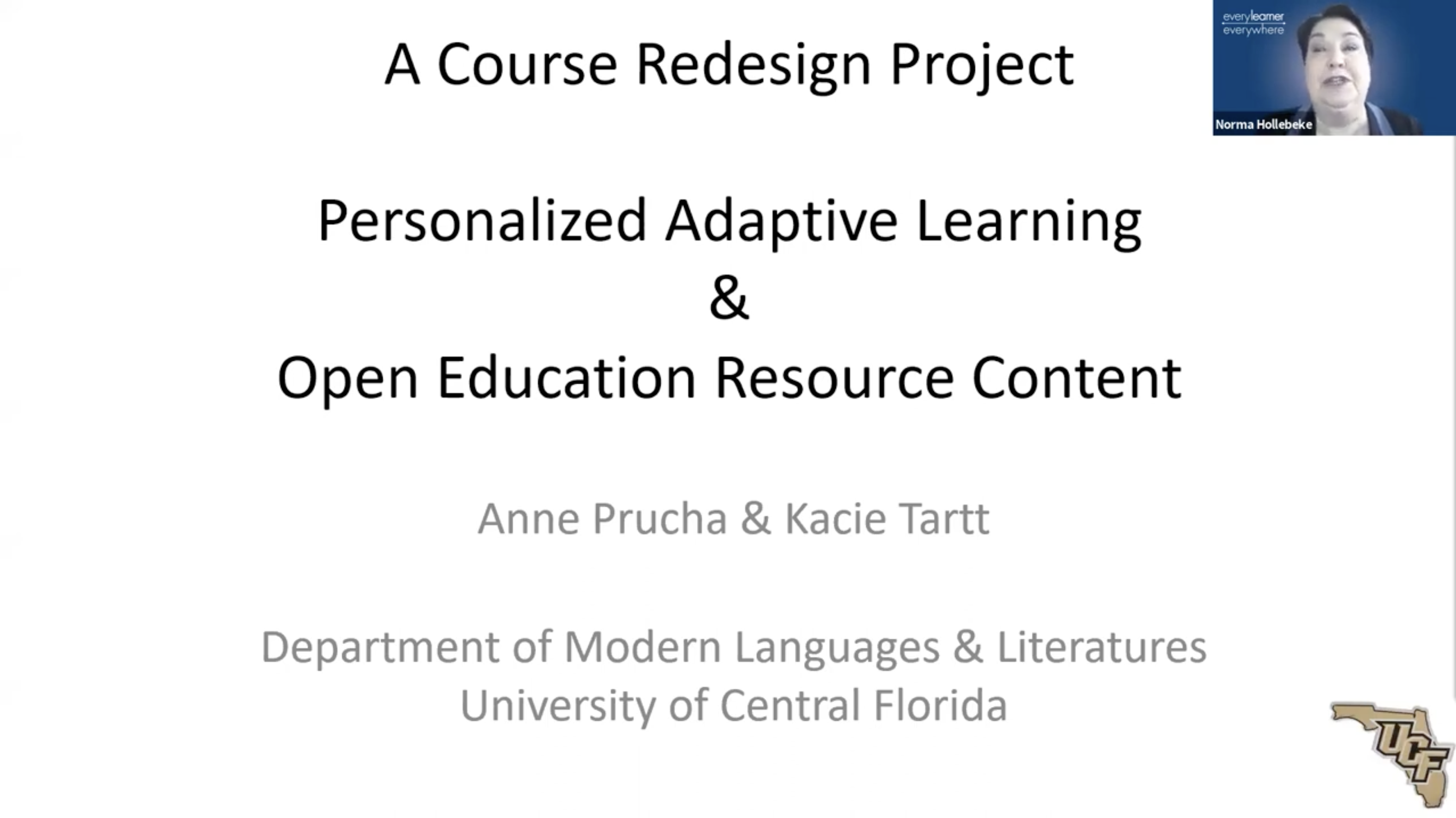
Instructors share their experiences in redesigning Elementary Spanish through a university initiative focused on increasing student success in gateway courses.
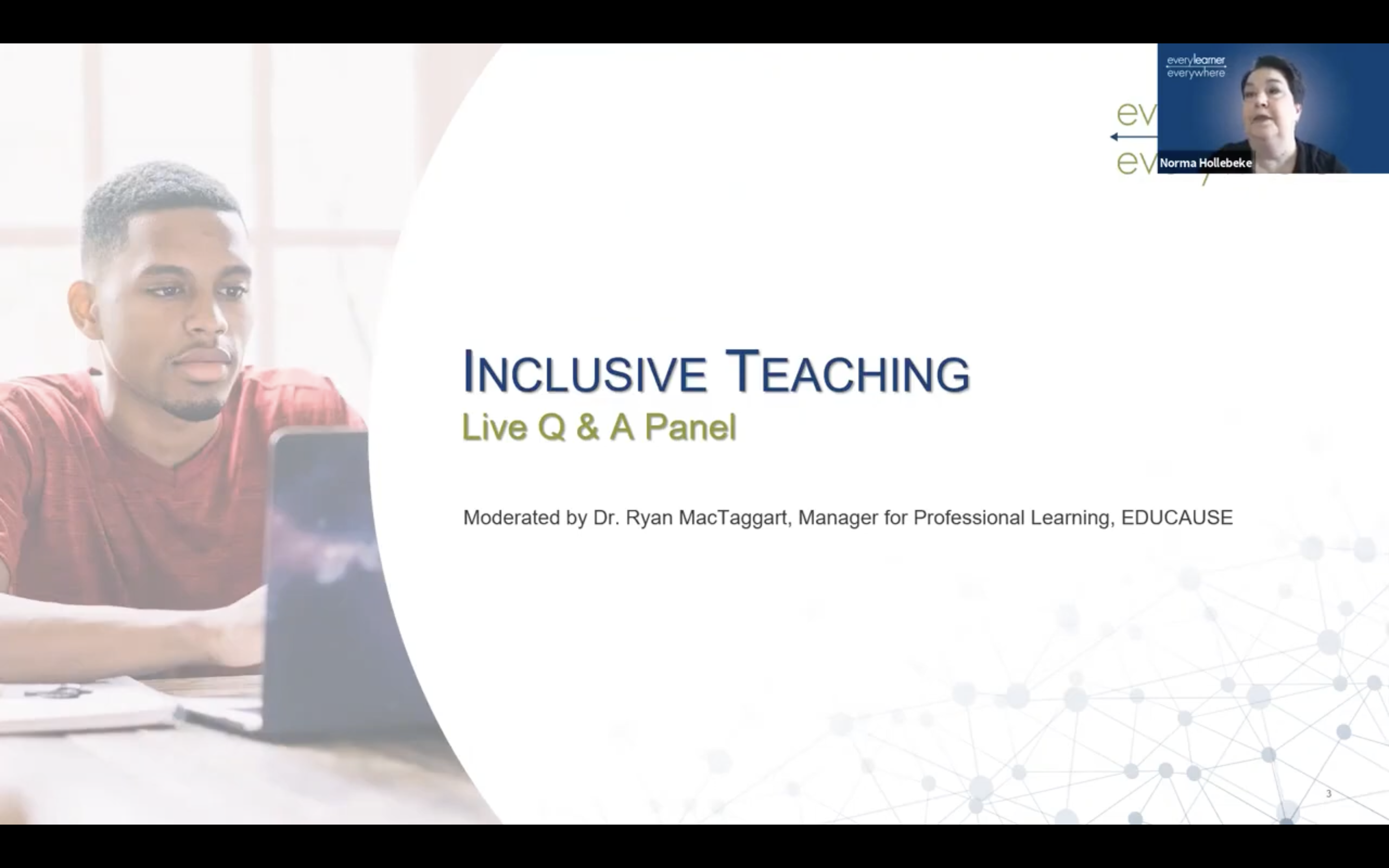
In this live Q&A panel, participants engage with Every Learner Everywhere Expert Network professionals to discuss equitable and inclusive teaching practices and digital learning to foster student-centered learning.
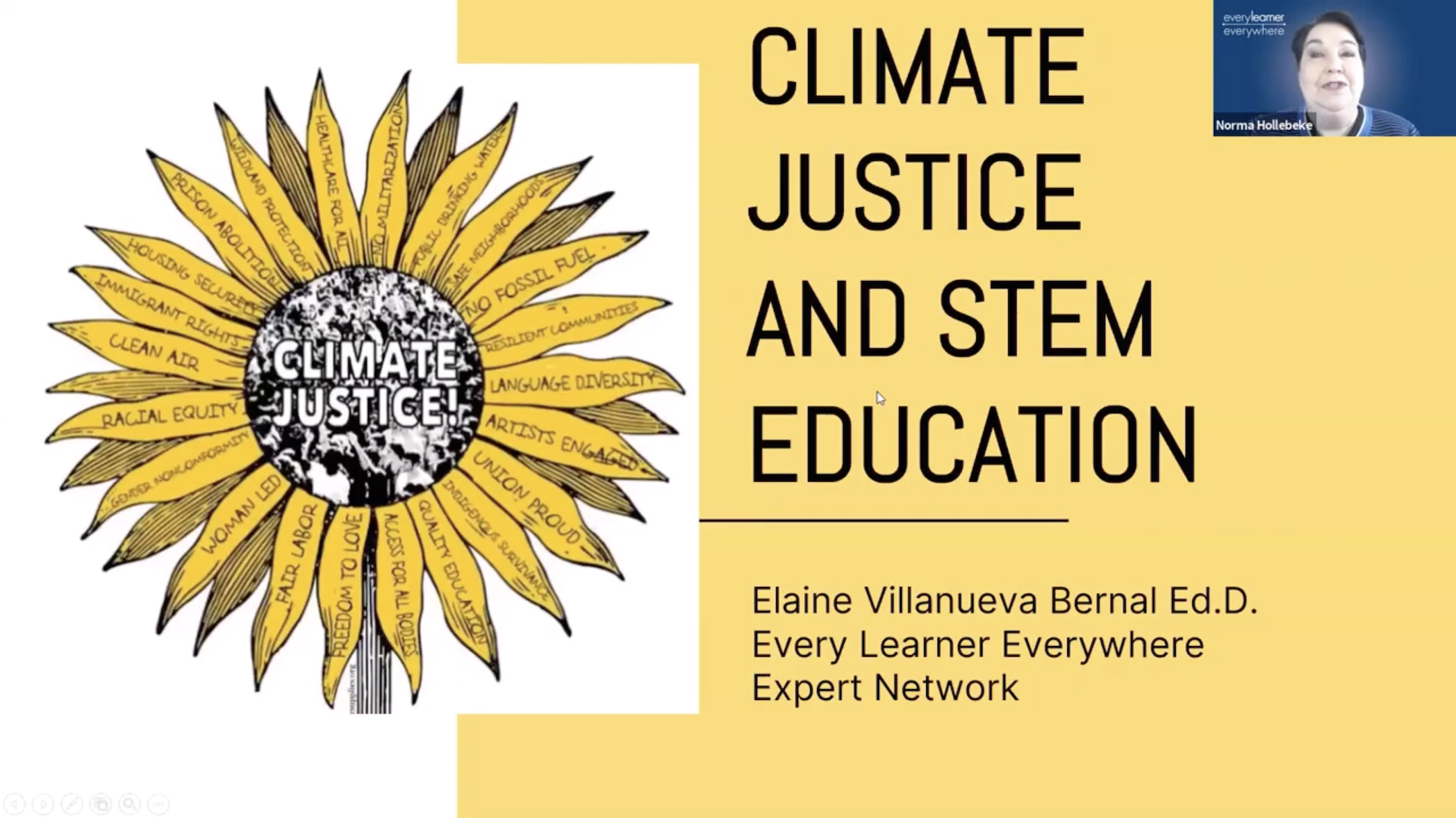
This session facilitates participant discussion on how to connect local environmental and climate justice issues to STEM concepts.





























































































